LEGACY OF INEQUITY DEMANDS BOLD STEPS
REAL ESTATE INVESTORS:
Demons Destroying Housing Or Angels Seeking Profits?
APPALACHIA IS AN UNTAPPED FRONTIER FOR LOs
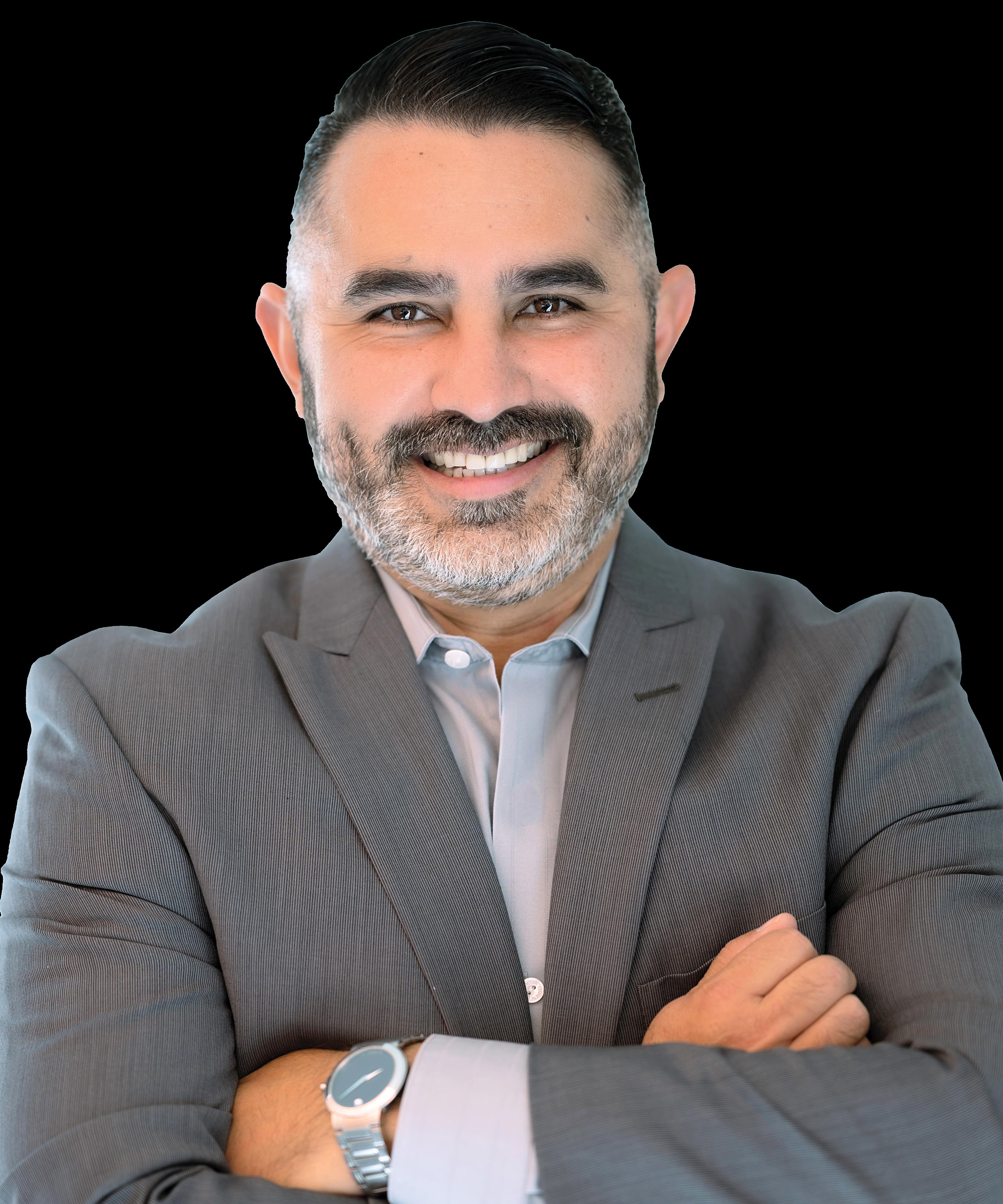
LEAPFROG THE REAL ESTATE AGENT Influencers Solve Lenders’ Transactional Value Proposition GEN Z MAY BE YOUNG BUT IT’S READY FOR MORTGAGES A PUBLICATION OF AMERICAN BUSINESS MEDIA SELLING SHORT Tackling the Sales Training Drought > Pablo Martinez, CEO, Equity Smart Home Loans Vol. 16, Issue 3 $20.00 MARCH 2024
INSIDE: 2024 WOMEN OF INSPIRATION AWARDS
LEGACY OF INEQUITY DEMANDS BOLD STEPS
REAL ESTATE INVESTORS:
Demons Destroying Housing Or Angels Seeking Profits?
APPALACHIA IS AN UNTAPPED FRONTIER FOR LOs

LEAPFROG THE REAL ESTATE AGENT Influencers Solve Lenders’ Transactional Value Proposition GEN Z MAY BE YOUNG BUT IT’S READY FOR MORTGAGES A PUBLICATION OF AMERICAN BUSINESS MEDIA SELLING SHORT Tackling the Sales Training Drought > Pablo Martinez, CEO, Equity Smart Home Loans Vol. 16, Issue 3 $20.00 MARCH 2024
INSIDE: 2024 WOMEN OF INSPIRATION AWARDS


Acra Lending is a registered dba name of Citadel Servicing Corporation, 3 Ada Parkway, Ste 200A, Irvine, CA 92618; (888)-800-7661 (“CSC”) NMLS ID# 144549, Licensed under Arizona Mortgage Bankers License # 1034431, California Department of Financial Protection and Innovation under the California Residential Mortgage Lending Act license # 41DBO-74196, Finance Lenders License # 60DB0-94450, CA-DRE #01799059, Florida Mortgage Lender Servicer License # MLD523, Georgia Mortgage Lender License/Registration # 23462, Minnesota Residential Mortgage Originator License Other Trade Name #1 MN-MO-144549.1, Nevada Mortgage Company License # 4449, North Carolina Mortgage Lender License # L-160722, Oregon Mortgage Lending License # ML-5599, Tennessee Mortgage License # 125315, Utah-DRE Mortgage Entity License - Other Trade Name #1 12074249, Virginia Lender License # MC-5845. For mortgage professionals only. This is for informational purposes only. For legal and professional advice on applicable state and local licensing requirements that apply to you, please contact an attorney. Acra Lending is an equal opportunity lender. Rates, terms, and programs subject to change without notice. O er of credit subject to credit approval per applicable underwriting and program guidelines, applicant eligibility, and market conditions. Not all applicants may qualify. Not valid in the following states: AK, ND, and SD. CONTACT US TODAY TO GET STARTED THE INDUSTRY’S LEADING PRIVATE MORTGAGE LENDER SALES@ACRALENDING.COM | WWW.ACRALENDING.COM WHAT IS GLIDE? Glide is an intuitive broker portal platform designed to make your life as a broker simpler and more transparent than ever before Correspond With Us: Seamless communication channels within Glide, ensuring you're always well-informed Upload Files: Conveniently upload and share essential documents securely, reducing paperwork and potential errors View Your Pipeline: Real-time pipeline visibility, enabling you to monitor and manage your files e ortlessly Income Desk: Simplified and fast income calculations Pricing Scenarios: Generate pricing scenarios swiftly, allowing you to present the best options to your clients WHAT ARE KEY FEATURES? at www.alglide.com GLIDE GLIDE WITH ACRA OVERVIEW OR CALL US TODAY! (888) 800-7661 GET STARTED AT ALGLIDE.COM THE FUTURE OF BROKER EFFICIENCY AND TRANSPARENCY
nationalmortgageprofessional.com
4
Paying Attention
The need exists to open our arms and expand our minds to better reflect the mortgage industry’s diversity.
6 Make Sure New Hires Are The Right Fit
In a diverse mortgage environment, MLO recruits are not one-size-fits-all. Make the smart choices.
8 Brokers Need To Analyze The Market For Opportunities
A four-part analysis called SWOT can be a business starter for mortgage brokers.
10
203(k) Financing Could Build Your Business
Much needed help could be coming for 203(k) financing, which until now have dropped in popularity.
14
History Of Inequity Shows Need For Change
The mortgage industry needs more minorityowned brokerages for a more equitable economy.
18
Non-QM Resource Guide
AMC Resource Guide
19 People on the Move

28
See who the movers and shakers are in the mortgage industry.
20
Build-A-Broker: Influencer Leads Weaken Need For Referrals
The success of influencergenerated social media leads at one mortgage company may upend the MLO-real estate agent relationship.
25
Originator Tech
Resource Guide
Wholesale Lender Resource Guide
26
Your First Million Dollars: No Such Thing As Small Moments
Simple acts of kindness can have a meaningful impact.


Benchmarks and Best Practices:
Gen Z Could Be The Greatest Generation
The newest generation of homebuyers comes ready to buy with unique financial circumstances.
30
My Best Deal: Kindness Paid 5X Over Gene Griffin says his Best Deal was free advice that has led to five lucrative referrals.
32
Data Bank
34
The Potential Of Appalachia MLOs might be surprised to find out there is money to be made among the hollers of Appalachia.
42
Tackle 2024 With Understanding Private Investors
In the housing industry, some want them tarred and feathered. But private investors say they’re angels chasing profits.
80
Non-QM Lender Directory
81
Wholesale Lender Directory
Originator Tech Directory
AMC Directory
82
Facebook Thoughts: Meet My Mentor — Richie Rich
nationalmortgageprofessional.com MARCH 2024 Volume 16 Issue 3 CONTENTS
> 40 Under 40 honoree SPECIAL AWARDS SECTION PAGE 56 2024 MORTGAGE LENDING WOMEN OF INSPIRATION Step into the world of National Mortgage Professional Magazine’s 2024 Mortgage Lending Women of Inspiration, where leaders, champions, mentors echo the resounding spirit of these remarkable individuals.
STORY
THE RIGHT TRAINING TO OVERCOME
NATIONAL MORTGAGE PROFESSIONAL MAGAZINE | MARCH 2024 | 3
COVER
PAGE 50
KNOWLEDGE GAPS Originators are clamoring for more training programs whether they are newly licensed or deeply experienced in the industry
LETTER FROM THE PUBLISHER
Minority Opinions
The great Richard Starkey summed it up pretty well a few decades ago. “I get by with a little help from my friends.”
Our aim here is to give mortgage originators and industry leaders the insight, help, and strategies that they need to be as successful as possible. Sometimes, that takes the form of articles talking about marketing tips. Sometimes, it takes shape as a piece looking at new programs. Occasionally, it’s a look at what the top originators are doing. And every now and then, it means finding inspiration in a song by Ringo Starr.
A couple of months ago, a broker in the Tampa area reached out on our social media channel. He wasn’t particularly happy because a feature we had done on top industry titans didn’t include anyone of color. He was dumbfounded that we could be so blind. And he made that pretty clear in the comments that he left on our post.

This could have been someone we simply ignored. It could have turned into a big social media brouhaha. Instead, I simply called him. I told him I agreed that our selection was probably lacking in diversity. He laughed. He appreciated that we were reaching out. And then he talked about how difficult it was for Black brokers to get a fair shake. I quizzed him a little bit about what he meant, especially since he led the conversation by saying that he did not believe in DEI initiatives.
I thought he made good points. And so I told him that I also didn’t believe that we have a voice like his represented in this magazine. I invited him to write down his thoughts, and boy did he.
His name is Sam Harris, and he’s with Blue Dolphin Financial in Florida. I invite you to read his essay in this issue. I think it is important, frankly, that we look at how we keep the mortgage lending world open to everyone. If we’re here to provide the financing of the American dream for everyone, we need to know how to reach everyone.
Sam has his own ideas. And what he talks about now is just the start. It’s pretty clear none of this goes away forever. We all need to pay attention, and we need to ensure that our arms are open and that we are willing to expand our minds.
Because, after all, without that, how could any of us be national mortgage professionals?
STAFF
Vincent M. Valvo
CEO, PUBLISHER, EDITOR-IN-CHIEF
Beverly Bolnick
ASSOCIATE PUBLISHER
Christine Stuart
NEWS DIRECTOR
Keith Griffin
SENIOR EDITOR
Erica Drzewiecki, Katie Jensen, Ryan Kingsley, Sarah Wolak
STAFF WRITERS
Dave Hershman, Erica LaCentra, Harvey Mackay, Lew Sichelman, Mary Kay Scully
CONTRIBUTING WRITERS
Regina Morgan
ADVERTISING SALES EXECUTIVE
Nicole Coughlin
ADVERTISING ASSOCIATE
Alison Valvo
DIRECTOR OF STRATEGIC GROWTH
Julie Carmichael PROJECT MANAGER
Meghan Hogan DESIGN MANAGER
Stacy Murray, Christopher Wallace
GRAPHIC DESIGN MANAGERS
Navindra Persaud
DIRECTOR OF EVENTS
William Valvo
UX DESIGN DIRECTOR
Andrew Berman
HEAD OF CUSTOMER OUTREACH AND ENGAGEMENT
Krystina Coffey, Matthew Mullins, MULTIMEDIA SPECIALIST
Alan Nero
MEDIA SPECIALIST
Melissa Pianin
MARKETING & EVENTS ASSOCIATE
Kristie Woods-Lindig ONLINE ENGAGEMENT SPECIALIST
Joel Berman
FOUNDING PUBLISHER
VINCENT M. VALVO Publisher, Editor-in-Chief
MARCH 2024 Submit your news to editors@ambizmedia.com If you would like additional copies of National Mortgage Professional Call (860) 719-1991 or email subscriptions@ambizmedia.com www.ambizmedia.com © 2024 American Business Media LLC. All rights reserved. National Mortgage Professional magazine is a trademark of American Business Media LLC. No part of this publication may be reproduced in any form or by any means, electronic or mechanical, including photocopying, recording, or by any information storage and retrieval system, without written permission from the publisher. Advertising, editorial and production inquiries should be directed to: American Business Media LLC 88 Hopmeadow St. Simsbury, CT 06089 Phone: (860) 719-1991 info@ambizmedia.com Volume 16 Issue 3
4 | NATIONAL MORTGAGE PROFESSIONAL MAGAZINE | MARCH 2024


Join Now 800.400.5451 fnba.com/wholesale Providing Certainty in an Uncertain Market Easiest P&L in the Industry 9 out of 10 Approved Average App to CTC in 22 Business Days Simple Guidelines Lending in All 50 States
Watch Who You Hire
In a diverse mortgage environment, MLO recruits are not one-size-fits-all
BY DAVE HERSHMAN, CONTRIBUTOR, NATIONAL MORTGAGE PROFESSIONAL MAGAZINE
After a period of bloating the industry with loan officers and operations staff so that we could keep up with the refinance boom of all times during the pandemic, the industry has shrunk like an accordion in response to the “aftermath.” Interesting word “aftermath” used to describe what has happened in the past two years because of the root of the word — math.
After all, this is all about math. If you cut production by 65%, then you have no chance of making the math work with too many employees. Thus, the accordion analogy, only there was no music coming from shrinking production — only cries of pain.
Since I have been in the industry for over 40 years (yes, I started when I was seven years old) — I certainly have seen plenty of cycles. Following a refinance boom, we saw the bond market sell-off in 1987, as the 10-year Treasury rose to over 10.0% in short order. This led to Black Monday, a stock market crash in October. Plenty of ups and downs and euphoria and pain.
I can’t predict the future, but I do see plenty of chances for a refinance boom coming back, as well as the real estate market rebounding somewhat. It likely
won’t be like the sub 3.0% pandemic days, but people will be able to get out of those 7.5% mortgages. Production will increase enough that we will start hiring again. And this time, we will hopefully be a bit more cautious.
To that I say — watch who you hire. Think of the refinance call centers shutting down and candidates flooding mortgage companies with applications. Yet, the majority of call center loan officers were not a match for street mortgage companies. Many left banks that were deemphasizing mortgage companies to find that going on the street in a major slump was not such a good idea as well.
There are so many different types of mortgage companies:
• Call centers
• Banks and credit unions
• Builder-owned or affiliated companies
• Real estate-owned or affiliated companies.
• Financial services companies
• Independent/correspondent mortgage bankers
• Mortgage brokers
Each does business in a different way, especially with regard to attracting production. And the profile of someone who will fit their model does not necessarily fit another model. Mind you, someone who has all the tools and makeup of a top producer is likely to succeed in any model. But even in this case, there can be conflicts. Someone with a very independent small mortgage broker is not likely to fit in a large formal banking environment.

Even training for each of these models should vary as the way one would approach the business and what is acceptable will vary from model to model. Sitting in a bank branch is not the same as sitting on a builder site or
serving it remotely.
I started in the industry inside a real estate office, and I have coached, hired, and supervised in-house loan officers in this model. It is amazing to me how this type of situation is viewed:
• Loan officers coming in off the street think that it will be “easier” because the agents and managers will support them.
• Managers hiring loan officers think that an average loan officer in another model will thrive in this model because they will have access to real estate agents.
Outside of the aforementioned loan officer with “all the traits of a great producer” — nothing could be further from the truth. That is why I am dedicating the remainder of this year, 2024, to be the year that I deliver the truth to the industry. Sitting in a real estate office or serving a real estate office remotely is not the same job as any other loan officer position in the industry. From a management perspective, the hiring, training, and support will need to be targeted toward what these loan officers do for a living.
In other words, we have to stop painting with a broad brush. This article will be the first in a series of articles that will share the name of my newest training course — Inside the Glass House. n
Dave Hershman is the top author in this industry with six books published as well as the founder of the OriginationPro Marketing System and the OriginationPro’s on-line comprehensive mortgage school. Dave is also Senior VP of Sales for Weichert Financial Services. His site is www.OriginationPro.com and he can be reached at dave@hershmangroup.com
DAVE HERSHMAN 6 | NATIONAL MORTGAGE PROFESSIONAL MAGAZINE | MARCH 2024 RECRUITING, TRAINING, AND MENTORING CORNER
The majority of call center loan officers were not a match for street mortgage companies.

NATIONAL MORTGAGE PROFESSIONAL MAGAZINE | MARCH 2024 | 7
Navigating The Real Estate Landscape
A SWOT analysis for mortgage brokers could be a valuable tool
BY ERICA LACENTRA, CONTRIBUTOR, NATIONAL MORTGAGE PROFESSIONAL MAGAZINE
As we delve further into 2024, the real estate market remains a dynamic and ever-changing industry, holding both challenges and opportunities. For mortgage brokers seeking to thrive in this evolving landscape, a detailed understanding of the current state of the market is crucial. Using a SWOT analysis allows mortgage professionals to recognize the industry’s Strengths, Weaknesses, Opportunities, and Threats, enabling better planning for the coming year.
STRENGTHS:
The real estate market faced challenges in 2023, with rising interest rates and increased costs. However,

the real estate market, particularly where demand is concerned, and presents big opportunities for mortgage brokers.
Another area of strength, as suggested by 2024 forecasts, is predicted stability in interest rates and home prices. While opinions on Federal Reserve actions may differ, the consensus is that major rate fluctuations are unlikely. This anticipated stability allows the real estate industry to enjoy a more predictable environment, in contrast to the volatility experienced in 2023. Steady rates and minimal rate adjustments are expected to stabilize home prices.
WEAKNESSES:
Despite optimistic sentiments, there is a concern that affordability remains a notable weakness in the real estate market. Increased home prices, coupled with higher rates, create a barrier to entry for many homebuyers, especially
One of the greatest areas of opportunity comes from a mortgage broker’s ability to leverage the pent-up demand from the past couple of years.
first-time buyers. Affordability concerns also extend to the rental market, affecting landlords as expenses may outpace rental income. This can certainly cut down on mortgage brokers’ pool of potential clients.
Another area of weakness for the real estate industry is caused by general economic uncertainty. Economic volatility, including ongoing geopolitical tensions, poses a potential problem for the real estate industry. Uncertainty in economic conditions can lead to hesitancy among individuals making significant investment or purchasing decisions, impacting investor confidence and overall market stability.
OPPORTUNITIES:
One of the greatest areas of opportunity comes from a mortgage broker’s ability to leverage the pent-up demand from the past couple of years. With predictions of small decreases in home prices and an expected increase in new listings, this is the perfect opportunity for brokers to strike while the iron is hot.
Also, as more individuals recognize these more favorable industry conditions and seek to buy homes, brokers have tremendous opportunities to tap into that business. Additionally, homeowners in areas with soaring prices may look to cash out on their equity, contributing to increased home sales and opportunities for brokers.
Another major opportunity for mortgage brokers is the potential that exists within new construction. Brokers that recognize the persistent lack of inventory should recognize that a focus on new construction projects could pay dividends in the coming year. Whether large-scale or scatter site developments,
NATIONAL MORTGAGE PROFESSIONAL MAGAZINE | MARCH 2024 THE XX FACTOR ERICA LACENTRA

new construction is predicted to experience a boom in 2024. Brokers can play a crucial role in financing these projects, addressing the ongoing demand-supply gap.
THREATS:

One of the biggest threats that the real estate industry as a whole faces in 2024 is a potential global economic downturn and the impact it would have on this space. The broader economic challenges, including inflation and reduced consumer spending, could lead to a slowdown in the real estate market, impacting both demand and financing and, ultimately, the livelihood of brokers.
Finally, a looming threat for the industry continues to be potential regulatory changes. Brokers who are no strangers to regulatory changes should be aware of and ready to address any proposed legislation that could affect the real estate industry. Specifically, regulatory changes, such as discussions on zoning laws, rent control, and agent commission structures, present a substantial threat to this space. While regulators’ intentions may be positive, sweeping changes can create a challenging environment, hindering progress and posing risks for professionals in the field.
BEYOND THE SWOT ANALYSIS
For mortgage brokers navigating the real estate market in 2024, this SWOT analysis serves as a valuable tool. By strategically leveraging strengths, addressing weaknesses, capitalizing on opportunities, and mitigating threats, brokers can better position themselves for success in a market marked by both challenges and promise. n
Erica LaCentra is chief marketing officer for RCN Capital.
NATIONAL MORTGAGE PROFESSIONAL MAGAZINE | MARCH 2024 | 9
Allowing The ‘Dogs’ To Bark
More lenders need to know about 203(k) financing
BY LEW SICHELMAN, CONTRIBUTOR, NATIONAL MORTGAGE PROFESSIONAL MAGAZINE
Demand for houses is such that the relatively few locations on the market these days are either overpriced or in such poor condition that nobody wants them. Otherwise, they’d be sold by now.
As far as pricing is concerned, real estate agent Ronald Goldman of Michael Saunders & Co. in Venice, Fla., has been advising his sellers to adjust their list prices to current market conditions based on real-time statistics, not just in their areas but also in their specific neighborhoods. “The expectations of too many sellers are not aligned with current market conditions,” he confides.
Unfortunately for some sellers, only a good talking to — or perhaps even a swift kick in the hindquarters — can persuade them to be more realistic. Toward that end, a recent event for agents featured a panel of heavyweights who chimed in on “How to Educate Sellers on the Realities of Pricing in Today’s Market.” They offered hands-on strategies that would deliver a positive outcome for both buyers and sellers, they said.
As for the dogs of the market, aka
fixer-uppers, a little relief from Uncle Sam is on the way. Actually, changes proposed in December by the Federal Housing Administration for its moribund 203(k) program may have already been put in place. But as I am typing this for an early deadline, the FHA was waiting for industry comments by early January before making them final.
For the uninitiated, and apparently there are many of you, 203(k) is the FHA’s primary renovation loan product. It allows borrowers to purchase or refinance a house and include the cost of repairs or rehabilitation into a single mortgage. A portion of the loan proceeds are used to pay off the seller or, in the case of a refi, the existing mortgage, and the remaining amount is placed in escrow. Then, the money is released in draws as the work progresses.
The project cost must be at least $5,000, and the total loan amount cannot exceed the FHA’s 2024 loan

“The expectations of too many sellers are not aligned with current market conditions.”
> Ronald Goldman real estate agent

THE MORTGAGE SCENE LEW SICHELMAN
10 | NATIONAL MORTGAGE PROFESSIONAL MAGAZINE | MARCH 2024

limits, which are now $498,247 in most places but up to $1,149,825 in high-cost markets. A sampling of what kind of work can be undertaken under the program includes improving a home’s curb appeal, installing a new roof or flooring, overhauling plumbing and septic systems, repairing or replacing gutters and downspouts, and making a house more energy efficient. Outside of upgrades or enhancements that don’t improve the actual functionality or attractiveness of the property, i.e., tennis courts, gazebos and swimming pools, practically anything goes. The problem: The program hasn’t been updated for years. And as a result, at least partially, production has taken a nosedive. Between 2012 and 2014, lenders were writing something on the order of 22,000 203(k) loans a year. But in fiscal 2023, a little more than 4,000 FHA rehab loans were put on
Now, though, in what an FHA spokesman told me is “the single most comprehensive proposed set of updates to the program in at least a decade,” the agency wants to put 203(k) back on the map.
To account for today’s higher repair costs, for example, FHA plans at this writing to more than
“More borrowers would opt for 203(k) financing if it was presented to them as an option.”
> Joe Leinan, co-president, Plaza Home Mortgage
double the limit on allowable rehab costs from $35,000 to $75,000 in high-cost markets and to $50,000 everywhere else.
To account for the longer construction periods now common with major repairs, it wants to extend the allowable rehab timeline from six to 10 months for major projects and from six to seven months for the so-called “limited” program, which can be used only for minor renovations and no-structural repairs.
Also on the agenda, the allowable initial draw would be raised from 50% of material costs to 75% to account for higher building product prices. And consultation fees, which often run as high as $2,000, could be included in the mortgage amount for the limited program, as they already are for the standard program.
IMPROVEMENTS NOT LACKING
It’s hard to think lenders would find these improvements lacking. After all, the proposal reflects input the agency has already received from the business over most of last year While some maintain the changes don’t go far enough, most agree they’re going to give the flagging program the boost it deserves.
Jim Bopp, vice president of renovation lending at Planet Home Lending, expects them to go a long way toward making heretofore un-sellable houses
more attractive. The “long overdue” improvements open up inventory that people can buy at a discount because the house is not in move-in condition, fix it up, and be well on their way to home ownership, says Bopp. “They allow solid houses with good bones to be put back into good use.”
Jeff Leinan, co-president of Plaza Home Mortgage, is a big fan of the program, too. And he thinks more lenders ought to embrace it. Not just lenders but also real estate agents. “More borrowers would opt for 203(k) financing if it was presented to them as an option,” Leinan says. “It’s a great opportunity for people to purchase a house and get the financing they need to remodel at the same time. And Realtors don’t market it enough, either. Some people just don’t have enough vision to imagine how the program can work.”
That the program “has not kept up with the times” is unfortunate, Sean Faries, CEO of Land Gorilla, laments, noting that the decline in 203(k) volume is “unbelievable.” He, too, admonishes lenders for not utilizing a program he sees as “10 times” better than Fannie Mae’s HomeStyle program, its chief renovation product.
But even though Department of Housing and Urban Development Secretary Marcia Fudge says the “enhancements” will make home rehab “more accessible for millions” of borrowers, the lenders interviewed for this story say the FHA could have — and should have — gone further.
Land Gorilla’s Faries, for example, would like to see the government loosen the rules. While he lauds the FHA for making the alterations noted here, he feels it has “fallen short” in making those necessary for 203(k) to really be successful. “It has such great potential. But compared to other renovation programs,” he laments, “it is overly complicated. None of the others have a fraction of the detail FHA
NATIONAL MORTGAGE PROFESSIONAL MAGAZINE | MARCH 2024 | 11


has, but they go a lot smoother.”
In particular, Faries would like to see the agency allow lenders to bring the all-important consultant’s function in-house. Right now, the FHA manages its list of independent consultants, who act as its eyes and ears on the ground, protecting the borrower, the lender, and the government. But, says Faries, “almost all other renovation loan programs do it in-house, and so should 203(k).”
CONSULTANTS NEEDED
Consultants are on Bopp’s list of additional changes he’d like to see, too. At the height of the program, there may have been 2,500 203(k) consultants nationwide. Now, there’s “not even” 900. So the veteran renovation loan professional says he’s “curious” to see what, if any, plans the FHA has in mind to bring on more consultants and better train them.
Also on the Planet Home Lending executive’s wish list: An increase in construction timelines to 12 months and allowing investors back into the program. Investors were suspended more than 25 years ago. But if the FHA were to lift the suspension, Bopp says, professionals could purchase the houses that are so
“So, instead of turning over rocks looking for new products, 203(k) is right here and ready to go.”
> Jim Bopp, vice president of renovation lending, Planet Home Lending
far gone that most home buyers are incapable of tackling on their own.
Overall, though, the lending pros interviewed here are “thrilled” and “amazed,” to use the words of one, that HUD is even listening to them. And they are certain both consumers and lenders will benefit greatly by what’s on tap. In that regard, they want everyone to give 203(k) another look. “The industry needs to re-embrace the product,” says
Plaza Home Mortgage’s Leinan.
Planet Home’s Bopp agrees — wholeheartedly. “Every home buyer who’s frustrated because they’ve been outbid on one or more houses should take another look at listings in their markets that are more than 90 days old. And so should lenders,” Bopp says. “With a 203(k) loan, houses that are not move-in ready or not up-to-date are viable options that give young buyers a great start on the path to building wealth.”
“Everybody is looking for the next hot new program, and I get it,” he says. “But you don’t need to reinvent the wheel. It’s all right here. The guidelines are in place, and there is a robust secondary market. So, instead of turning over rocks looking for new products, 203(k) is right here and ready to go. All you have to do is pull it off the shelf, dust it off, and put it to work.” n
Lew Sichelman is a contributing writer to National Mortgage Professional magazine. He has been covering the housing and mortgage sectors for 52 years. His syndicated column appears in major newspapers throughout the country.
THE MORTGAGE SCENE
12 | NATIONAL MORTGAGE PROFESSIONAL MAGAZINE | MARCH 2024

Picture your dream home. Now look down. There’s a bright red line keeping you out. Join host Katie Jensen as we dive into redlining and the legacy of discrimination. You’ll hear first-hand accounts from those who’ve had to fight back to achieve their dreams. And we’ll challenge industry leaders on how to rewrite this legacy.

Listen by following the link or by subscribing wherever you get your podcasts. Available on all major podcast platforms:



14 | NATIONAL MORTGAGE PROFESSIONAL MAGAZINE | MARCH 2024
A Critical Juncture
Bold steps needed to foster a more inclusive mortgage industry
 BY SAM HARRIS III AND BJ HAMILTON-HARRIS, SPECIAL TO NATIONAL MORTGAGE PROFESSIONAL MAGAZINE
BY SAM HARRIS III AND BJ HAMILTON-HARRIS, SPECIAL TO NATIONAL MORTGAGE PROFESSIONAL MAGAZINE
The mortgage industry, a cornerstone of the American economy, finds itself at a crucial crossroads. Integral to the aspirations of homeownership for a vast majority of Americans, this sector is now confronted with a pivotal question: Do we maintain the status quo, or do we chart a new path toward a more intentional and equitable future?
This industry’s role extends beyond mere financial transactions; it is a key player in shaping the nation’s socio-economic fabric. Homeownership is not just a financial milestone but also a symbol of stability and a contributor to generational wealth. Yet, the pathway to achieving this dream is fraught with disparities and systemic barriers, particularly for African American communities.
As we stand at this juncture, we must critically evaluate our current practices. My grandfather would say, “You’ve got to stand for something, or you’ll fall for anything.” The traditional models, while successful in some respects, have also perpetuated gaps in access and opportunity. The homogeneity of brokerage ownership and leadership has led to a lack of diverse perspectives, inadvertently creating a system that does not equally serve all segments of our society.
The question is whether we should continue on this well-trodden path or take bold steps toward fostering a more intentional and inclusive industry. By encouraging the growth of brokerages owned and operated by a more diverse group of professionals, particularly African Americans, we can begin to address long-standing inequities. This shift is not just about fairness; it’s about
enriching the industry with a variety of perspectives and approaches, which can lead to more innovative and inclusive solutions for homeownership.
As we delve into this issue, we’ll explore the historical context that has shaped the current state of the mortgage industry, the glaring disparities in representation and ownership, and the potential impact of a more diverse and equitable approach. This exploration is not just an academic exercise but a necessary step towards realizing an industry that is as diverse and dynamic as the population it serves.
HISTORICAL CONTEXT: THE LEGACY OF INEQUITY
To fully grasp the current state of the mortgage industry, one must consider its historical underpinnings deeply rooted in inequality and discrimination. The journey
NATIONAL MORTGAGE PROFESSIONAL MAGAZINE | MARCH 2024 | 15
begins with the heinous legacy of slavery, which laid the groundwork for systemic economic disenfranchisement of African Americans. This was further perpetuated through Jim Crow laws and Black Codes, systematically denying African Americans the basic rights and opportunities afforded to their white counterparts.
The impact of these practices extended into housing, homeownership, farming, and manufacturing. Redlining, a discriminatory practice where banks and insurers refused or limited loans, mortgages, and insurance within specific geographic areas, predominantly affected African American communities tremendously. This policy not only restricted access to homeownership but also led to the underdevelopment of the neighborhoods, compounding the economic disadvantages faced by residents.
Moreover, the illegal seizure and destruction of over 100 African American communities across the nation represent
The historical context is essential to acknowledge as we discuss the need for change and the path toward a more equitable and inclusive future in mortgage lending, land, and homeownership.
DISPARITIES IN LEADERSHIP AND OWNERSHIP
The mortgage industry is marked by a stark disparity in leadership and ownership, particularly concerning African American representation. In examining major mortgage brokerage firms and banking institutions, it becomes evident that African American leaders are significantly underrepresented, or entirely absent, in many of the top-tier organizations. This dearth of diversity at the leadership level is not just a superficial issue; it has profound and far-reaching implications.
This imbalance extends beyond mere numbers. It reflects a systemic issue
and ownership can bring fresh perspectives, innovative ideas, and new solutions to longstanding problems. In an industry that plays a critical role in the economic health of the nation, embracing diversity is not just a moral imperative but a business necessity.
Understanding these disparities in leadership and ownership is crucial as we explore how to create a more inclusive and equitable mortgage industry. Addressing these gaps requires a concerted effort from all industry stakeholders to foster diversity, not just as a compliance measure but as a cornerstone for a more robust and resilient industry.
A CRITICAL ANALYSIS OF DEI
Over the years, Diversity, Equity, and Inclusion (DEI) initiatives have gained prominence in corporate America, including the mortgage industry. However, the real impact of these initiatives in
The homogeneity of brokerage ownership and leadership has led to a lack of diverse perspectives.
a significant and often overlooked aspect of history. These acts of dispossession and destruction were not only a loss of property but also a loss of community, wealth, cultural heritage, and a sense of belonging, all critical components of the American dream.
The 2007 subprime mortgage crisis is a more recent manifestation of these entrenched disparities. Predatory lending practices targeted at African American communities led to disproportionate rates of high-risk mortgages, foreclosures, and a subsequent devastating wealth gap. This crisis was not an isolated incident but a stark reminder of the ongoing impacts of historical injustices.
Redlining and blockbusting, alongside these events, have contributed to a long history of hindering African American communities’ access to homeownership and wealth accumulation. These practices not only affected the individuals and families directly involved but also had a ripple effect, contributing to the generational wealth gap we observe today.
This legacy of inequity sets the stage for understanding the current challenges within the mortgage industry.
where the decision-making echelons lack the diversity of perspectives and ability to understand the true depth of a multicultural society. The absence of African American leaders means that the unique challenges and needs of African American homebuyers, farmers, business owners, and communities are not adequately understood or addressed. This gap in understanding and representation can lead to a lack of targeted services and support, further widening the ownership gap.
Moreover, the lack of African American ownership in mortgage brokerages is equally concerning. Ownership is a powerful driver of change. Owners have the ability to shape business practices, influence industry standards, and create opportunities for others. The scarcity of African-Americanowned brokerages translates to fewer opportunities for mentorship, fewer role models for aspiring professionals, and less economic investment in African American communities.
This scenario is not just detrimental to African Americans; it impacts the industry as a whole. Diverse leadership
addressing the systemic barriers faced by African Americans continues to warrant thorough examination.
Although politics now play a pivotal role in discouraging DEI, many critical questions arise when assessing current and past efforts: Are they merely symbolic gestures, or do they represent substantive, impactful change? There is a concern that some initiatives may only serve as public relations efforts, offering a veneer of inclusivity without addressing the deeper, systemic issues.
This superficial approach can lead to a false sense of progress, leaving the underlying problems unaddressed, and when we bundle African Americans under the term “Diversity,” which includes all ethnicities and women, why are African Americans often the last group to benefit from resources and opportunities, should any remain?
To evaluate the effectiveness of DEI programs in the mortgage industry, one must look beyond mere diversity statistics. It involves examining whether these initiatives are creating real pathways for African Americans into leadership roles, ownership
16 | NATIONAL MORTGAGE PROFESSIONAL MAGAZINE | MARCH 2024
opportunities, and equitable lending practices. Are these programs fostering an environment where diverse voices are not only heard but also have the power to influence and enact change? This involves scrutinizing the recruitment, retention, and promotion policies within firms, as well as their lending practices and community engagement strategies.
THE IMPERATIVE FOR AFRICAN AMERICAN BROKER OWNERS
The striking underrepresentation of African American broker-owners has deep-rooted economic ramifications that continue to foster the essence of redlining. By having a lack of education to truly understand the historical data, experiences (past and present), and the dynamics of redlining, and the lack of representation in the marketplace to understand and work through the challenges faced by African American clients, the gap for
to a cycle of economic disadvantage.
As a mortgage brokerage owner and one who has spent the past five years studying market trends and historical data (when available) and speaking to numerous licensed professionals, my experience and interactions have allowed me to see the mirrored paths and troubling national trend that the industry continues to face. Despite the qualifications and capabilities, many African Americanowned firms continue to find themselves overlooked or considered as a last resort. This experience is is indicative of a widespread systemic issue that affects African American professionals nationwide. Addressing this underrepresentation requires more than passive acknowledgment; it necessitates proactive measures. This could include targeted support for African American professionals entering the industry, financial assistance for those looking to
the mortgage industry should see a landscape where African American professionals are proportionately represented, mirroring their demographic presence in the U.S. population, and playing an intricate part of the housing market as a whole. This vision goes beyond merely rectifying historical injustices; it’s about infusing the industry with a rich tapestry of diverse perspectives and experiences, enriching it for all stakeholders, from industry professionals to homeowners.
This objective embodies the essence of an old African proverb: “If you want to go quickly, go alone. If you want to go far, go together.” The journey towards a diverse and equitable mortgage industry is indeed a marathon, not a sprint. It requires collective action, shared responsibility, and a unified commitment to profound, systemic change. Add the need to move with urgency, combined
Embracing diversity is not just a moral imperative but a business necessity.
homeownership will continue to widen, as lenders and mortgage brokerages alike tend to look at these applicants as more challenging or a higher risk to service (i.e., subconscious redlining).
A closer look reveals that less than 3% of approximately 68,000 mortgage brokerages across the United States are owned by African Americans. This disparity has significant implications for both industry and communities.
The lack of African American ownership in mortgage brokerages does more than just perpetuate a homogenous industry leadership; it leads to a gap in culturally competent services. The absence of African American broker-owners means many homebuyers may not receive the service and understanding required to navigate the complex homeownership process. Furthermore, this disparity reinforces broader economic inequalities. Ownership of brokerage firms not only generates wealth for the owners but also has the potential to create jobs and stimulate economic activity within communities. The lack of African American-owned brokerages contributes
start their own brokerages, and initiatives to ensure fair access to opportunities.
PROPOSED SOLUTIONS: TOWARDS AN EQUITABLE INDUSTRY
To address these disparities, a multifaceted approach is needed. Key players in the mortgage industry, particularly the top 10 percent of lenders, should actively collaborate with organizations focused on supporting African American broker owners, like Aspiring Independent Real Estate Experts (AIREE). This collaboration could include providing targeted financial support, mentorship programs, and business development resources. Additionally, there needs to be a concerted effort to create pathways for African Americans to access capital, a critical component for starting and sustaining a brokerage.
ENVISIONING A DIVERSE AND EQUITABLE FUTURE
As one contemplates the future of the mortgage industry, the ambition should be clear and bold: By the year 2030 and through intentional actions,
with the efforts, trust, and determination to reshape the world’s understanding of the challenges African Americans face and the collective action required to overcome the obstacles.
This path forward is not just a moral imperative but a strategic one. A diverse mortgage industry is a resilient and innovative one, better equipped to respond to the changing needs of a diverse clientele and more capable of fostering sustainable growth and prosperity.
Allies, advocates, and active participants are necessary to effect actual change. For more information or to suggest future topics on the history of the mortgage industry and how it impacts African Americans, email your request to NMP (editors@ambizmedia. com) today. Together, we can create an industry that not only reflects the diversity of our nation but also leverages its strengths. Let’s embark on this journey with determination and hope, knowing that through the collective efforts of the mortgage industry and licensed professionals, we can pave the way for a more equitable and prosperous future for all. n
NATIONAL MORTGAGE PROFESSIONAL MAGAZINE | MARCH 2024 | 17

Acra Lending Lake Forest, CA
Acra Lending is the leader in NonQM Wholesale and Correspondent lending programs. Offering a range of programs and services geared toward helping mortgage professionals and borrowers achieve their purchase and investment goals. We are committed to providing simplicity, consistency and an optimal customer experience.
acralending.com
(888) 800-7661
sales@acralending.com
LICENSED IN: AL, AZ, AR, CA, CO, CT, DC, DE, FL, GA, ID, IL, IN, KS, KY, LA, ME, MD, MI, MN, MT, NE, NV, NH, NJ, NC, OK, OR, PA, SC, TN, TX, UT, VA, VT, WA, WI, WY
NON-QM LENDER RESOURCE GUIDE

Champions Funding Gilbert, AZ
Mission Driven Non-QM + CDFI Wholesale Lender
At Champions Funding, we Non-QM all day, every day! It’s our core business, and we live to serve underserved borrowers through our valued broker partners. We put diversity and inclusion into mortgage lending by empowering the mortgage broker community to provide solutions for non-traditional credit profiles and those who cannot get approved with standard financing. Through our highly coveted CDFI certification backed by the U.S. Department of the Treasury, we can offer our flagship neighborhood products and tap into a $1 Trillion market of historically underserved communities in the country.
Focused on speed to closing (in days, not weeks), smooth processes, and user-friendly access to our underwriting and support teams, we offer modern, flexible, and responsible non-traditional lending solutions.
champstpo.com
(949) 763-9494
Wholesale@ChampsTPO.com
LICENSED IN: AZ, CA, CO, CT, DC, FL, GA, HI, IL, IA, MD, MI, NJ, NC, OR, PA, SC, TN, TX, UT, VA, WA

PCV Murcor Pomona, CA
pcvmurcor.com
sales@pcvmurcor.com
(855) 819-2828
AREA OF FOCUS: Nationwide Real Estate Valuations Management — An Appraisal Management Company
DESCRIPTION OF PRODUCTS OR
SERVICES: Licensed in all 50 states, plus D.C., PCV Murcor provides nationwide appraisal management and valuation advisory for residential and commercial real estate. With a foundation built on 43 years

Newfi Wholesale Emeryville, CA
DSCR, Bank Statement, 1099, Asset Depletion, Buydowns, Full Doc Non-QM No one knows Non-QM like us. Newfi Wholesale is an exception-based Non-QM lender dedicated to helping brokers find success. We offer a full Non-QM product suite including: Full-Doc, Bank Statement, 1099, Asset Depletion, Interest Only, Non-QM ITIN, Non-QM Buydown, DSCR 1-4 & 5-8 Units, DSCR Condotels, Graduated Payment Mortgages, and more. At Newfi about 1/3 of our funded deals have exceptions that we make in-house!
newfiwholesale.com
(888) 415-1620 support@newfi.com
LICENSED IN: AL, AK, AZ, AR, CA, CO, CT, DC, DE, FL, GA, HI, ID, IL, IN, IA, KS, KY, LA, ME, MD, MI, MN, MS, MO, MT, NE, NV, NH, NJ, NM, NC, ND, OH, OK, OR, PA, RI, SC, SD, TN, TX, UT, WA, WV, WI, WY
of experience, PCV Murcor brings a deep understanding of our clients’ goals that complements appraisal modernization. Our use of state-of-the-art AI technology ensures precision and efficiency in every aspect of our service. Experience innovation-powered recision and timetested excellence with unparalleled service and cutting-edge products.
Find the full list of Non-QM Lenders on page 80
Find the full AMC list on page 81
AMC RESOURCE GUIDE 18 | NATIONAL MORTGAGE PROFESSIONAL MAGAZINE | MARCH 2024
SPONSORED
BY
HOW
NMP’S MONTHLY SECTION OF HANDS-ON PRACTICAL ADVICE
BUILD-A-BROKER
Reduce The Cost To Generate Leads And Be More Consultative
YOUR FIRST MILLION DOLLARS
Project Animation And Elation To Close More Loans
BENCHMARKS & BEST PRACTICES
Be Prepared For Gen Z — They’re Buying This Spring
CAREER TICKER
PEOPLE ON THE MOVE //

> Rocket Companies, the parent company of Rocket Mortgage, appointed Jonathan Mildenhall as its inaugural chief marketing officer.
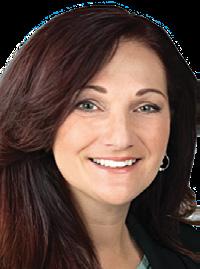
> Mortgage Machine Services, a provider of digital origination technology to residential mortgage lenders, appointed Crystal Stanton to manage customer success and onboarding.



> Incenter Marketing has hired Katrina Orlando as its vice president of sales engagement.

> INB, N.A. in Springfield, Illinois, announced the addition of Brad Dyer as the mortgage sales manager for Central Illinois.
People On The Move NATIONAL MORTGAGE PROFESSIONAL MAGAZINE | MARCH 2024 | 19


Hack The Funnel
A "likes" to "leads" to "loans" strategy to get the borrower first
PEOPLE ON THE MOVE //
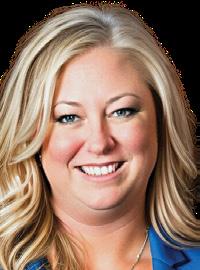
> Planet Home Lending hired Melony Harpe as vice president, construction sales manager recently.

> Baltimorebased First Home Mortgage Corporation has announced today new growth for its McLean, Virginia branch office through the transfer of loan officer Jonathon Hodgkinson.

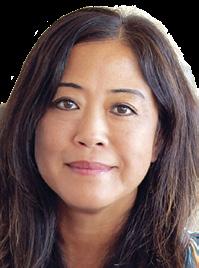
> ATTOM, a leading curator of land, property and real estate data, said that Ana Flor has been promoted to chief people officer and Kara Taylor has been promoted to chief marketing officer.
BUILD-A-BROKER: HANDS ON PRACTICAL ADVICE
BUILD-A-BROKER
20 | NATIONAL MORTGAGE PROFESSIONAL MAGAZINE | MARCH 2024
SPONSORED BY
BY RYAN KINGSLEY, STAFF WRITER FOR NATIONAL MORTGAGE PROFESSIONAL MAGAZINE
Bacon and eggs. Bono and the Edge. Long walks and the beach. Twins. “The idea is to bundle the whole experience,” explains Greg Sher, managing director at the Baltimore-based NFM Lending, who thinks educating borrowers and closing loans should be added to the list of things made to go together.
“We are experts,” he continues. “We’re not going to be pushy. We’re going to drip content on you to educate you, and when the time is right, because you trust us, we’re going to hand over an agent that we trust. It’s all-encompassing, is what’s the utopia.”
As major industry players like West Capital Lending and Rocket Pro TPO begin to build their own influenceroriginator utopias, NFM’s Creator Collective, formerly called the Influencer Division, is a utopia that Sher has been building for nearly three years with the specific intention of courting “digital natives,” that segment of borrowers who have spent nearly their entire lives surrounded by digital devices and the world of social media. The first generation of digital natives is roughly 25- to 35-years-old, but eventually, every future borrower will be one.
Two of the mortgage industry’s enduring challenges are reducing the cost to generate leads and moving beyond a transactional value proposition to one that’s consultative. The Creator Collective solves these twin challenges by enabling NFM’s originators to leapfrog real estate agents in the acquisition funnel, allowing NFM’s originators


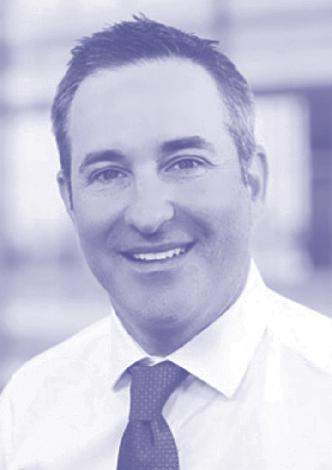

“There’s still a lot of value agents can bring, I’m very bullish on that, but they’re in the process of getting phased out.”
> Greg Sher, managing director, NFM Lending
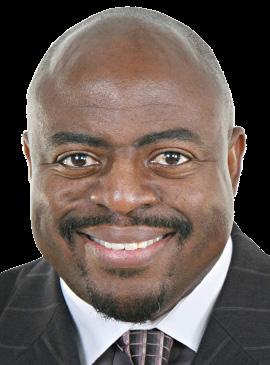

to initiate the homebuying process with borrowers from an added-value position. Influencer-originators in NFM’s Creator Collective hawk homeowner education to generate leads and close loans, building trust with borrowers by addressing a well-documented lack of financial literacy around the homebuying process, particularly among millennials and Gen-Z homebuyers.
“Back in the day,” Sher recalls, “people responded to mailers, rate tables, and real estate agents saying, ‘Here, call this person.’” Those days are rapidly coming to a close. “We’ve never seen a segment of borrowers like this before.” According to GWI, a market research firm, 54% of social media browsers use social media to research products.
Sher’s happy to play by the new rules: since the program’s soft launch in mid-2021, NFM’s Creator Collective has generated over 65,000 leads from mortgage-related posts on social media platforms like TikTok, Instagram, Facebook, and YouTube. From those leads, the company has closed over 1,000 loans representing nearly $400 million in unpaid principal. Sher accepts credit for originating the program but deflects praise for the success they’ve achieved over the past 30 months.
Rather, “the artists” who bring the idea to life every day deserve the applause. After all, it’s because of the team assembled, Sher’s quick to point out, that the strategy works at all; there just aren’t that many mortgage influencers, let alone influencers also licensed to originate. In the two years of the Collective’s existence, NFM has
is a valued member of Charlotte Crown and the local National Association of Real Estate Brokers. Rosa Chavarria has more than 30 years of experience in mortgage banking, including down payment assistance programs. Arthur Green has built strategic partnerships with
like the North Carolina Housing Finance Agency, House Charlotte, and SC Housing to develop financing packages. Brian Jones is the preferred lender for the North Carolina State Highway Patrol Troopers Association.
> SouthState Bank announces expansion of its mortgage team in Charlotte, N.C., in response to the growing population in the area. Charlene Davis
organizations
NATIONAL MORTGAGE PROFESSIONAL MAGAZINE | MARCH 2024 | 21
BUILD-A-BROKER
From a sample of 10,000 influencer-generated leads, 92% of mortgage-curious Gen Zers wanted to be contacted by text or email; only 8% sought a phone call.
expanded its stable of influencers who originate to 12, not including a few real estate influencers. When it comes to reaching borrowers earlier in the process, “that’s why NFM’s got such an enormous head start,” Sher says.
“And to some degree,” he continues, “why I’m so open about sharing it. We’ve lapped the field 10 times over and I’m not saying that out of arrogance. No, a lot of it is just luck and timing.”
JUST AN OLD-FASHIONED GOOD IDEA
For Sher, a sense of timing meant being strategic about pitching his plans for an influencer division to NFM’s leadership. Lacking proof of concept for a like-to-leads-to-loans origination strategy, Sher built a process for funneling mortgage-curious followers into a pipeline of potential borrowers. The initiative officially launched in January 2022, but as early as March 2021 Sher was Beta-testing this process with the “Michael Jordan” of mortgage influencers: Scott Betley (@ThatMortgageGuy). A licensed originator for more than seven years, Betley commands one of the largest audiences of mortgage-curious followers on the internet with more than one million across all of his platforms.
What first struck Sher about Betley was the sheer volume of engagement he received on his posts. Every engaged
PEOPLE ON THE MOVE //

>
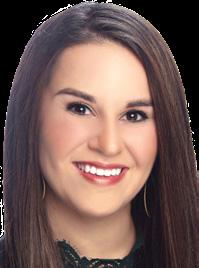
follower was a lukewarm lead in Sher’s eyes. Not only did some of Betley’s videos have view counts in the millions, but many garnered hundreds and thousands of comments. Commenters asked questions like, ‘Do you do business here?’ or ‘Do you do self-employed people?’. Others contextualized the circumstances under which they hoped to attain a mortgage within the next 12-18 months, such as having recently graduated from school or else filed for bankruptcy within the past year. Sher remembers thinking: “This is the future.”
He quickly discovered, though, building something that has never been built before requires a fair amount of troubleshooting. “Because we didn’t know any better,” he admits, “we would take an interested person right into an application. We would send them a link. Well, we got completely bottlenecked with people that didn’t qualify.”
To widen the funnel, Sher started screening leads, establishing workflows based on followers’ answers to intake questions about their timeframe to purchase, income, and creditworthiness. Even then, Sher realized he needed a buffer between the influencers and the intake forms, so he built a call center domestically.
A November report published by NFM reveals some of the data behind how TikTok views translate to leads and then closed loans. In July alone, NFM’s influencers accumulated 30.7 million
TikTok views from Gen-Z users, up 21.8% from June. The 1,401 leads — as in, completed intake forms — generated from those viewers became 24 prequalification applications and finally, 20 mortgage originations. As for added value, twothirds (941) of the 1,401 leads asked to be introduced to a real estate agent.
By exemplifying his own leadership, Sher earned the full support of NFM when he formally pitched his strategy with a process (“of sorts,” he says) already in place.
FIRST-OF-THEIR-KIND BORROWERS
Whether separated by age, income, or ethnicity, different borrowers approach the homebuying process with different expectations for how that process unfolds, including on whose terms. As a matter of fact, a tortoise won’t run on a hamster wheel even if one is placed in its enclosure. Sher believes the homebuying process should match borrowers’ ability to participate in the process. After all, borrowers’ expectations for participation arise from their ability to participate.
As consumers, young millennials and Gen-Z borrowers — the first wave of digital natives to buy mortgages — have different capabilities than their parents and grandparents, made possible by 21st-century technologies. By default, new capabilities give rise to new behaviors and habits, and therefore new psychological
>
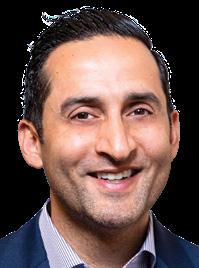
Treliant, a consulting partner to the financial industry, has named Laura Huntley
managing director in its regulatory compliance, mortgage, and operations solutions practice.
as a
Service First Mortgage in Texas has added Danelle Rivas to its Austin office.
Mortgage fintech Lower announced the addition of Amir Syed, co-founder of Growth Only Coaching, as its chief growth officer. HAVE A NEW HIRE OR PROMOTION TO SHARE? Submit the information to Keith Griffin at kgriffin@ambizmedia.com for possible publication. Announcements should include a headshot.
>
BUILD-A-BROKER: HANDS ON PRACTICAL ADVICE
22 | NATIONAL MORTGAGE PROFESSIONAL MAGAZINE | MARCH 2024
SPONSORED BY


approaches. When it comes to mortgages, Sher describes younger borrowers’ new approach as, “I’m going to dictate; nobody’s going to tell me. I’m going to take somebody that I follow, and I’m going to engage with them and go through the process with them.”
Speaking strictly about those who watched a video, clicked a link, and completed the application process, nearly 40% of the borrowers NFM has closed through influencer-generated leads fall in the 25- to 35-year-old age bracket. Because the program was launched to target that set of borrowers, Sher isn’t very surprised by the numbers. Instead, the success affirms how listening to borrowers can help lenders build up resilience through a forwardlooking origination strategy.
As the mortgage industry has shrunk over the past two years, influencergenerated leads have brought in muchneeded business for NFM. But, in building a lead-gen apparatus for younger borrowers, NFM has also built a system for collecting data on this demographic. Not only do the intake forms create
leads and loan applications, but NFM aggregates responses into data sets that offer unique insights into the behaviors and circumstances of young borrowers. These data have helped NFM hone its strategy with an ever more nuanced understanding of digital natives.
For example, from a sample of 10,000 influencer-generated leads, 92% of mortgage-curious Gen Zers wanted to be contacted by text or email; only 8% sought a phone call. What does this indicate to Sher? Whereas most borrowers used to prefer a phone call for such an important conversation as financing a home, digital natives “are very comfortable clicking. That’s what they want. They don’t want to be bothered,” Sher shrugs. “They want to do things on their time.”
REFERRAL REVERSAL
Of the total set of 65,000 leads, 97.5% want to purchase a home, yet 85% don’t yet have a real estate agent. 93% say they want to be introduced to an agent, demonstrating how early in the acquisition funnel NFM reaches borrowers through social media. “The
business is changing right before our eyes, and we’ve definitely been on the forefront of this evolution.” They’ll continue to be, Sher’s sure, because reaching borrowers earlier in the funnel translates to more control over the process, putting lenders, not real estate agents, in the driver’s seat.
The conventional way people do business in the mortgage industry — i.e., a real estate agent starts the borrower on the homebuying journey and eventually refers that borrower to a lender for financing — is rapidly changing, according to Sher. Technological advancements drive this transition by reshaping the ways and means by which people interact with their environment, including other humans in their environment, across both physical and digital spaces.
In the past decade, social media influencers across many industries have revolutionized how companies reach their target audiences. The ease and ubiquity of screens and Wifi have spawned a generation of consumers too savvy for traditional marketing methods. While the internet makes the universe of mortgage- and housing-related resources available at the swipe of a screen for borrowers, social media helps to channel borrowers toward providers (posters and uploaders) of this information. Armed with the power of choice, borrowers trust social media influencers who answer their questions and, perhaps more importantly, humanize the process. “About two out of every 10 videos should be something personal,” Sher advises.
Take, for example, Jordan Nutter (@ANutterHomeLoan), who only entered the mortgage industry in 2019. She has rapidly succeeded as an influencer-originator, but she picks her priorities: “I’m an originator. That’s how I make my money, support my family, and that’s my career.”
Nutter’s appeal is her balance — a knack for walking the tightrope between coach and confidant, originator and educator. Many of her best-known videos are satirical, in which she reenacts sometimes nonsensical and sometimes uproarious real-life conversations with her clients. While others use the verb “influencing” to describe Nutter’s origination strategy, the essence of her
NATIONAL MORTGAGE PROFESSIONAL MAGAZINE | MARCH 2024 | 23
> Jordan Nutter, loan originator and vice president of the Influencer Division at NFM Lending
BUILD-A-BROKER
While the internet makes the universe of mortgage- and housing-related resources available at the swipe of a screen for borrowers, social media helps to channel borrowers toward providers.
outreach is “educating.”
Ultimately, young millennials and Gen Zers are making themselves available earlier in the funnel, turning themselves into leads by expressing through follows and likes their desire to get into a home. “You have to know when their hand is being raised,” says Sher. With their 12 mortgage influencers, NFM has spun a digital web for tech-forward, mortgagecurious borrowers to stick to, baited with educational tidbits about housing finance. The way he sees it, that hand is being raised (and the web begins quivering) as soon as a first-time homebuyer turns to their search engine to answer the question, “What’s a mortgage?”
Being available to NFM’s originators earlier in the funnel has reversed referral networks that typically order agentoriginator relationships. “I don’t think the agent will ever be irrelevant,” says Sher, though he predicts that agents will have an increasingly diminished role in assisting borrowers in the future. Introducing borrowers to real estate agents has become part and parcel of NFM’s white-glove service because agents are experts on neighborhoods, school systems, and recent sales, among other important factors for borrowers to consider. “There’s still a lot of value agents can bring, I’m very bullish on that,” Sher affirms, “but they’re in the process of getting phased out” — especially those unwilling to adapt.
A BIG OPPORTUNITY
Despite Facebook celebrating its 20th anniversary in February, using social media to incubate business still feels unfamiliar to many industry old-timers raised on old-school methods like cold calling and classifieds. Graduating from Facebook posts to TikTok videos could be its own badge on LinkedIn. Sher says the badge that no one in the industry
should wear is: “I’m not on social media. I don’t need it.” Those originators and agents actively lose business when they can’t be searched, found, and followed by borrowers on social media platforms.
Influencer-originator competition has increased, though, since NFM launched its initiative in January 2022. What’s A Mortgage, for example, is a team of 15 loan officers that includes Minh Nguyen, an influencer-originator with nearly 240,000 followers across all platforms, and Jide Buckley, who has 365,000 followers on Instagram alone. In December, What’s A Mortgage and West Capital Lending, the top originator for Rocket Pro TPO for 29 consecutive months, announced a partnership for leveraging social media and mortgage education to generate leads and close loans. The influencers will brand Rocket Pro TPO and West Capital Lending.
For NFM, when it comes to actually closing the loans generated from influencer leads, 80% are closed with an originator who was not the influencer with whom the borrower first interacted. Part of this discrepancy is due to licensing constraints, but influencer preferences also play a role. A content creator through and through, Scott Betley prefers to have more time for making videos and studying trends, so he hands off more of his leads to other licensed loan officers on his team. Jordan Nutter, on the other hand, takes hand-holding seriously and prides herself on guiding her followers through the entire process. Either way, they’re all paid on commission.
All of these metrics are tracked, tallied, and reviewed weekly. “It requires a comprehensive back end to even be in this game,” Sher stresses. A persistent challenge he faces is keeping his influencer originators enthusiastic and motivated. Collaborations offer a measure of excitement, but data
analytics and efficient systems directly improve his influencers’ brand-building strategies and conversion rates. “If I’ve got a thousand people raising their hands, but we’re only able to get one to the table,” he levels, “that’s a problem.”
Misinformation about homebuying runs rampant across the internet, especially on social media. Sher points to how “a large percentage of people that are 19 and 20 think that it requires a 25% or 30% down payment, or that you need a perfect credit score. None of that’s true.” Borrowers want someone they trust and like to guide them through the process.
Looking ahead, originators and lenders have the opportunity to become that trusted source. It’s a process-oriented approach to building your brand, growing your business, significantly reducing the costs of generating leads, and realigning originator-agent referral relationships. Don’t follow the business — let the business follow you.
What Sher and NFM have built so far, though, only represents the tip of the iceberg. “You want to talk about opportunity and just how much grander this could be,” Sher posits, “only 18% of the people that go to our form fill it out.” In other words, the 65,000 leads generated so far from influencer content only represent 18%, or slightly less than one-fifth of the followers who made it to the intake form. “So, you can imagine,” he continues, “we’re leaving 82% on the table. We’ve actually had +300,000 people uniquely go to a page where they’ve considered filling it out and raising their hands.” Increasing friction in the funnel, such as by dropping cookies or using chat bots, is one way Sher plans to improve the completion rate for intake forms.
“Are we leading? Yes,” he hedges, “but make no mistake, there’s still a lot of work to do.” n
BUILD-A-BROKER: HANDS ON PRACTICAL ADVICE
24 | NATIONAL MORTGAGE PROFESSIONAL MAGAZINE | MARCH 2024
ORIGINATOR TECH RESOURCE GUIDE

wemlo
Boca Raton, FL
Area of Focus: Loan Processing
Third-party processing service, wemlo, empowers mortgage professionals through transparent, flexible, and efficient loan processing. To better serve our customers and their borrowers, wemlo proudly offers processing support in 47 states (plus Washington DC) for more than a dozen loan products including Conventional, FHA, Jumbo, VA, and Non-QM.
wemlo.io
(866) 523-3876 info@wemlo.io
Licensed In: AL, AK, AZ, AR, CA, CO, CT, DC, DE, FL, GA, ID, IL, IN, IA, KS, KY, LA, ME, MD, MA, MI, MN, MS, MO, MT, NE, NV, NH, NJ, NM, NC, ND, OH, OK, OR, PA, RI, SC, SD, TN, TX, VT, VA, WA, WV, WI, WY

Zero 1 Solution LLC Stockton, CA
Area of Focus: Software
1Solution Mortgage allows you to Originate, price a loan scenario with proposal, CRM, Marketing and more …
• Scenario
• Communication
• CRM
• LOS
• Essentials • Marketing • HR
1smtg.com (888) 458-0650 info@1smtg.com
Licensed In: All U.S. States, U.S. Virgin Islands
WHOLESALE LENDER RESOURCE GUIDE
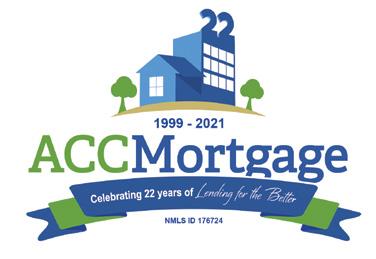
ACC Mortgage Rockville, MD
ACC Mortgage is the oldest NonQM lender that has never stopped lending in 22 years. We specialize in Bank Statement, ITIN, P&L, Foreign National and DSCR lending. Price, Product and Process are what make for Non-QM success.
ACCMortgage.com
LICENSED IN: AZ, AR, CA, CO, CT, DE, DC, FL, GA, ID, IL, IN, KS, MD, MI, NV, NJ, NC, OK, OR, PA, SC, TN, TX, UT, VA, WA

Newfi Wholesale Emeryville CA
DSCR, Bank Statement, 1099, Asset Depletion, Buydowns, Full Doc Non-QM
No one knows Non-QM like us. Newfi Wholesale is an exception-based Non-QM lender dedicated to helping brokers find success. We offer a full Non-QM product suite including: Full-Doc, Bank Statement, 1099, Asset Depletion, Interest Only, Non-QM ITIN, Non-QM Buydown, DSCR 1-4 & 5-8 Units, DSCR Condotels, Graduated Payment Mortgages, and more. At Newfi about 1/3 of our funded deals have exceptions that we make in-house!
newfiwholesale.com
(888) 415-1620 support@newfi.com
LICENSED IN: AL, AK, AZ, AR, CA, CO, CT, DC, DE, FL, GA, HI, ID, IL, IN, IA, KS, KY, LA, ME, MD, MI, MN, MS, MO, MT, NE, NV, NH, NJ, NM, NC, ND, OH, OK, OR, PA, RI, SC, SD, TN, TX, UT, WA, WV, WI, WY

Wholesale Lenders
KNOW
Way more than a magazine. Stronger Stories We discuss the issues in the industry others may be too wary to touch, and we never let advertise relationships affect our stories.
Find actionable advice from professionals across the industry with tips to further your career, grow your business, and more. Industry Insights Don’t just read the news — understand it. Find insightful articles from leading industry voices to help digest all the changes in the industry. nmplink.com/subscribe
IT ALL.
Hands-On Advice
Find the full
on page 81 Find the full Originator Tech list on page 81 NATIONAL MORTGAGE PROFESSIONAL MAGAZINE | MARCH 2024 | 25
list
HARVEY MACKAY
YOUR FIRST MILLION DOLLARS
Little Things Mean Everything
Magical moments can drive more business to your door
BY HARVEY MACKAY, CONTRIBUTOR, NATIONAL MORTGAGE PROFESSIONAL MAGAZINE
One of my favorite sayings is, “Little things mean a lot. Not true. Little things mean everything.”
It is the little things that separate mediocrity and excellence, a little account and a big account.
Years ago, I was calling on the number two envelope user in the Twin Cities. The buyer wouldn’t see me for about a year before I could schedule an appointment. He never bought from me, but I got to know him and built my Mackay 66 Customer Profile on him.
I stopped in one day, but he wasn’t in the office. His gatekeeper told me that his 11-year-old son was hit by a car while riding his bicycle and was in the hospital. I knew from the Mackay 66 that the kid played hockey, and his father was the coach. I went to our professional hockey team and had some of the players sign a goalie stick and shipped it to the hospital with a note. This little gesture made the boy mighty happy. Plus, it resulted in $10 million in envelope business over the years, and they are still one of

I was speaking to a real-estate company and doing my research. I called one Realtor who told me he had a client who was big into Disney collectibles. The Realtor was in a store and found a “Pirates of the Caribbean” coffee table book on sale for a mere $5, so he bought and delivered it. He received 20 transactions from this person, their family, and friends.
You can’t put a price on doing the little things. It’s the little things in life that — all summed together — become bigger and more important than the big things and events.
OF NOTE
When someone calls you on the telephone, you should always greet them with animation and elation and tell them how happy you are to hear from them.
I am convinced that U.S. Presidents George H. W. Bush and Bill Clinton would never have been president if it were not for their short notes. They both were fanatical note senders their entire political lives.
I met President Bush in the airport, and he sent me a thank-you note the next day as a total stranger. Do you think I may have given him a contribution afterward?
Red Buttons was a top comedian in the 1950s and ’60s. He told this story about how all his friends thought he had a phenomenal memory with holiday cards. He explained his strategy: Any time he met someone new, he would fill out a holiday card that night, make notes about their kids or some other salient point, and wait until the holidays to mail it to WOW every new friend.
Motivational author Glenn Van Ekeren told me a story about how one night he was channel surfing and landed on the Discovery Channel show “Dirty Jobs.” In one episode, host Mike Rowe was trying to duplicate the work
of an industrial painter whose job was to paint the inside of the Mackinac Bridge towers in Northern Michigan. His unnoticed job is done to ensure the steel of the magnificent, suspended structure won’t rust from the inside out, compromising the integrity of the bridge. Most of the 12,000 people who cross the Straits of Mackinac daily aren’t even aware that this “little thing” means everything to their safety.
Legendary college basketball coach John Wooden said, “It’s the little details that are vital. Little things make big things happen.”
MAKE SOME MAGIC
You would be amazed at what can happen when you find out what turns every human being on and off. For example, people always ask me how I got to be such good friends with Muhammad Ali. Muhammad was mesmerized with magic, so before I interviewed him for a chapter in my book, “We Got Fired! … And It’s the Best Thing That Ever Happened to Us,” I hired a magician to teach me tricks that I could not only show the Champ but teach him how to master the tricks. This expanded his bag of tricks significantly. Jackpot of jackpots! Instead of a one-hour interview, he kept me at his home for 10 hours.
The so-called little things are not a small part of a happy life. They mean a lot even if they may not always look important.
Mackay’s Moral: The one who removes a mountain begins by carrying away small stones. n
Harvey Mackay is a seven-time New York Times best-selling author with 15 books.
BUILD-A-BROKER: HANDS ON PRACTICAL ADVICE
26 | NATIONAL MORTGAGE PROFESSIONAL MAGAZINE | MARCH 2024
SPONSORED BY

When someone calls you on the telephone, always greet them with animation and elation and tell them how happy you are to hear from them.
NATIONAL MORTGAGE PROFESSIONAL MAGAZINE | MARCH 2024 | 27
KAY

Meet a New Generation Of Spring Buyers — Gen Z

As the oldest Gen Zers turn 27, it’s time to pay them more attention
As we approach the spring homebuying season, there’s a lot of preparation to do. But I’d argue that knowing your buyer is the most important preparation you can make. Knowing who your buyers are can help give you an idea of their wants and needs and how to interact with them to provide a referral-worthy experience. And there is one new set of buyers that loan officers
BENCHMARKS & BEST PRACTICES
BUILD-A-BROKER: HANDS ON PRACTICAL ADVICE 28 | NATIONAL MORTGAGE PROFESSIONAL MAGAZINE | MARCH 2024
MARY
SCULLY
MARY KAY SCULLY, CONTRIBUTOR, NATIONAL MORTGAGE PROFESSIONAL MAGAZINE

need to spend some time getting to know: Generation Z, or more popularly, Gen Z.
Gen Z includes those born as early as 1997 and as late as 2012, and the oldest of the generation are 27 years old. Already, many of them are entering the housing market. LendingTree said Gen Zers made up nearly 15% of potential home buyers across the nation’s 50 largest metro areas in 2022.
While they share some similarities with their Millennial predecessors, they also have some key differences from earlier generations. According to Forbes, roughly 30% of 25-year-olds (among the oldest of Gen Z) owned their home in 2022, a slightly higher percentage than the 28% of Millennials (born 1981-1996) who owned homes at that age and the 27% of Gen Xers (born 1965-1980), but
lower than the rate for Baby Boomers (born 1946-1964), 32% of whom owned homes at age 25.
With Gen Z showing such promise concerning homeownership, let’s get to know this generation better so you can be prepared for this new set of buyers that are moving quickly into the market.
BY THE NUMBERS
There are a few key facts to know about Gen Z that can help you understand their wants and needs as a potential homebuyer.
First of all, affordability is critical. Data from both LendingTree and Redfin show that Gen Z is buying homes in more affordable markets. Gen Z buyers choose smaller cities with more affordable housing over large, expensive markets like New York City, Los Angeles, or San Francisco. Their flexibility to choose
though they missed out on low rates, Gen Z is still buying homes. Some of this may be perspective, as some may be unaware of the historically low 2-3% interest rates of the pandemic years. Regardless, given the ages of the oldest of Gen Z, many were simply not prepared to buy any earlier.
While today’s rates are a challenge for many borrowers, some Gen Zers are choosing not to let rates hold them back. Similarly, don’t let your own assumptions hold you back from reaching out to this new generation of potential homeowners.
It’s also easy to assume that, due to age and financial limitations, Gen Z may not be prepared to buy. Again, this is not always true. A tight labor market during the pandemic helped much of Gen Z build their incomes quickly, as wages rose 12% in 2022, double the increase for
Gen Z is making their way into the housing market — and their financial situation looks different from any generation we’ve seen before.
more affordable markets may be tied to their remote or hybrid work schedules — as many are not bound to a specific location by their jobs.
National Association of Realtors (NAR) data shows that Gen Z purchases the smallest homes, with a median size of 1480 sq. ft. NAR also found that many Gen Zers have opted to stop renting and live with family to boost their savings, like many Millennials have done. In fact, NAR found that 30% of Gen Z homebuyers move directly from their family member’s home to a home of their own.
ASSUMPTIONS
It’s easy to look at the state of the market and think younger generations may not want to buy, however this is not true. LendingTree found that even
the overall population, according to a Bloomberg report. Add this to the many Gen Zers who have lived with family to save on rent; many of these young buyers will have adequate savings and income to cover down payments and closing costs sooner than you might expect.
Whether you’re ready or not, Gen Z is making their way into the housing market — and their financial situation looks different from any generation we’ve seen before. To be prepared for your spring homebuyers, be ready to meet Gen Z. n
Mary Kay Scully is the Director of Customer Education at Enact, leading the
development of the company’s customer education curriculum.
SPONSORED BY
NATIONAL MORTGAGE PROFESSIONAL MAGAZINE | MARCH 2024 | 29

Fivehold Success From A No-Close Deal
Name:
Gene Griffin
Job Title: Sr. Mortgage Advisor
How much was your best deal?
It was $0 for the initial transaction but turned into $2.45 million in transactions.
What made it your best deal?
My best deal was one I didn't close, but how I handled the client led to five referrals that did close.
What else was interesting about the deal?
Some clients were brought to me by a referral partner. I was working with the wife of a family that had two kids. After reviewing their application, documents, and credit, I quickly realized that they had solid employment history, income/savings, and their credit was much better than they thought. I got them pre-approved utilizing EPM's Empowered DPA Program.
After viewing a few properties, they checked out a new Lennar build. As we all know, it's challenging to compete with these "big box" builders.
Even with the forgivable DPA, I could not

Business: Summit Mortgage Solutions
powered by Barrett Financial Group
compete with the $26,000 in incentives from Lennar. My Realtor partner and the clients felt terrible as I was the one who helped them realize they were ready to buy.
The story doesn't end there, though. I told them although I may not be their LO on this transaction, I'm still their mortgage advisor. From how I handled this situation, I have received five referrals that have all closed.
I may not have made the thousands of dollars in commission on the initial transaction, but to this day, I have made fivefold that due to how I handled the situation.
I never saw it as a loss. I saw the opportunity to continue to help this family. Care and service still matter and are just a part of the value we bring to our practice. If you provide enough value in your practice, the business will come. n

Have a great story about your best deal? We’re not talking about your biggest deal. We want to hear about your best deal - the one that resonates with you personally, the one that became the story you’ve told again about why you’re in this business. Head over to https://nmplink.com/bestdeal and tell us the details. You could win a $100 Amazon gift card if your story is selected for publication.
WIN a $100 Amazon gift card! 30 | NATIONAL MORTGAGE PROFESSIONAL MAGAZINE | MARCH 2024







Complimentary registration available to NMLS-licensed active LOs and their support staff. Show producers reserve the right to determine final eligibility. The First Coast region’s top gathering for mortgage pros. APR 3 JACKSONVILLE, FL Embassy Suites by Hilton Jacksonville Baymeadows Scan here to register for FREE (promo code N NMPFREE) or go to WWW.COASTALCONNECTEXPO.COM


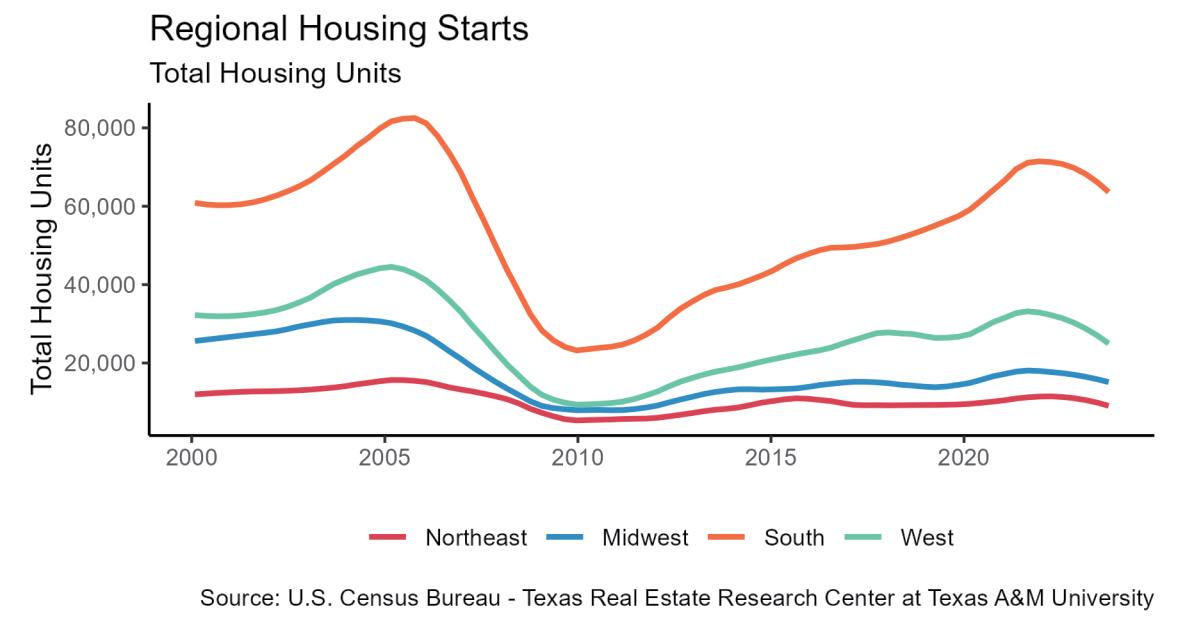
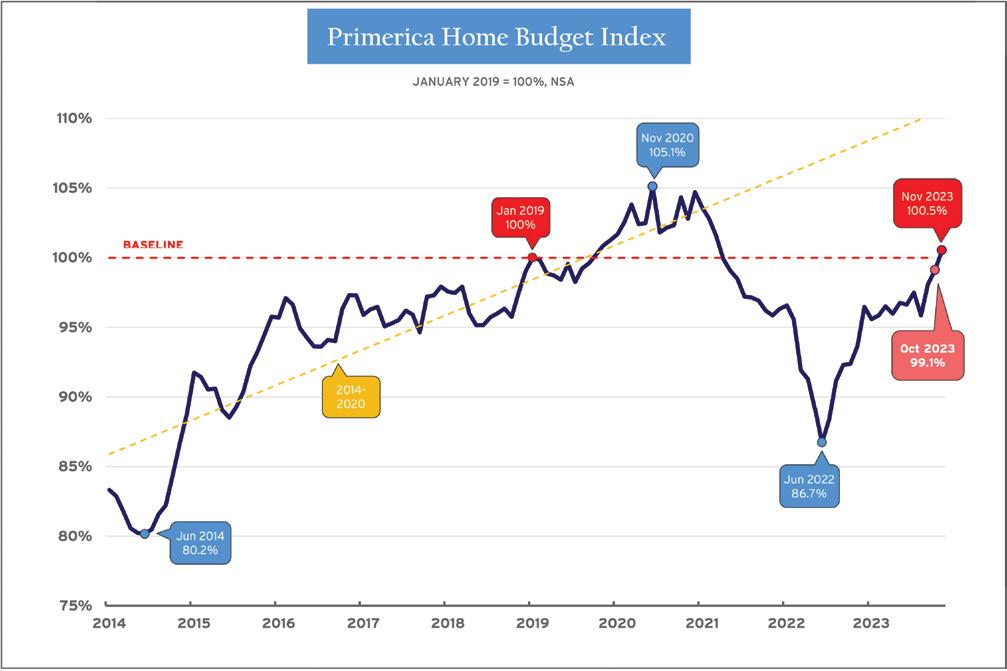
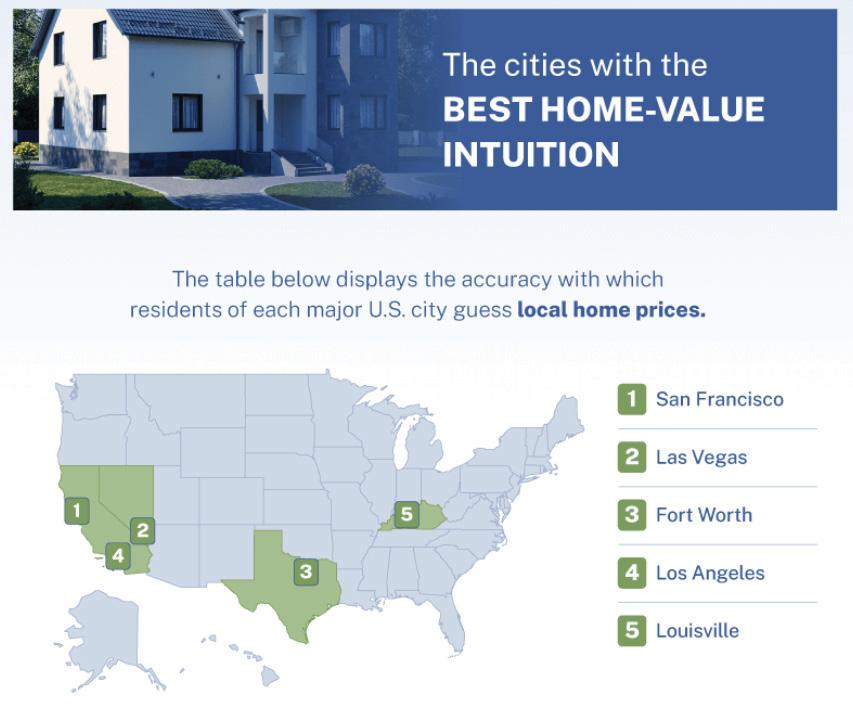
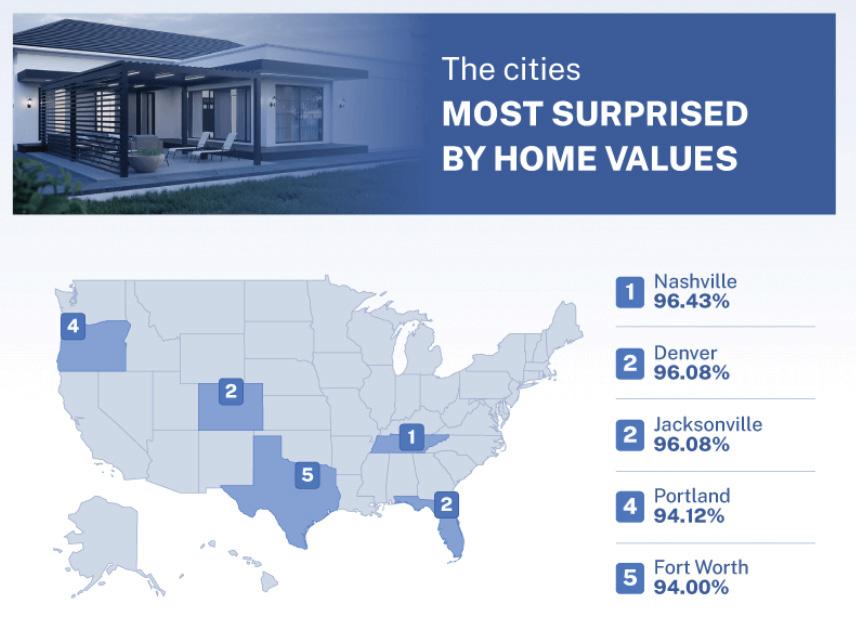

32 | NATIONAL MORTGAGE PROFESSIONAL MAGAZINE | MARCH 2024

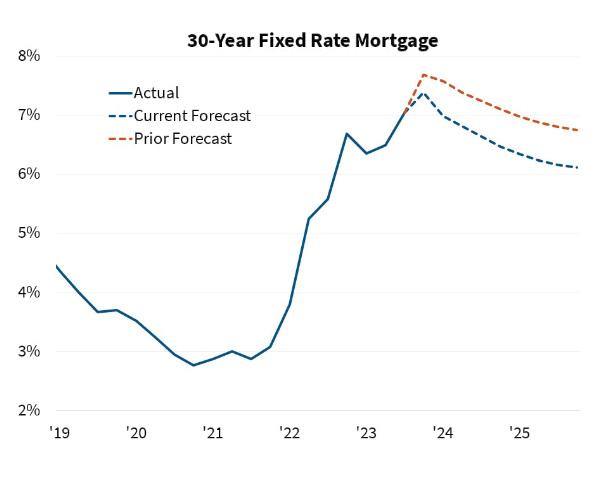


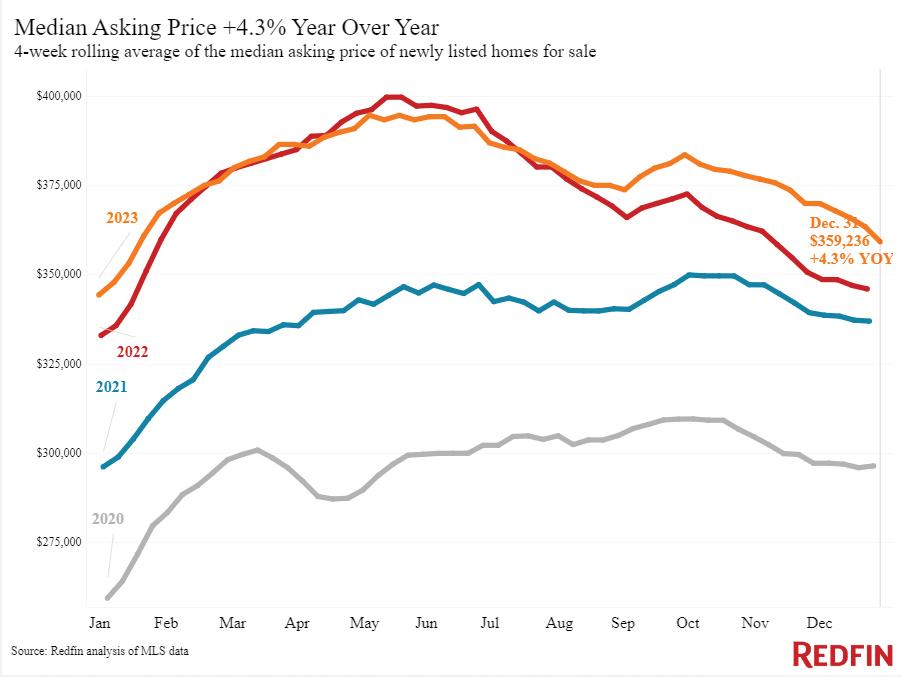


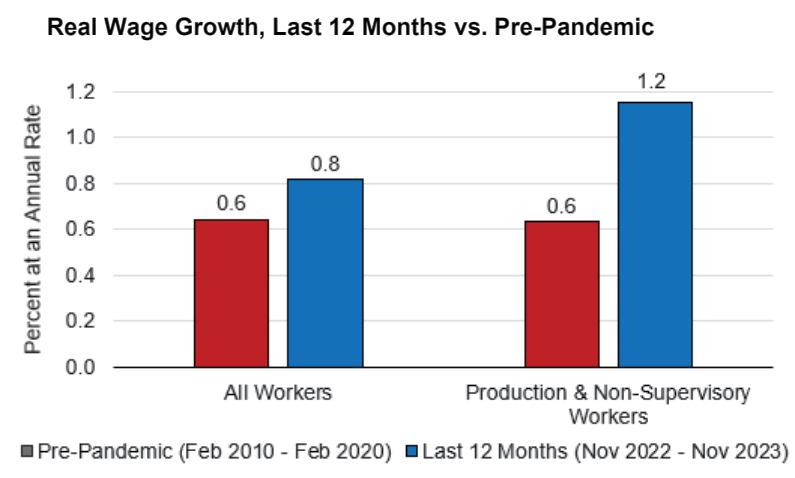



NATIONAL MORTGAGE PROFESSIONAL MAGAZINE | MARCH 2024 | 33
DATABANK

Home Lending Among The Hollers
In Appalachia, potential borrowers wait years for loans
34 | NATIONAL MORTGAGE PROFESSIONAL MAGAZINE | MARCH 2024
 BY ERICA DRZEWIECKI, ASSOCIATE EDITOR, NATIONAL MORTGAGE PROFESSIONAL MAGAZINE
BY ERICA DRZEWIECKI, ASSOCIATE EDITOR, NATIONAL MORTGAGE PROFESSIONAL MAGAZINE
The whole community emerges for Friday night’s football game, driving by signs for payday loans on the way into town. Around the corner from the high school, four generations of one family live in a former coal camp housebound by cardboard siding, a mobile trailer, and a few outbuildings. They don’t have two sticks to rub together but are *blessed* just the same.
Hundreds of such close-knit, isolated communities like this exist in the 13 states along the Appalachian Mountain range. Between the late 1800s and the 1970s, this region was reaped of its rich supply of natural resources. Economic development prospects have fallen short in the last 50 years, and the average resident now has $56,780 in household income — 82% of the U.S. average. In the most distressed parts — Eastern Kentucky, Eastern Tennessee, and throughout West Virginia — that average is far lower.
Strong work ethic and pride for homeownership sit in juxtaposition to few opportunities for growth and lessening federal assistance. That makes this a distinct region in which to originate home loans, which the people of Appalachia are terribly desperate for.
TRICKLING DOWN
“Capital behaves like water; it flows along the path of least resistance. So when you’re talking about places where the reward isn’t as obvious for capital, you have to make it go there. And that’s what we’re doing,” says Jim King, CEO of the Federation of Appalachian Housing Enterprises (FAHE), a community development financial institution with 50-plus members that serves 80,000+ people each year. “We serve individuals not served by mainstream finance. Sometimes that means that we’re the only lender or one of the few penetrating markets with a 30-year, fixed-rate product. And yet there are buyers who will qualify.”
FAHE works with the U.S. Department
NATIONAL MORTGAGE PROFESSIONAL MAGAZINE | MARCH 2024 | 35
of Agriculture, packaging over $500 million in mortgages for the 502 Direct program in recent years. It also sells loans on the secondary market. “Anybody who’s in the mortgage business is in the same business we’re in, helping people achieve the American dream. We see ourselves as an intermediary, the go-between of the real work on the ground by our partners who live in the same communities as the families they’re trying to reach.”
Partnership Housing in Owsley County, Kentucky, builds and rehabilitates single-family homes, manages rental units, and distributes commodities. Executive Director Cassie Hudson gets frustrated when qualified home buyers check all the boxes, but red tape bars them from closing. “It costs more to build a house here than it’s going to appraise for,” Hudson says. “If I cannot find gap money unrestricted that doesn’t have to be included as part of the appraisal, I have to deny this family. And that happens on every home.”
Grant dollars are so competitive that it takes two or three years before a file reaches closing. About 35 families are on her waiting list for new construction and 120 for rehabilitation loans. “I have a partnership with my local bank, and they match really good rates and terms. On the grant side, subsidies need to increase.”
Pride is strong in Owsley, billed as the “poorest white county in the U.S.” following the 2010 Census, when median household income was lower than any county outside of Puerto Rico. Owsley ranked sixth on SmartAsset’s 2023 list of Kentucky’s poorest counties. A single bank serves 4,000 residents spread out among the county’s 198 square miles.
“It keeps you busy,” says Angela Woods, president and CEO of Farmers State Bank in Booneville. “I’m sure there are communities that have the same needs as we do. Just the cost of everyday living plus mortgage and insurance can put a great strain on everybody.”
In 35 years in banking, she’s always worked in small communities. “My employees grew up with our customers, their children go to school with customers’ children; we go to church with one another. Even though we are for-profit we are part of the community here.” Her branch processes loans and secures low down payments for Partnership Housing.
IN THE HOLLERS
Ahollow, or “holler’’ is the ground space between hills in Appalachia. This topography lends itself to flooding, which devastated 10,000-plus Kentucky homes and wiped
FY 2023 COUNTY ECONOMIC STATUS IN APPALACHIA
County Economic Status in Appalachia, Fiscal Year 2023
out 3,000 in 2021-22. “We’re just getting the recovery dollars,” King says. “I’m proud of what the nonprofits have been able to build with private resources in the interim, but the big work hasn’t started yet. We’re concerned about the cost of homeowners insurance and what flood insurance will do to price them out of housing when they’re already struggling. You could hand them a home and they might not be able to afford to maintain it and keep up with taxes and insurance. That’s a real problem.”
Two historic floods within 18 months have strained Hudson’s resources. “If I build eight houses a year but the flood comes and takes out 25, how am I ever making any leeway?” she says.
Travel 130 miles south into northeastern Tennessee, and Clinch Powell provides mortgage financing in another Appalachian community. There are people here who don’t read or write and have known life without electricity.
“There’s still houses with cardboard siding and no running water,” Executive Director Lindy Turner says. “But poverty is as much a state of mind as it is an economic and physical thing. We are a people of resilience who always make do.” Take the 69-year-old who worked all his life and then broke his back. On a fixed income, his rent just doubled. He has no credit history,
(Effective October 1, 2022 through September 30, 2023)
of
economic
Map Created: June 2022 Data Sources: Unemployment data: U.S. Bureau of Labor Statistics, LAUS, 2018–2020 Income data: U.S. Bureau of Economic Analysis, LAPI, 2020 Poverty data: U.S. Census Bureau, American Community Survey, 2016–2020 0100 50 Miles GEORGI A ALABAM A MISSISSIPPI SOUT H CA RO LINA NO RT H CA RO LINA VIRGINIA WEST VIRGINIA KENTUCK Y OHIO ILLINOIS I NDIAN A WISCONSIN MICHIGA N DE NJ PENNSY LVANIA MARYLAND NEW YO RK TENNESSE E Distressed (82) At-Risk (109) Transitional (218) Competitive (10) County Economic Levels Attainment (4)
The
Appalachian Regional Commission uses an index-based county economic classification system to identify and monitor the economic status of Appalachian counties. See the reverse side for a description
each
level.
36 | NATIONAL MORTGAGE PROFESSIONAL MAGAZINE | MARCH 2024

“We help people get off that hamster wheel, working on their budgeting and financial literacy so they don’t get trapped forever.”
> Lindy Turner, executive director, Clinch Powell
no email address and pays most bills in cash. Turner must help him establish credit using his car insurance, phone bill, and rental history. “He doesn’t understand the internet,” she says. “But I guarantee you this man will never miss a payment.”
She meets clients like this more often since rents have skyrocketed. “People who never thought they could own a home are desperate.” A household with $52,000 in income, little debt, and good credit can qualify for a $300,000 loan at 4.5% and pay $1,200 a month. Bump up their income by $1,000, and they no longer qualify. “Now, you’ll be lucky to qualify for a $150,000 loan, but there are no livable houses on the market for $150,000, so you’re blocked out of home ownership. And you’ll have to make closer to $100,000 to qualify and buy a home.”
A $130,000 house Clinch Powell built and sold two years ago appraised at $260,000 today. “Let’s talk about equity,” Turner says. “How attractive is that customer at the bank today with collateral? If we can get folks to understand the investment piece, that’s invaluable.”
Staff often work with people on credit and budgeting before they become loan applicants, later providing loan counseling and foreclosure mitigation. The region they serve once had a strong economy based on timber, coal, and tobacco. Now those resources are gone, and so are the jobs. This is the cross much of distressed Appalachia has to bear.
“It’s hard to let go of a lot of that. Back then, if you were a person who had the giddy-up-and-go and willingness to work, you could provide for your family. Over time, that’s changed, but it’s still in the ethos of the culture. People here don’t think they are poor. If you live in the house you grew up in, it may not be in good repair … but you don’t owe anything on it.”
WHEN SHARKS CIRCLE
In places where legitimate financial institutions are few and far between, predatory lending is rampant. “Banks are pulling out, and the predatory lenders are moving in,” Turner says. “If it’s an intersection, there’ll be one on every corner.”
They beckon people with promises to build credit but aren’t forthcoming with the terms. “It’s preying on people who are in a position of desperation … which is why it’s so important for us to have more CDFIs with reputable lending. We help people get off that hamster wheel, working on their budgeting and financial literacy so they don’t get trapped forever,” says Turner.
Loan officer Stace Karge moved to Tennessee 20 years ago from the West Coast. “It never crossed my mind that people were living in these conditions in this day and age,” she says.

“There’s a definite pride in Appalachian culture. Instead of
“You could hand them a home and they might not be able to afford to maintain it and keep up with taxes and insurance. That’s a real problem.”
> Jim King, CEO, Federation of Appalachian Housing Enterprises
NATIONAL MORTGAGE PROFESSIONAL MAGAZINE | MARCH 2024 | 37


being unhappy about what you don’t have, it’s feeling incredibly blessed. My grandfather homesteaded this and now it’s mine. And that’s something you can’t take away. It’s priceless.”
Karge shows people without technological know-how how to access and upload online bank statements. “It’s not something they’ve ever had to do. To me, the biggest challenge as an LO here is that technology piece and being able to effectively communicate with clients.” The heaviest burden for her borrowers is achieving good credit and debt-to-income, as well as financial literacy.
Clinch Powell has access to great loan products, but they don’t come quickly, and the federal government has cut funding to the USDA’s rural housing programs dramatically.
GENERATIONAL HOMESTEADS
Developers tend to steer clear of the isolated communities dotting this landscape. “The economic incentive just isn’t steep enough,” King says. It’s common for several generations to live on the same property in different houses in various conditions, from disrepair to new construction. “We’re very attached to the land in our community, that’s for sure,” Turner says. “You drive through, and there’s Mamaw’s house or Great Mamaw’s house — more than likely very small, possibly built on piers in the early 1900s, tin roof. It’s always gonna have an awesome front porch ‘cause that’s where you break your beans. Then next to it, maybe a brick rancher, a little bigger but still tiny by today’s standards, and that’s where their kids are. Then maybe a bigger house for the grandkids, and next to it a trailer.” Karge was surprised to encounter this when she came here as an LO. “It’s very unique. Land is your heritage, your roots.”
capital difficult.”

An area’s housing stock tends to keep pace with its economic growth. “People’s expectations about where they’re gonna live and what they can afford change. In communities where that hasn’t happened quickly, housing stock is declining in value. That makes it very hard to build because appraisals get held behind, which is where an organization like ours tends to come in.” Outsiders often ask King if he knows about this loan product or that program and how the federal low-income housing tax credit works. “As if the poverty and the housing issues are actually a reflection of some ignorance on our part. It’s just a misconception that this is the best we know how to do, when in fact the economic landscape doesn’t allow the tools to work the way that we’d like.” There are plenty of smart people in these parts, just not enough resources. “We’re financing mortgages for people that, if I were a classically trained underwriter, I would say, I’m not sure I want to make this loan. But we use our experience to tell us it might not fit in a tranche of loans we sell to the GSEs, but it might perform just fine in a portfolio we control.” Another misconception is that the federal government and donors have invested a lot of money here to no avail. “That’s just a fallacy,” King says. “CRA (Community Reinvestment Act) credit tends not to flow very well in places where you don’t have a lot of national bank presence. That’s changing in CRA reform, but we’ve gone decades of no flow of that type of capital.”
After 40 years doing loans in this region, he’s inspired by families who now own their homes outright. “Often what you find is those same people will then say, how do I make this happen for my neighbor or my family? How am I part of a solution now?”
The deeply-distressed parts of Central Appalachia are home to approximately 10 million people. “This is a historically high single-commodity area,” King explains. “So timber for a season, coal for a few generations. As those industries dried up, there wasn’t a strong economy left in place. Coal camp housing wasn’t designed to last multiple generations. There is some federal relief for that, but not nearly on pace with the need. The higher poverty in these coal counties just makes the flow of
CHANGING THE TONE
Now in the top 1% of loan originators in the country, Newport, Kentucky’s UMortgage Managing Partner Ravi Patel started his career in Appalachia during the 2008 housing crisis. “The biggest challenges there are financial education … properties passed down from generation
Before and after photos of a home in northeastern Tennessee rebuilt by community housing development organization Clinch Powell.
38 | NATIONAL MORTGAGE PROFESSIONAL MAGAZINE | MARCH 2024
> Ravi Patel, managing partner, UMortgage
to generation, and wages not increasing to compete with inflation,” Patel says. He doesn’t deal with these issues as much on the outskirts, but northern Kentucky, like the rest of the country, still has affordability challenges. “The past few years, it has put a lot of people in the median household income range on the sidelines,” he adds.
Instead of offering subsidized loan products with higher interest rates, one of Patel’s back-pocket strategies is to reach a lower rate with retirement accounts or gift funds. He credits his success to business investment and self-branding. “Create the reputation so you’re known for doing the right thing for your clients all the time. We don’t want to create a habit of individuals going underwater. Our goal is to help them purchase a home and create generational wealth for their families.”
Patel encourages LOs in Appalachia to develop relationships outside of their community. “With social media and technology, loan officers have a wider net to cast. Do lunch and learns, events at churches, schools … help people set up a plan to meet their goals.”
FAHE is working closely with the Commonwealth of Kentucky and county judges to build new homes on higher ground following the floods. “The capacity of a county in some of these rural communities is really held back by the tax base,” King says. “Traditionally, people think about jobs first, and then the houses will just show up. I don’t know any community in our country right now that feels like that’s working for them.”
footprint. Isn’t that an untapped resource? It’s the way to lift not only our region up but our country up as well.”
FAHE Communications Officer Lina Page urges LOs in wealthier parts of America to get to know their local CDFIs. “Mortgage loan officers out there who see wonderful people they can’t serve because they don’t fit the credit box that mainstream finance applies … there’s referral potential. As these individuals succeed, they may end up as one of their clients down the road.”


Before FAHE built a 100-unit subdivision, Lee County, Kentucky officials feared extending fire suppression to the property would be too expensive. Since making it happen, the tax base has grown, and they’re welcoming new factories and, with them, jobs. “Let the cities and counties make an investment so you can build amenities in a community that people want to be part of, and then that changes their ability to recruit employers,” adds King.
FAHE and members like Clinch Powell seek partnerships to lift all parties. “Appalachia is the place to invest,” Turner says. “It’s an untapped frontier, and it’s ripe for smart investment in the people who are already here doing business. We don’t have a lot of big banks in these communities. They need CRA credit, but they won’t work with us because they’re not in our
When that starter home family has a 20% down payment saved up for their dream home, who do they call? Their original LO.
“We’re creating a pipeline of future qualified homeowners. It feeds itself,” Karge says. “One house feeds this whole community. That community feeds that region, that region feeds that state, and that state feeds our nation.”
An outsider making nice just for profit won’t fare well here, and a knight in shining armor can’t rescue a community they know very little about. “It’s a different language, a different way of life,” Karge says. “These people aren’t going anywhere. They are a community already. But for an LO to come in and say, ‘I’ve got some really cool banks that are going to invest,’ that’s a win for everyone. We just need the investment to provide the opportunity.”
Successful LOs are committed even at the expense of their own convenience, and that rings true here, too. “I don’t close my computer without making sure every email has been answered and every phone call has been answered. I treat my customers how I want to be treated. They’re people, not documents,” Karge says.
Farmers State Bank invests capital back into Owsley County. “Whenever you can do a kindness for someone, it makes you feel good,” Woods says. “We have opportunities to help our customers by donating to local charities. It just works for us.”
For those who lost their homes in the floods, only time will tell. “I don’t think we’ve yet seen the worst of rate increases that are coming to our area,” says the banker.
To the LOs doing $100 million or more a year in loan volume, Turner says, “Good job!” urging them to ask themselves, “Who did I lift up today because I’m successful? Who’s being left behind? That’s how we lift all ships, all of us, together.” n
NATIONAL MORTGAGE PROFESSIONAL MAGAZINE | MARCH 2024 | 39
A before and after look at a kitchen in Owsley County, Kentucky. Renovations were completed by Partnership Housing..





August 15–18, 2024 Las Vegas originatorconnect.com Produced By ORIGINATORCONNECTNETWORK.COM Register for FREE with promo code NMPFREE


RealEstate Investors: RealEstate Investors: Neither Nor


Villains Heroes Villains Heroes Neither Nor 42 | NATIONAL MORTGAGE PROFESSIONAL MAGAZINE | MARCH 2024


Private lenders and the investor community air their grievances
BY KATIE JENSEN, STAFF WRITER, NATIONAL MORTGAGE PROFESSIONAL MAGAZINE
As housing affordability hits a three-decade low and the ongoing housing shortage dominates headlines, hostility is brewing toward real estate investors. At least, that is how the real estate investor community and some private lenders feel.
Over the past few years, lawmakers around the country have been rolling out more disincentives in an attempt to cast away Airbnb investors from their cities or force them to provide rent-controlled housing. Yet, reports have shown that their efforts do not produce the desired outcome, as seen through the new restrictions placed on short-term rentals in New York City and Los Angeles to force owners to either sell or convert to longterm leasing. But, what those cities got in return was a booming black market.
Private lenders and leaders in the real estate investing community argue that they could assist in building up more affordable housing, either by allowing the market to naturally readjust or by providing monetary incentives. Unaffordable housing affects investors, too, after all.
Regardless, many stand against the “villainization” of real estate investors. “Instead of looking at investors as the villain, if they looked at them as part of the solution, I think we could make some progress in our housing goals,” Velocity CEO Chris Farrar said.
Yet, what most of the following case studies show is that real estate investors could be the housing market’s hero or villain. It all depends on how they’re being motivated.
DISINCENTIVES CAUSE DISARRAY
Real estate investors are simple creatures; they want one thing, which is to make a profit off
their properties. Disincentives levy a threat to investors by taking money away from them, which can definitely motivate a behavior change. But Alex Offut, managing director at Constructive Capital, explained that sometimes those disincentives motivate them in the wrong direction, which is why it’s essential to understand real estate investors’ primary motive, which is, again, to make a profit.
This is what Offut saw happen in New York. Stringent restrictions for shortterm rentals, rooted in Local Law 18, were implemented in September 2023. City officials argued that renting those homes to tourists instead of New Yorkers exacerbates the city’s housing shortage and makes it even more expensive to live there.
However, what this disincentive actually produced is a booming black market. Since only about 3% of shortterm rentals were successfully registered with the city by December 2023, owners are now listing their properties on unregulated platforms like Facebook and Craigslist, which do not have the same checks and balances as platforms like Airbnb, VRBO, and Booking.com. By searching for vacation rentals in New York City on Craigslist, tens of thousands of results come up, many of which state “nightly” or “short stays” on the listing title. Similarly, a plethora of “nightly” and “short-term stays” pop up on Houfy and Facebook Marketplace as well.
Offut explained that the reason for this disastrous outcome is that it was based on a false premise: if short-term renting doesn’t bring in money, investors will need to convert to long-term renting or sell, which would bring more housing to the market and, in turn, lower rents and home prices. However, Offut, whose company lends to investors in New York City, said investors would lose money whether they sell or convert to a longterm rental.
“When you’re charging $200 to $300 a
NATIONAL MORTGAGE PROFESSIONAL MAGAZINE | MARCH 2024 | 43
day or more to stay in a short-term rental, I can assure you, you’re probably making two or sometimes three times the amount of monthly revenue you could make on that property versus putting in a longterm tenant,” Offut said.
But selling the property means losing money as well. Many investors who planned on listing their properties as short-term rentals bought them at an inflated price based on their projected revenue stream.
“If I know that I can generate, say, $6,000 a month in income on a shortterm rental versus, say, $3,000 a month as a long-term rental, well, when you start doing your cash flow exercises … you realize that property might be listed for $400,000, but now I can afford to pay $450,000,” Offut said.
Essentially, the present conditions of the housing market and the economics behind long-term leasing also disincentivize real estate investors from pursuing those options. But whether non-compliance is merely an early outcome or the only outcome of New York City restrictions, depends on enforceability.
“These folks are very entrepreneurial and have figured out very clever ways to maximize revenue out of their real estate,” said Farrar. “It wouldn’t surprise me if they figure out new and creative ways to get around some of these regulations.”
NEED FOR ENFORCEABILITY
Another thing to know about real estate investors is they’re risktakers. As evident by the rising black market of short-term rentals in NYC, investors will weigh the pros and cons of every available pathway, even if it’s an illegal one.
Sean Block, New York City mortgage broker and founder of Block Financial Resources, said his short-term rental investors began ringing him up once Local Law 18 was enacted, mainly to ask him, “Do you think it will be enforced?” Though he had no idea of how well the restrictions would be enforced, he said the question likely implies they think they’ll get away with it.
“Maybe they think it’s worth the gamble,” Bloch said. “The fines are between $1,000 and $5,000, so they think it’s worth taking the risk.”
Though Bloch said he follows rules

44 | NATIONAL MORTGAGE PROFESSIONAL MAGAZINE | MARCH 2024


“Instead of looking at investors as the villain, if they looked at them as part of the solution, I think we could make some progress in our housing goals.”
> Chris Farrar, CEO, Velocity
by nature and would personally advise them not to list their rental on different platforms, he’s also not looking over their shoulders to ensure they are abiding by the new law.
“I don’t think our responsibility really extends to other terms of the market,” Bloch said. “I’m not the enforcer of that. I’m just the loan originator.”
However, a few of Bloch’s clients who do not want to gamble on the city’s ability to enforce the rules, told him they’d rather convert to a long-term rental than sell at a discount.
“I have no way of knowing,” said Bloch. “They wouldn’t tell me if they were breaking the rules.”
Similar restrictions were placed on short-term rentals in Los Angeles in 2019 by passage of the LA Home Sharing Ordinance. But, a 2022 report from Better Neighbors LA found that more than half of them were non-compliant. Many were either using fake or expired registration numbers, disguising the property as a long-term rental, falsely claiming it as a primary residence, or misrepresenting the property’s location. The report states the rise in non-compliance in 2022 is due to the lack of enforcement, with a 54% decrease in warning letters and an 85% decrease in fines.
Whether New York City can reduce or slow the growth of rent and home prices by essentially banning short-term rentals remains to be seen. But Charles Tassel, chief operating officer of the National Real Estate Investors Association, doesn’t feel very confident about that.
NATIONAL MORTGAGE PROFESSIONAL MAGAZINE | MARCH 2024 | 45
“Flippers will continue to be a particularly important source of housing supply in markets where new home construction is limited, and current homeowners cling to their low mortgage rates as long as possible.”
> Rick Palacios, John Burns Research and Consulting
“If you are trying to disincentivize good business, you have to really know what’s the real incentive behind the scenes,” Tassel said.
INCENTIVES ARE CLEAR
Incentives, on the other hand, get right to the point. Rather than throwing obstacles in the way of investors they could potentially outmaneuver, more industry experts believe it’s better to present them with a better offer and let them chase it.
“They’re exactly like entrepreneurs. They’re going to figure out how to get to yes. How do I get this done? And that mindset typically out-maneuvers the point paint put in place with a disincentive,” Tassel said.
An example of an incentive for real estate investors to provide more affordable housing is the Lease to Locals program in Summit County, Colorado, which incentivizes short-term rental property owners by giving between $10,000 and $22,000 per lease in exchange for renting their properties long-term to local workers at a capped rental rate. Owners must cap their rent between $1,000 and $1,500 per bedroom, depending on the unit size.
Since the program launched in the Fall of 2021, 107 properties have been converted from short-term to longterm rentals, according to the Summit Daily. The majority, 87 units, reside in unincorporated areas and have helped house 192 residents — 79 of which have signed 12-month leases. The other 32 opted to rent for six months for a seasonal lease.
“If you want something to happen by incentivizing it, you get more of it,” said Anthony Geraci, founder and vice chairman of the American Association of Private Lenders. “You get this carrot with the stick of capping rents; to me, that does more, if you will, for affordable
housing than saying you must live in your apartment in New York with a stranger.”
The one problem with this incentive is that demand is exceeding funding. Local officials have spent about $1.65 million since the program launched in 2021, and with 24 leases due to expire in 2023, 48 residents are at risk of losing their affordable homes.
Velocity CEO Farrar is not all that surprised, saying incentives can sometimes fall short of expectations.
“What I’ve seen through my career is these, most of these incentive programs are very well intended, but typically fall short and don’t end up helping the people that they’re intended to help,” Farrar said. “Sometimes, they are muted in their response and effectiveness.”
LIVE AND LET BE
Alternatively, Farrar believes in a laissez-faire approach.
“The most effective way to change that dynamic is to create more supply,” Farrar said. “My view is that the way that we’re gonna get the cheapest cost of housing is to let the free markets work.”
Middle-class buyers are facing the largest shortage of homes, nearly 320,000, in their price range. According to a National Association of Realtors report, those borrowers can afford to buy home listings valued at up to $256,000, which comprises only 23% of listings in the market nationwide.
New inventory is primarily added with either new construction, house flipping, or existing homes put up for sale. Of those three options, industry experts think renovated homes are likely the most affordable option.
“Flippers will continue to be a particularly important source of housing supply in markets where new home construction is limited, and current homeowners cling to their low mortgage
rates as long as possible,” said Rick Palacios, John Burns Research and Consulting. Many homeowners still have low interest rates from purchasing or refinancing their mortgages between 2020 and 2022.
Home builders are working diligently as Redfin reports that newly built singlefamily properties comprise a record share of homes on the market in the second quarter — nearly one-third of housing inventory nationwide. However, most of those homes are not affordable for middle-class buyers, with a median sale price of $409,300, according to Federal Reserve economic data for October 2023.
Then, there are fix-and-flip investors who bring distressed, vacant properties back to life and sell them for a profit. Nearly 230,000 single-family homes and condominiums across the nation were flipped by the end of the third quarter in 2023, ATTOM reports. But are they affordable?
Although renovated homes are cheaper, on average, than newly constructed homes, they are still hovering above the middle-class budget range. The typical resale price on flipped homes was $305,000 in the third quarter, according to ATTOM. However, the median sale price has been trending downwards recently with profit margins trending upwards. That’s why the vast majority of house flippers in New Silver’s survey said they intend to flip more houses in 2024 than in 2023. Plus, as the market shifted over the past year, investors are using fix-and-rent and fixand flip equally in 2023.
As we enter the new year with continued low inventory, local investors are providing solutions to the shortage as consumers look for housing options,” Carlton said. “These investors are fueled by the opportunity to capitalize while delivering much-needed residential properties back to the market.” n
46 | NATIONAL MORTGAGE PROFESSIONAL MAGAZINE | MARCH 2024






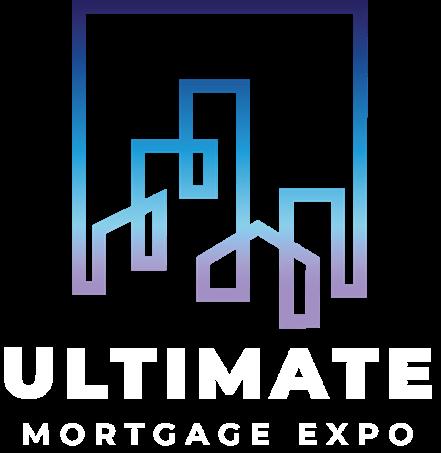



Complimentary registration available to NMLS-licensed active LOs and their support staff. Show producers reserve the right to determine final eligibility. The Gulf Coast’s ultimate gathering for mortgage pros. JULY 11 NEW ORLEANS, LA Hotel Monteleone Scan here to register for FREE (promo code N NMPFREE) or go to WWW.ULTIMATEMORTGAGEEXPO.COM




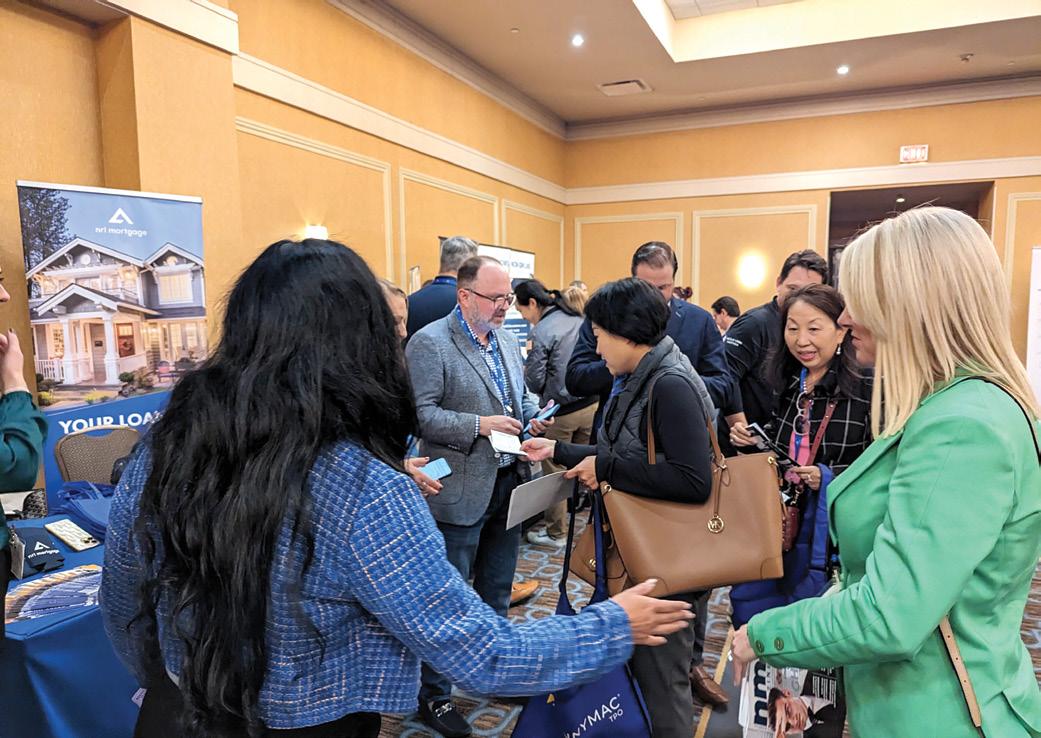
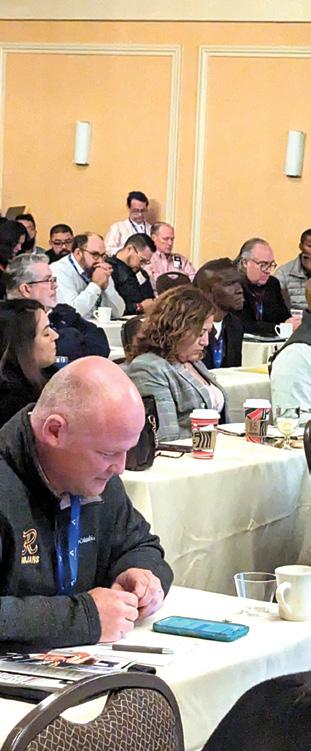

PASADENA | NOV. 7, 2023 TEXAS MORTGAGE ROUNDUP HOUSTON | NOV. 14, 2023




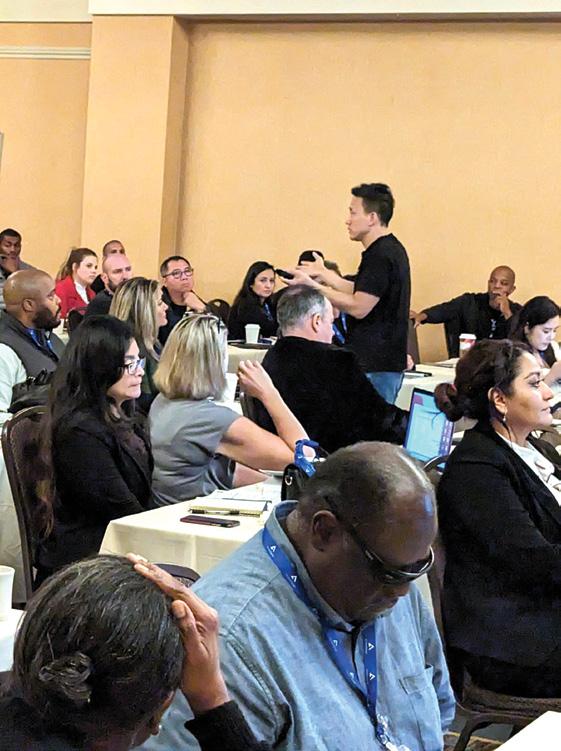
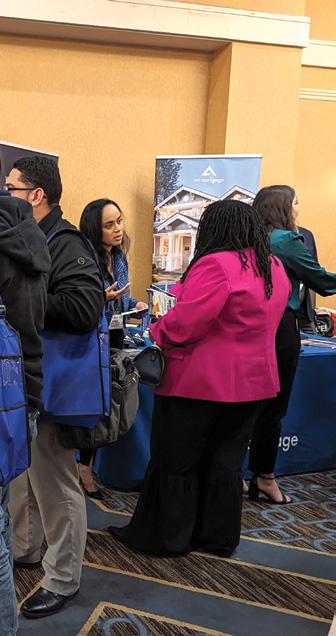
Events for mortgage brokers & originators
Don't miss out! These recent events were huge successes — providing great educational and networking opportunities. Make plans to attend the next one nearest you!
you to
story of your success.
Connecting
the
CT | JAN. 11, 2024 ORIGINATORCONNECTNETWORK.COM To find the next event nearest you, visit: ARIZONA CALIFORNIA COLORADO FLORIDA GEORGIA ILLINOIS LOUISIANA MICHIGAN NEVADA NEW ENGLAND NORTH CAROLINA OREGON TENNESSEE TEXAS UTAH WASHINGTON NEW ENGLAND THE MORTGAGE
We want every broker and originator to feel empowered, informed, and connected to the resources needed to develop your career. The Originator Connect Network, the nation's largest producer of mortgage events, is about fostering a community founded on professionalism, collaboration, and personal and professional growth. UNCASVILLE,
Clueless
Originators beg for training, few firms deliver

COVER
STORY
50 | NATIONAL MORTGAGE PROFESSIONAL MAGAZINE | MARCH 2024
 BY KATIE JENSEN, STAFF WRITER, NATIONAL MORTGAGE PROFESSIONAL MAGAZINE
BY KATIE JENSEN, STAFF WRITER, NATIONAL MORTGAGE PROFESSIONAL MAGAZINE
It’s clear that many loan originators haven’t got a clue what they’re doing.
By scrolling through the various Facebook groups for mortgage professionals, anyone can see that originators are clamoring for more training programs. Whether they are newly licensed or have experience in the industry, they’re begging for courses on the basics, such as lead generation and how to structure a loan. Their lack of knowledge is so appalling that it turned a former account executive, Michael Schlotthauer, into a fulltime training instructor for Pro Mortgage Training.
“As a top producing account executive, I spoke to 30 or 50 loan officers every day for three years and couldn’t understand how they were surviving in the business with the questions that they had for me,” Schlotthauer said.
Yet, only a handful of companies are willing to supply that demand. Equity Smart Home Loans CEO Pablo Martinez has made the onboarding and training experience the main differentiator for his company. He’s bringing in an assembly line of recruits — 10 to 15 per month — with the ultimate goal of beefing up the sales staff to 600 originators in 2024, which would double the size of their company.
Even better, a fair percentage of those newer recruits are churning out one to three loans per month, Martinez said. But, he’s expecting a more substantial return on his investment once rates ease up later this year, and a higher percentage of them will be able to produce a handful of loans per month. Right now, the main focus is about preparing for that opportunity.
“Every Tuesday, we’ll get maybe 10 or 15 people to attend these presentations [that] I personally do myself,” Martinez said. “Steve, my partner, started doing them as well because it just started becoming too much for me. We started getting too many people interested.”
But Martinez can’t train every originator across the country. What he can do is explain how he got his training program to become successful, or in other words, provide a return on his investment.
ALWAYS IN DEMAND
Just because someone has a license to originate mortgages doesn’t mean he or she knows the first thing about originating mortgages. Tony Zerwas, an originator for Edge Home Finance, didn’t know anything when he first received his license. But he was lucky enough to have a personal mentor to help him and a company-wide forum for answering questions.
“You can read a guideline and interpret it one way,” Zerwas said, referring to the Fannie Mae Selling Guide handbook often thrown at new originators. “That doesn’t mean that’s how the underwriter’s gonna interpret it. So, we have a private forum of Edge employees who are available to help answer those questions.”
NATIONAL MORTGAGE PROFESSIONAL MAGAZINE | MARCH 2024 | 51

Lucky is the key word, considering how few companies offer or, at least, advertise loan officer training in their job postings.
When Schlotthauer began forming his “Complete Loan Officer Training” series, he didn’t think beating his competitors would be this easy.
“Not a lot of companies out there that do what I’m doing. I counted about five or six,” Schlotthauer said. “Every single one of them is way more expensive than me.”
One of the most widely used and toprecommended training programs for originators is Core Training, in which members must make a 12-month commitment and pay $750 per month — $9,000 a year – just to try out level one of their program. On the other hand, some of Schlotthauer’s courses are priced at $30 per month.
“What these companies are doing is offering higher commissions,” Schlotthauer said. “And I was thinking about that. If I’m a new loan officer, or if I’m coming off this 3% rate environment, making a higher commission split on no loans doesn’t work for me.”
That puts new originators in a tough spot since it can sometimes take months to close their first loan, and many are paid commission-only. Newly licensed originators have little choice but to fork over the money for training. Otherwise, their introduction to the industry is more like baptism by fire. The reason is they haven’t received any training on how to do their actual job. As for the SAFE courses and exam, Schlotthauer said, “That allows you to maintain a license and keep you compliant, but it doesn’t teach you how to sell.”
Brady Sweet, Florida-based sales manager for First Class Mortgage, said during the refinance boom from 2020 to mid-2022, new originators
didn’t need to know much about loan structure or lead generation. They came in, closed a ton of refis, and left when rates went up.
Plus, more originators are switching channels, going from retail to broker, for example, or reentering the industry, as experts predict interest rates will drop in 2024 or 2025. That’s why originator training may be in higher demand now than it was two years ago, Sweet said.
“It’s all purchases now, and that will primarily come from Realtors,” Sweet said. “But if you fumble or seem like you don’t have a grasp on the process, or the product, or the programs, you’re dead in the water.”
TRAINING IS A DIFFERENTIATOR
However, there may be a right time and wrong time to start investing in a training program, which could have a significant impact on its success. Martinez planned ahead for this investment because he wanted his onboarding and training program to be the main differentiator between his company and others.
“Our distinguisher was gonna be the experience we provide to the LO,” Martinez said. “So loan officers can feel respected, feel wanted, feel like they’re being attended to, you know, like you’re walking into a fivestar hotel [and] getting that personalized service.”
Martinez achieved this because he avoided a frequent mistake he said other companies make, which is not investing money back into their infrastructure. Towards the end of the major outbreak of COVID-19, Martinez and his team were confident enough in their infrastructure to start recruiting heavily. At first, they didn’t have the bandwidth to train brand-new originators, so they
52 | NATIONAL MORTGAGE PROFESSIONAL MAGAZINE | MARCH 2024
> CEO Pablo Martinez pictured with his corporate office team, including leaders in operations, sales, marketing, IT, processing, and more.
started with more experienced ones.
“With the LOs we had, we were originating enough loans to really stand out,” Martinez said, also noting how Equity Smart Home Loans had become one of UWM’s top 10 brokers in California and were ranked 20th among the nation’s top 100 mortgage brokers in Scotsman Guide for 2022.
But once the refinance market began to dwindle, Martinez knew that his company would lose volume. That eventually became evident when he looked at the number of credit pulls each originator was doing. However, he went against conventional wisdom and began hiring more staff instead of conducting layoffs.
“I thought rather than shed anybody or do anything like that, let’s start heavily recruiting because we can make up for the loss of volume through having more loan officers,” Martinez said. “I’m glad that we did that because that actually was our saving grace.”
Martinez hired a talented marketing professional and paid him a high salary, which he said most would think is a bad idea during a market downturn. But his new hire, along with the professional videos they made to recruit new talent on Instagram and Facebook, helped Equity Smart gain up to 15 recruits per month.
“These videos showcase what our culture and what our people look like, and we get a lot of people interested,’ Martinez said.
The Equity Smart Home Loans Instagram page features motivational videos of Martinez talking about his company, how to reach goals, and recent changes in the market. There are also a fair amount of funny and relatable videos that attract originators to the page and convey an easy-going company culture.
“I believe we’re doing it in an ethical, responsible way,” Martinez said. “They decide whether they want to give their information to us [while] other companies are trying to poach and purposely go after your loan officers, which I think is wrong.”
CUSTOMIZED TRAINING
As mentioned, not every originator that needs training is brand new to the industry, so the program needs to have courses that accommodate varying levels of experience. Then, when evaluating each new recruit’s performance, expectations are adjusted to skill level.
“Julian Yuen is the latest review. He’s only been in the business [for] three months (as of December). He already closed his first loan, and he got his first five-star review with us,” Martinez said.
Martinez’s company creates a profile for each originator that specifies knowledge levels and areas for growth and improvement.
“Do they know how to run [a loan prospector]? Do they know how to structure loans? Then we have someone following up with them to make sure that they’re working on those areas,” Martinez said.
There are also training videos within Equity Smart’s proprietary portal and a training calendar where
“I don’t need a diva. They’re gonna come in and think they own the business and abuse your processors and all those things that I’ve heard about top producers.”
> Matthew Schlotthauer, Pro Mortgage Training

NATIONAL MORTGAGE PROFESSIONAL MAGAZINE | MARCH 2024 | 53
"You go fishing, and the majority of the time, you’re gonna catch small fish. But as long as you’re fishing, once in a while, you’re gonna catch that big kahuna.”
> Pablo Martinez, CEO, Equity Smart Home Loans
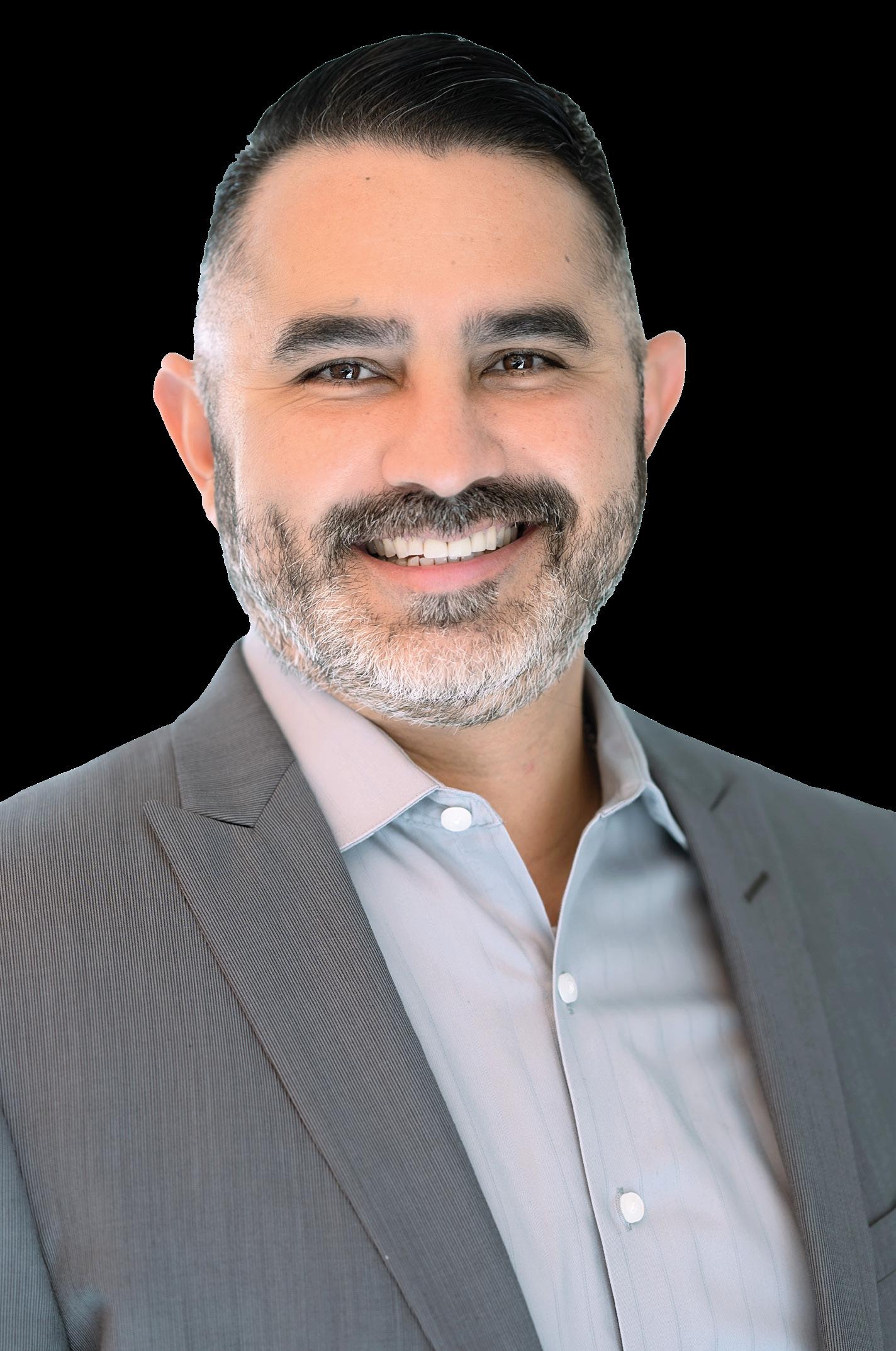
different training topics are scheduled, covering everything originators need to know, such as analyzing income, reviewing appraisals, and understanding how the loan originator software system works. On top of all that, Martinez also makes time every Monday to do a six week cycle where he covers the entire loan process from beginning to end. On Wednesdays, the help desk is open so that originators can ask questions regarding any loan scenario.
But having those resources doesn’t mean anything unless originators actually use them. Even though Martinez said a vast majority of his sales team does use them, there are always a few that fall through the cracks. As a remote company, Martinez can’t monitor and ensure every single originator takes advantage of their available resources.
“So you get a mixture of different types of mentality,” Martinez said. “You have the LOs that are gung-ho, but they don’t participate in anything. They’re busy doing who knows what. And then you get the LOs that have one foot in and have one foot out. So they’re kind of mildly participating, but they want results, and they’re complaining. But they’re not doing the work that’s necessary.”
But he reiterated that most originators seem like Julien Yuen, taking advantage of the training that’s provided and excelling quickly.
POACHING VS. TRAINING
When trying to increase loan production among a sales team, company leaders may opt to persuade a top-producing loan originator to work for them rather than make their own top-producing originators from recruits.
“Going after the top producer, it’s a lot easier because if you’re able to convince them to join your firm, then you have someone that hits the ground running,” Martinez said. “Whereas if you hire someone that’s brand new, you don’t know what the outcome is gonna be.”
In terms of cost, it’s hard to say which strategy is cheaper. Spending money to create a great training program or to woo a top originator is a gamble. To persuade top-producing originators, Martinez said he has taken them out golfing and out to dinner, which costs money, of course.
It’s also not uncommon for them to request a fat signing bonus to seal the deal.
But company leaders should not underestimate the cost of those bonuses since the Wall Street Journal reported in October 2023 how a few lenders are now clawing them back, including Guaranteed Rate, which fired top producer David Siegal and demanded he return his $100,000 bonus, as they reportedly did to hundreds of other former employees.
According to Schlotthauer, it’s also not uncommon for top producers to expect special treatment from their employers and overstep their bounds.
54 | NATIONAL MORTGAGE PROFESSIONAL MAGAZINE | MARCH 2024
“I don’t need a diva,” Schlotthauer said. “You know, they’re gonna come in and think they own the business and abuse your processors and all those things that I’ve heard about top producers.”
However, that wasn’t the case with Martinez’s recent recruitment. He caught the attention of a top-producing loan originator through the videos his team posts on social media. On the phone, she expressed her unhappiness with her current employer and told Martinez that the company owners had been rude to her in the past.
“They didn’t do any orientation like we do every month,” Martinez said. “We do an orientation for our LOs to get them acclimated, introduce them to everyone, and show them all the tools and resources. She even said, ‘I’ve never seen one like yours before. And the whole culture thing really got to me.’”
After that, Martinez only needed to get on the phone with her once to get this top producer with 20 years of experience to join his company, along with her entire branch.
Apparently, even the most experienced and exceptional originators like a personalized training and onboarding process.
loan. However, NEXA Academy Director Kristine Wake said there is some leeway for originators who are working hard but struggling to close on loans due to poor market conditions.
“Each trainee is assigned an instructor to evaluate their performance. If we see they are generating lots of business activities, such as going to open houses, calling Realtors, going to home buying seminars, and being active on social media, then the instructor will work with them on switching up strategies,” Wake said.
They also offer an accelerated program for originators returning to the industry or switching into the broker channel from retail. After completing six loans, those originators graduate from the program. The extended program is mainly for new LOs and includes a wide assortment of training content and team meetings with an instructor for personalized advice. After completing 12 loans, which Wake said takes six months, on average, those originators graduate.
Still, some originators on Facebook have expressed their dislike for giant Zoom calls with 40 or more people in them, but that’s a matter of
“[If] you fumble or seem like you don’t have a grasp on the process, or the product, or the programs, you’re dead in the water.”
> Brady Sweet, sales manager for First Class Mortgage
‘You go fishing, and the majority of the time you’re gonna catch small fish. But as long as you’re fishing, once in a while, you’re gonna catch that big kahuna,” Martinez said.
MEASURING ROI
Other than catching the attention of top producers in the industry or looking at performance levels for originators, there are other factors that can signify whether a training program is providing a sufficient return.
Turnover and retention are also important to consider since it’d be a shame to invest so much in training originators only to have them leave for another company. However, some training programs are built in a way that encourages turnover, so nonperforming originators are filtered out like the NEXA Training Academy. On Facebook, tons of people include NEXA’s academy in their recommendations for new or experienced originators.
It may scare some new originators that NEXA Academy has a quota to fund one or two loans per month, or they’ll be let go. Especially since it usually takes months before originators can close their first
preference. Anyone who thinks having to meet a quota is too much pressure as a new or returning originator would likely opt for Equity Smart’s approach, which aims to retain new recruits.
How does Martinez do that without losing money? He gets some help from his wholesale lender, United Wholesale Mortgage (UWM).
“If they haven’t closed a loan in a quarter, we let them know on the contract, we’re gonna remove you and put you on more free stuff,” Martinez said. “For example, we may remove them from Lending Pad and put them in Blink+, UWM’s [loan origination software] system, which doesn’t cost us anything.”
Overall, there’s no one-size-fits-all for training programs. Company leaders can follow the example set by Equity Smart Home Loans, NEXA, or even Schlotthauer’s newly developed training course called “The Complete Loan Officer” and use it as inspiration to build something new.
“We have enough to provide any loan officer a path or a blueprint to success if they want it. It’s up to them,” Martinez said. “We have actual loan officers that can attest to this and say, ‘Hey, I joined Equity Smart, and now I’m closing two, three, four loans a month.’ ” n
NATIONAL MORTGAGE PROFESSIONAL MAGAZINE | MARCH 2024 | 55


Saluting The 2024 Mortgage Lending Women Of Inspiration
Step into the world of National Mortgage Professional Magazine’s 2024 Mortgage Lending Women of Inspiration, where the words “Leaders, Champions, and Mentors” capture the resounding spirit of these remarkable individuals.
In a landscape dominated by men, they emerge not just as practitioners but as fervent advocates, propelling women forward in mortgage lending. Their unwavering commitment dismantles barriers, fosters equality, and amplifies women's voices in an industry where they've historically been underrepresented.
This edition introduces 22 inspirational women, distinguished by their groundbreaking achievements and their roles as catalysts for innovation and instilling passion in those they touch. Within these pages, we proudly salute these trailblazing women, acknowledging their personal triumphs, tireless advocacy, and influential contributions.
56 | NATIONAL MORTGAGE PROFESSIONAL MAGAZINE | MARCH 2024
Patty Arvielo
CEO & Co-Founder

What advice would you give to women aspiring to leadership roles in mortgage lending?
For women aiming for leadership, here’s my advice:
• Own your strength: confidence is everything. Trust your skills and know your worth. You bring something unique to the table.
• Mentors matter: find mentors who align with your goals and can light the way. Their experience is invaluable.
• Networking is key: dive into the industry. Forge connections, join groups, and be present at events. These contacts are crucial.
• Never stop learning: the industry is always evolving. Keep up with trends and enhance your skills through continuous education.
• Challenges are opportunities: face obstacles head-on. They’re chances to grow and learn. Don’t be afraid to step out of your comfort zone.
• Speak up for yourself: be vocal about your ideas and successes — visibility matters. Actively seek out growth opportunities.
• Support others: help lift other women up. Share your knowledge, offer mentorship, and celebrate their achievements. We grow stronger together.
What do you see as the biggest challenges facing the industry today, especially for women professionals?
In the mortgage lending world, we’re up against a housing shortage, a real game-changer for the industry. Women in this field are facing an even tougher challenge: there’s a serious lack of us leading and owning Independent Mortgage Banks (IMBs). We’re missing out on diverse voices and perspectives in these key roles.
To fix the housing issue, we need more than new homes; we need smart, sustainable solutions tailored for various communities. For women, it’s about breaking barriers and creating opportunities in leadership and ownership within IMBs.
We must work together to make our industry more inclusive and equitable, focusing on empowering women. By nurturing female talent and ensuring equal opportunities, we can make sure women’s voices are part of the big decisions.
“We must work together to make our industry more inclusive and equitable, focusing on empowering women.”


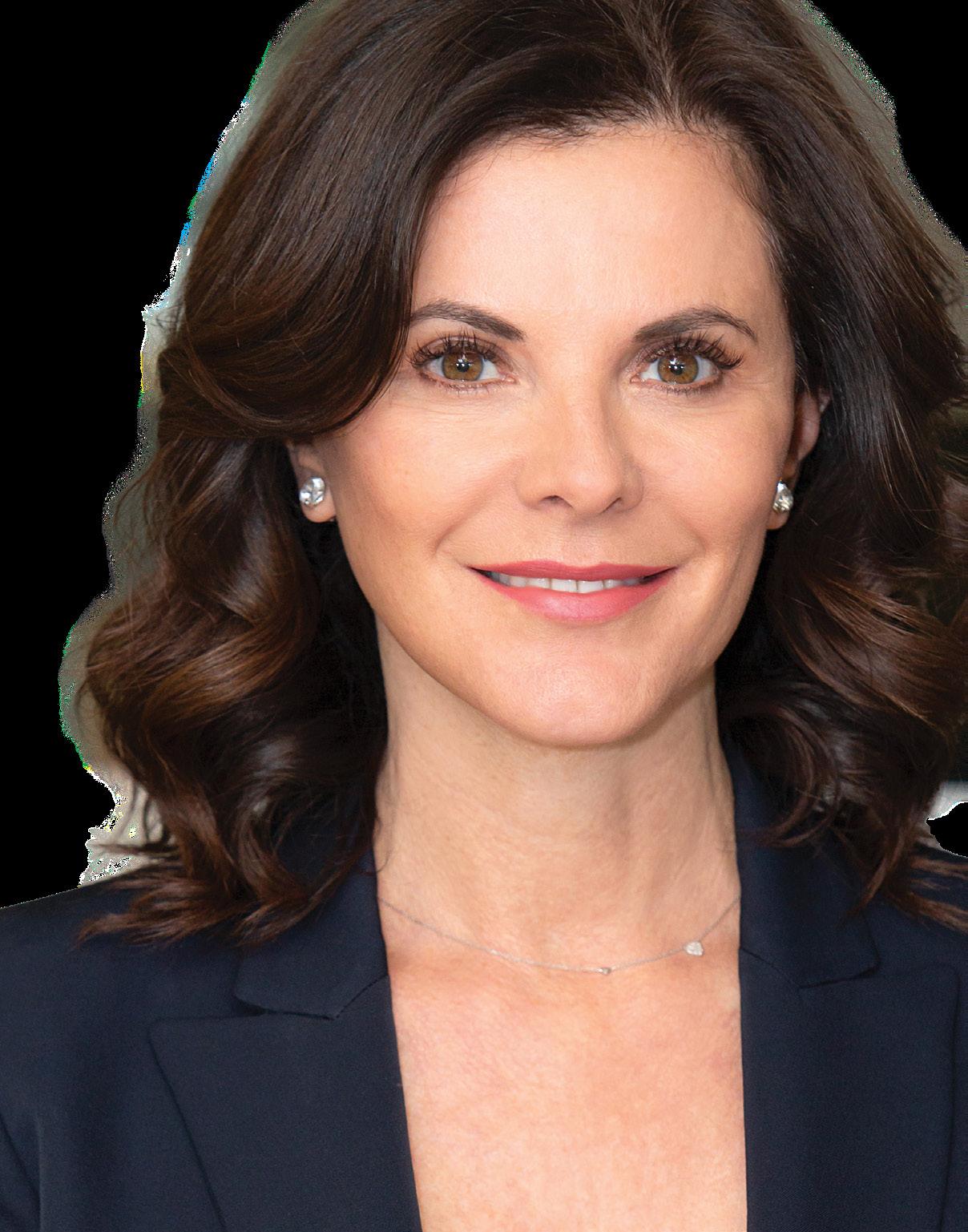
NEW AMERICAN FUNDING
NATIONAL MORTGAGE PROFESSIONAL MAGAZINE | MARCH 2024 | 57

Michele Bodda
President, Housing, Verification Solutions, and Employer Services
What advice would you give to women aspiring to leadership roles in mortgage lending?
Working in the mortgage industry is incredibly fulfilling. We have the opportunity to empower consumers and help them attain the quintessential American dream — homeownership. It’s a defining moment in a person’s life journey. Optimism should be our guiding light. You have the power to touch lives, contribute to your organization’s success, and ignite systemic transformation.

As such, my advice to women aspiring to leadership roles in this sector is four-fold: Embrace the opportunity: recognize the potential impact of your role. Each decision you make can create ripple effects that extend beyond your immediate environment, fostering positive change in people’s lives. Take risks: don’t be afraid to step out of your comfort zone. The path to leadership is often paved with challenges, but these obstacles are opportunities for growth.

Be a conduit for change: as a leader, you have the capacity to influence policies and processes. Use this power to drive changes that foster inclusivity and equal opportunities for all.
Never give up: persistence is key. Stay resilient, stay focused, and keep moving forward. And celebrate wins!
Do you have a personal philosophy or mantra that has guided you throughout your career in mortgage lending?
I have a philosophy that not only guides my career but also shapes my personal journey. It is encapsulated in the words of my father, “Anything worth doing is worth doing your best.” This mantra has been my beacon during challenging times and has instilled in me a relentless spirit of tenacity.
It’s easy to feel overwhelmed by obstacles or deterred by the time and effort required. However, embracing my father’s advice, I’ve learned to view these challenges not as setbacks but as opportunities for growth and learning.
“Never give up: persistence is key. Stay resilient, stay focused, and keep moving forward. And celebrate wins!”
EXPERIAN
58 | NATIONAL MORTGAGE PROFESSIONAL MAGAZINE | MARCH 2024
Bertha Carmona
Branch Manager/Senior Loan Officer
Were there specific challenges you faced early in your career, and how did you overcome them?
One of the most formidable challenges I encountered was overcoming language barriers when I arrived in the U.S. English, a language I wasn’t fluent in initially, could have impeded my progress. I immersed myself in language programs, sought practice opportunities, and relentlessly honed my English skills. Over time, I gained fluency and confidence.
Transitioning into the sales world through network marketing posed another hurdle. I grappled with doubts and limitations, but with the guidance of supportive mentors, I learned to navigate these challenges. Their encouragement led me to attend seminars and delve into personal development, helping me surmount self-doubt and overcome obstacles.
My key to conquering these challenges was unwavering determination. I saw each obstacle as a chance to learn and evolve. Through dedication and a commitment to self-improvement, I established a successful path in real estate and lending.
What do you see as the biggest challenges facing the industry today, especially for women professionals?
In the mortgage lending industry, several challenges impact professionals, irrespective of gender. Career progression and attaining leadership positions pose hurdles for many. Striving for equality in opportunities and fair compensation remains an ongoing objective. Balancing work commitments with personal life is a shared challenge, where pursuing career aspirations often intersects with family responsibilities. Access to mentorship and robust support networks is invaluable for career growth, benefiting professionals across the board. Cultivating an inclusive workplace free from biases and stereotypes benefits all, fostering an environment that values diverse perspectives. Moreover, facilitating access to networking opportunities and avenues for professional development proves pivotal for growth and advancement. Striving for an environment that supports work-life balance and offers growth opportunities benefits professionals from all backgrounds within the mortgage lending industry.
“Striving for equality in opportunities and fair compensation remains an ongoing objective.”


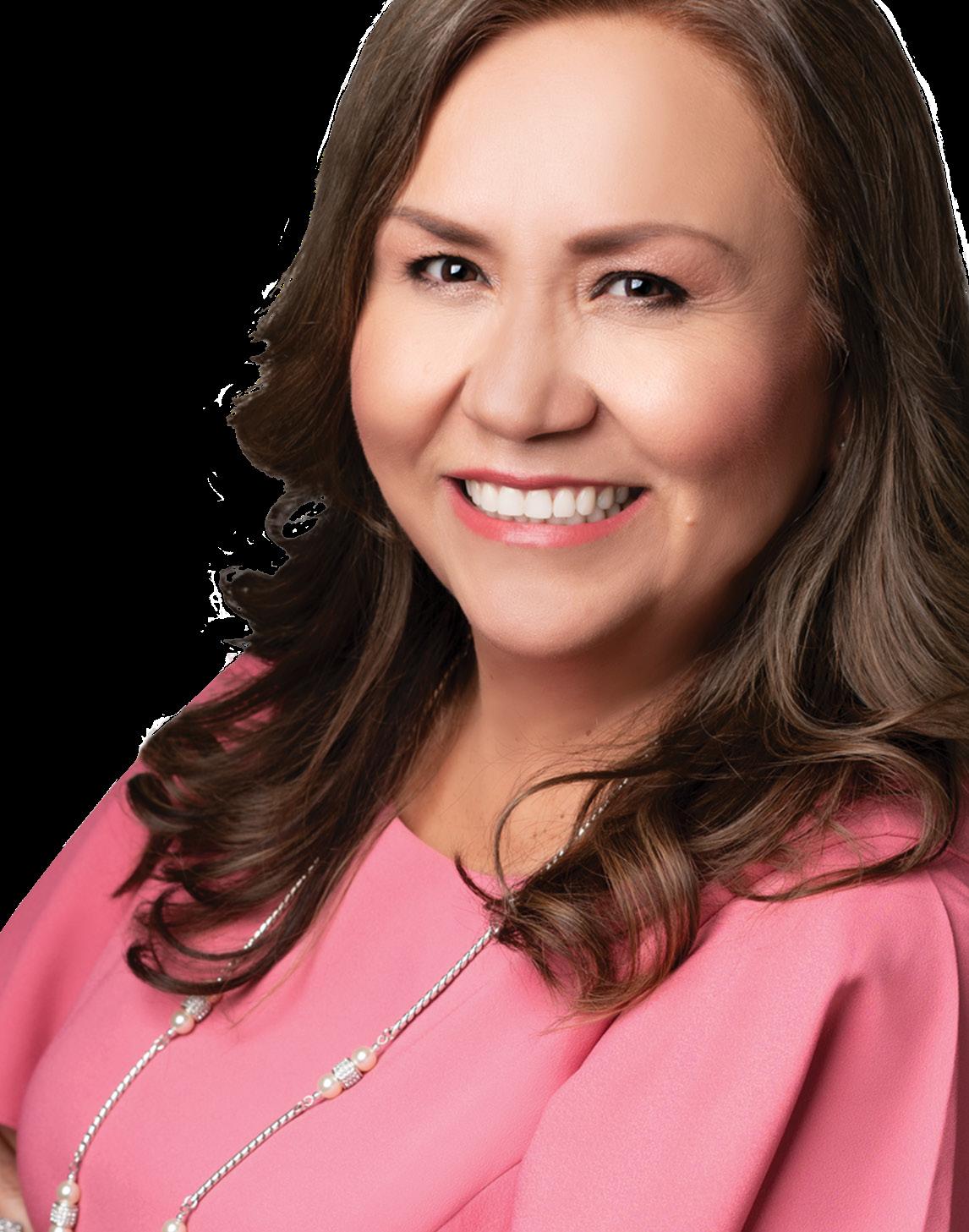
PACIFIC LENDING
NATIONAL MORTGAGE PROFESSIONAL MAGAZINE | MARCH 2024 | 59

 Corrina Carter
CEO and President CMS MORTGAGE SOLUTIONS INC.
Corrina Carter
CEO and President CMS MORTGAGE SOLUTIONS INC.
The following is from the nomination for Corrina Carter.
Why does this woman stand out as a significant contributor to the Mortgage industry? What differentiates her?
Corrina Carter significantly impacts the mortgage industry with her multifaceted influence. She excels in transforming industry challenges into opportunities, setting a standard for resilience and innovation. Her forwardthinking mindset fosters a dynamic, proactive industry culture. Corrina’s commitment to inclusivity and mentorship is profound, actively guiding new professionals and advocating for a diverse, collaborative field. Corrina’s journey from a mortgage loan originator to an industry leader is inspirational, motivating others with her tenacity and hard work. Her philosophy, “It really changes when you change,” emphasizes personal growth and adaptability. Corrina’s leadership not only advances her companies but also inspires and shapes the broader
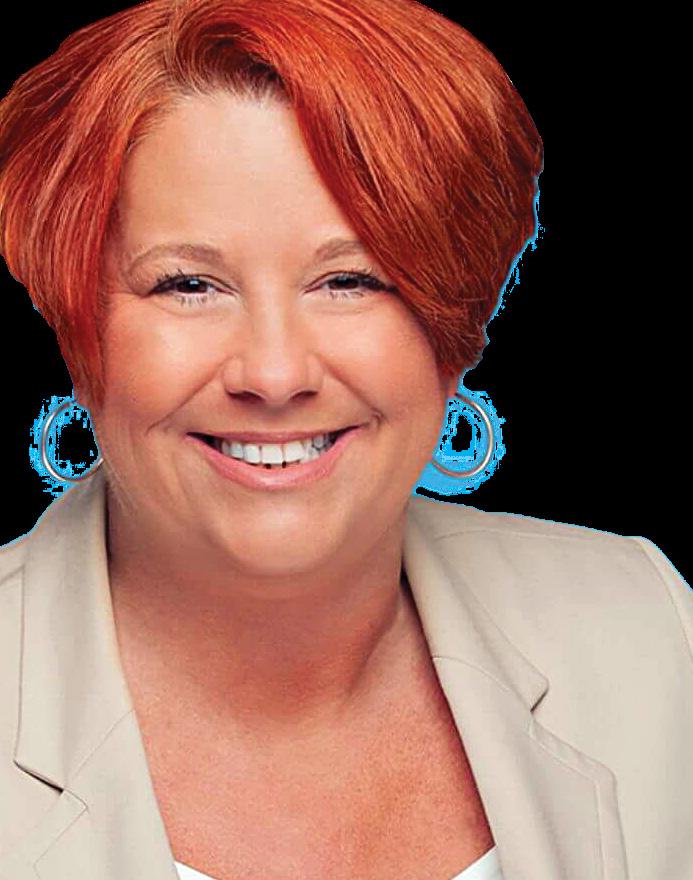
How is this nominee impacting the industry or the people around her?
What about this woman makes her influential?
Corrina Carter’s impact on the mortgage industry is profound and multifaceted. As CEO of CMS Consultants Inc. and CMS Mortgage Solutions Inc., she transforms industry challenges into growth opportunities, setting a benchmark for resilience and innovation. Her commitment to inclusivity and mentorship is pivotal in fostering a diverse and collaborative professional community. Corrina’s influence extends beyond corporate success; she’s a role model for perseverance and hard work. Her journey from a mortgage loan originator to an industry leader inspires others to strive for excellence. Her belief in communal growth highlights her role in shaping a more collaborative and adaptive industry. Corrina’s philosophy resonates deeply, advocating for personal growth and adaptability. Her leadership not only drives her company’s success but also inspires and shapes the broader industry landscape.
Corrina’s leadership not only advances her companies but also inspires and shapes the broader industry.
60 | NATIONAL MORTGAGE PROFESSIONAL MAGAZINE | MARCH 2024
Lisa Gao
CEO RATEDNA
Were there specific challenges you faced early in your career, and how did you overcome them?
Early in my career, I encountered challenges familiar to many entering the industry. As a woman in a field traditionally dominated by men, gaining recognition and establishing credibility presented hurdles. To overcome them, I focused on continuous learning, honing my skills, and building a strong network. Persistence and resilience were key; I embraced challenges as opportunities for growth, allowing me to carve my path in the industry.
What advice would you give to women aspiring to leadership roles in mortgage lending?
Trust your instincts and knowledge while being open to learning. Embrace challenges as stepping stones and seek mentorship. Network extensively and build relationships based on authenticity and mutual respect. Cultivate confidence in your skills and ideas, and never shy away from expressing them. Remember, diversity in leadership enriches perspectives and drives innovation.
Given the evolving nature of the mortgage lending industry, how do you stay adaptable and resilient in the face of change? Can you share an experience where you had to navigate a significant change or challenge in your career?
In the dynamic mortgage lending industry, staying adaptable and resilient means embracing change as an opportunity for growth. One significant change I navigated was the industry’s shift toward digitalization. Adopting AI technology meant revamping our processes, training the team, and overcoming initial hurdles. However, this shift improved our efficiency, reducing turnaround times and enhancing customer experience. Embracing change, despite challenges, underscored the importance of adaptability and innovation for long-term success.
Do you have a personal philosophy or mantra that has guided you throughout your career in mortgage lending?
‘Embrace change, innovate, and persist’ encapsulates my approach. I believe in constantly evolving, embracing challenges as opportunities, and leading by example, fostering growth and inclusivity.
“I embraced challenges as opportunities for growth, allowing me to carve my path in the industry.”



NATIONAL MORTGAGE PROFESSIONAL MAGAZINE | MARCH 2024 | 61

Bertha Garcia
Executive Director
VENTURA COUNTY COMMUNITY DEVELOPMENT CORP.
The following is from the nomination for Bertha Garcia.
How does this woman stands out as a significant contributor to the mortgage industry. What differentiates her?
Bertha Garcia co-founded Ventura County Community Development Corporation in 2001 with a mission to strengthen and sustain vibrant communities by empowering individuals and families to build wealth through education and homeownership, with an emphasis on serving low-to-moderate income individuals. By leveraging down payment assistance and other grant opportunities, Bertha has made a mark with forgivable and deferred mortgages, providing thousands of qualified new homebuyers an affordable mortgage and enabling women to purchase their first homes. Her expertise and transformational leadership allow VCCDC to co-create housing solutions with funding partners in one of the most expensive housing markets in the U.S. and help bridge the racial and gender wealth divide through homeownership.

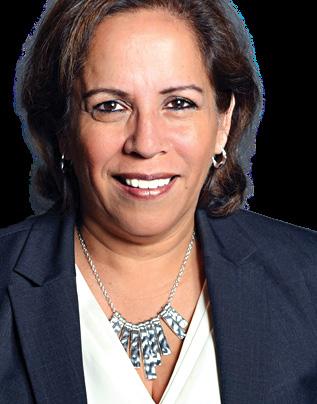
How is this nominee impacting the industry or the people around her? What about this woman makes her influential?
Bertha’s impact in mortgage lending has led to more than 20,000 individuals and families becoming better equipped for selfsufficiency. Since 2001, over 3,000 individuals and families have become homeowners, preserved their homes, or have achieved mortgage-ready status. During the recent pandemic, VCCDC saw its biggest year with $26.8M in direct mortgage lending and influence of over $75M in direct and indirect mortgages, many of which were to women buyers. As the chief architect of its mortgage lending operation, VCCDC achieved $201M in first and second mortgages, and provided $11.9M in down payment assistance to low- to moderate-income families. Bertha’s passion is to empower working-class families to better themselves economically while dreaming of homeownership; her leadership helps make homeownership their reality through perseverance and affordable financial options.
Bertha’s impact in mortgage lending has led to more than 20,000 individuals and families becoming better equipped for self-sufficiency.
62 | NATIONAL MORTGAGE PROFESSIONAL MAGAZINE | MARCH 2024
Carrie Guarrero
EVP Communications Advisor & Mentor Coach
What do you see as the biggest challenges facing the industry today, especially for women professionals?
One significant hurdle lies in our own willingness to assert ourselves, vocalize our needs, and navigate the leadership landscape effectively. Despite advancements, women often face gender stereotypes that can lead to underestimation, even when armed with extensive experience, industry knowledge, and education. Breaking through to the C-suite can still be an uphill battle.
Notably, at Fairway, we’ve witnessed a positive shift where the number of female executives now exceeds their male counterparts, showcasing a commendable commitment to diversity. Recent industry data also highlights a substantial increase in the number of women in the mortgage space. This shift is cause for celebration as it brings a welcome infusion of change and diversity to the industry. As women in the industry, we have made significant strides, and our continued commitment to leadership will contribute to the ongoing positive transformation of the mortgage industry.
Do you have a personal philosophy or mantra that has guided you throughout your career in mortgage lending?
My personal philosophy in mortgage lending centers on giving wholeheartedly, approaching each day with gratitude, taking calculated risks, and working diligently even when faced with challenges. I firmly believe in investing in both others and myself, recognizing the profound impact we can have on those around us. I find fulfillment in witnessing others succeed on their terms, and this belief shapes my commitment to coaching leadership. Learning from remarkable coaches and leaders, I’ve discovered the power of humility, kindness, and prioritizing others. The invaluable lessons from those ahead of me emphasize the importance of consistently bringing others along on the journey. Each day in this dynamic industry offers me the privilege to contribute positively in various ways, and I am profoundly grateful for the opportunity.
“Despite advancements, women often face gender stereotypes that can lead to underestimation, even when armed with extensive experience, industry knowledge, and education.”


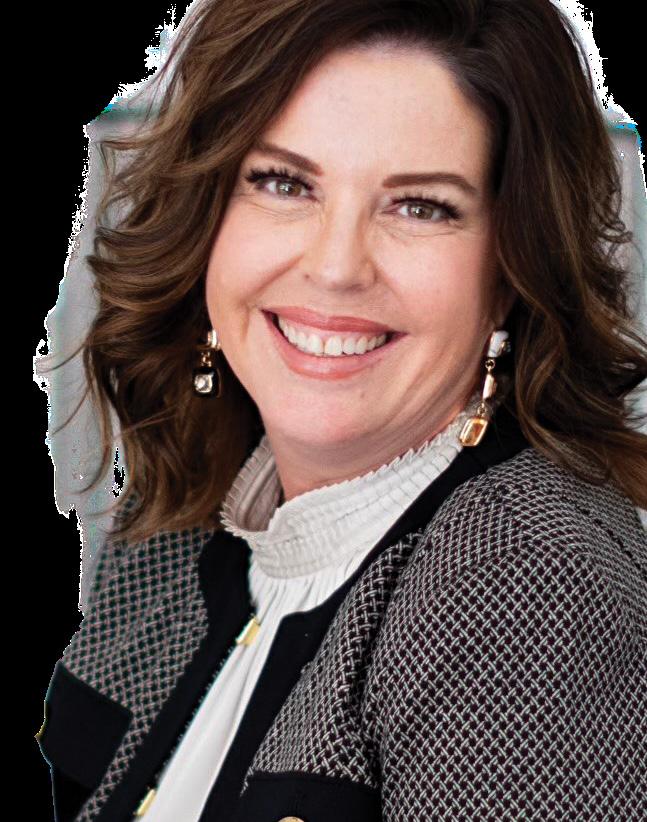
FAIRWAY INDEPENDENT MORTGAGE CORPORATION
NATIONAL MORTGAGE PROFESSIONAL MAGAZINE | MARCH 2024 | 63

Trudi Hatch
Branch Manager ACADEMY MORTGAGE
The following is from the nomination for Trudi Hatch.
How does this woman stands out as a significant contributor to the mortgage industry. What differentiates her?
Academy Mortgage Branch Manager Trudi Hatch is a tried-and-true mortgage professional who holds a deep passion for serving her customers and team members. ‘People are more valuable than money’ is what guides Trudi and her work. She loves meeting with customers to discover how she can help them achieve their goals, whether it’s first-time homeownership, improving their credit, or purchasing their dream home.


Leading with a true abundance mindset has helped Trudi throughout her career, especially in today’s market. Trudi is a differentiator and fierce student who seizes every opportunity to learn and teach others. Coupled with over 20 years of experience, Trudi spends extra time ensuring that those she works with walk away more educated and knowledgeable about the home-buying process — whether it’s her customers or team of 15 loan officers.
How is this nominee impacting the industry or the people around her? What about this woman makes her influential?
Those fortunate to work alongside Trudi have learned to live with purpose and be intentional — thanks to her unwavering support, patience, and nurturing demeanor. She pours herself into mentoring, and the results speak for themselves. Not only does Trudi’s selfless nature motivate her to pour herself into her people, but also her community.
After achieving success in her career, Trudi looked around and thought, ‘I’ve received enough. It’s time to start giving back.’ To say that Trudi’s community also relies on her efforts would be putting it lightly. Through her widespread involvement, she has laid a foundation that has made her community stronger and more resilient.
Whenever there is an opportunity to serve her team, customers, or community, Trudi will be there.
Whenever there is an opportunity to serve her team, customers, or community, Trudi will be there.
64 | NATIONAL MORTGAGE PROFESSIONAL MAGAZINE | MARCH 2024
Lana Izgarsheva Chief Operating Officer
A&D MORTGAGE LLC
What advice would you give to women aspiring to leadership roles in mortgage lending?
My advice is threefold: first, cultivate a robust knowledge base. Understanding the nuances of the industry is imperative. Second, develop strong communication and interpersonal skills. Leadership is as much about inspiring and guiding teams as it is about making decisions. Third, embrace resilience. The path to leadership is often challenging, but resilience helps you navigate adversity and emerge stronger. Remember, leadership is not just a position but a mindset. Always aim to lead by example, foster inclusivity, and champion innovation.
Given the evolving nature of the mortgage lending industry, how do you stay adaptable and resilient in the face of change? Can you share an experience where you had to navigate a significant change or challenge in your career?
Adaptability and resilience are key in the fast-evolving mortgage industry. I stay adaptable by maintaining a learner’s mindset, being open to new ideas, and embracing innovation. Staying informed about industry trends and technological advancements is also crucial.
A significant experience that tested my adaptability was the transition to digital mortgage processes. This change required a complete overhaul of traditional methods. By embracing change, encouraging team collaboration, and focusing on customer-centric solutions, we successfully navigated this transition.
Do you have a personal philosophy or mantra that has guided you throughout your career in mortgage lending?
My guiding mantra throughout my career in mortgage lending has been: ‘empower through knowledge, lead with integrity, and innovate for impact.’ This philosophy underscores the importance of informed decision-making, ethical leadership, and innovative problem-solving. It has been my beacon in making strategic decisions, building effective teams, and driving customer satisfaction. Believing in these principles has not only shaped my career trajectory but has also allowed me to contribute positively to the industry’s evolution.
“Leadership is not just a position but a mindset. Always aim to lead by example, foster inclusivity, and champion innovation.”



NATIONAL MORTGAGE PROFESSIONAL MAGAZINE | MARCH 2024 | 65
 Marcia Kaufman CEO BAYPORT FUNDING
Marcia Kaufman CEO BAYPORT FUNDING
Were there specific challenges you faced early in your career, and how did you overcome them?
The most challenging time was navigating through the 2007/2008 financial crisis and mortgage meltdown. Banks and mortgage companies were shutting down, people were losing their jobs, and I needed to identify where opportunities lay and where lending would shake out during this very tentative time.
Given the evolving nature of the mortgage lending industry, how do you stay adaptable and resilient in the face of change? Can you share an experience where you had to navigate a significant change or challenge?


Following the 2007 financial crisis, I used my knowledge of real estate and finance to purchase approximately 50 one-to-four-family properties throughout the boroughs of New York for a fix-and-flip business — a practice that no women were pursuing at that time. Based on that experience, I now am an alternative lender to investors who buy properties for their fix and flip business, which is key to remaining adaptable and resilient in today’s landscape.
What advice would you give to women aspiring to leadership roles in mortgage lending?
The first advice would be to learn as much from a technical perspective, always conduct yourself in a business-like manner, always bring your A-game to every meeting, show initiative, and be confident without being arrogant about what you bring to the table.
Do you have a personal philosophy or mantra that has guided you throughout your career in mortgage lending?
My career mantra is to always keep perfecting your craft and learning. It’s crucial to be willing and able to grow and evolve with the business as it does the same. If you’re unwilling to change and adapt with the times, you risk being left behind. Also, you can’t be afraid to take calculated risks.
“Always bring your A-game to every meeting, show initiative, and be confident without being arrogant.”
66 | NATIONAL MORTGAGE PROFESSIONAL MAGAZINE | MARCH 2024
Kristin Keller
SVP Real Estate Lending AMPLIFY CREDIT UNION
Given the evolving nature of the mortgage lending industry, how do you stay adaptable and resilient in the face of change? Can you share an experience where you had to navigate a significant change or challenge in your career?
I heard a keynote at a conference seven years ago that changed my career. The speaker said the future was now. ‘You are either the visionary, the one developing the new technology, working with the new technology, or you’ll have to find something else to do.’ This has stuck with me since. I’ve now become someone who is looking for what is coming versus being the one who adapts to the changes. We’re aware of technological developments and what changes are being made. We evaluate how these changes can help us and our customers before moving forward. There will always be ‘nice to haves’, but they may not always be best for your company or your client base.
Do you have a personal philosophy or mantra that has guided you throughout your career in mortgage lending?
The first is the phrase, ‘Don’t make excuses, make improvements’. There is something great that happens when you look at situations from a different lens — one of trying to make improvements. Making improvements, no matter how small, will always move you forward.
The other is the concept of ‘The Five Whys.’ It’s the practice of repeatedly asking ‘why’ when encountering an issue to get to the root cause. By doing this, you can determine the best way to solve the problem. I’ve done it with my teams over the years and it’s a great exercise. Sometimes, it can open a can of worms; however, if we can get to the root cause of a problem, we can get on the path to correcting our challenge right away.
“If we can get to the root cause of a problem, we can get on the path to correcting our challenge right away.”


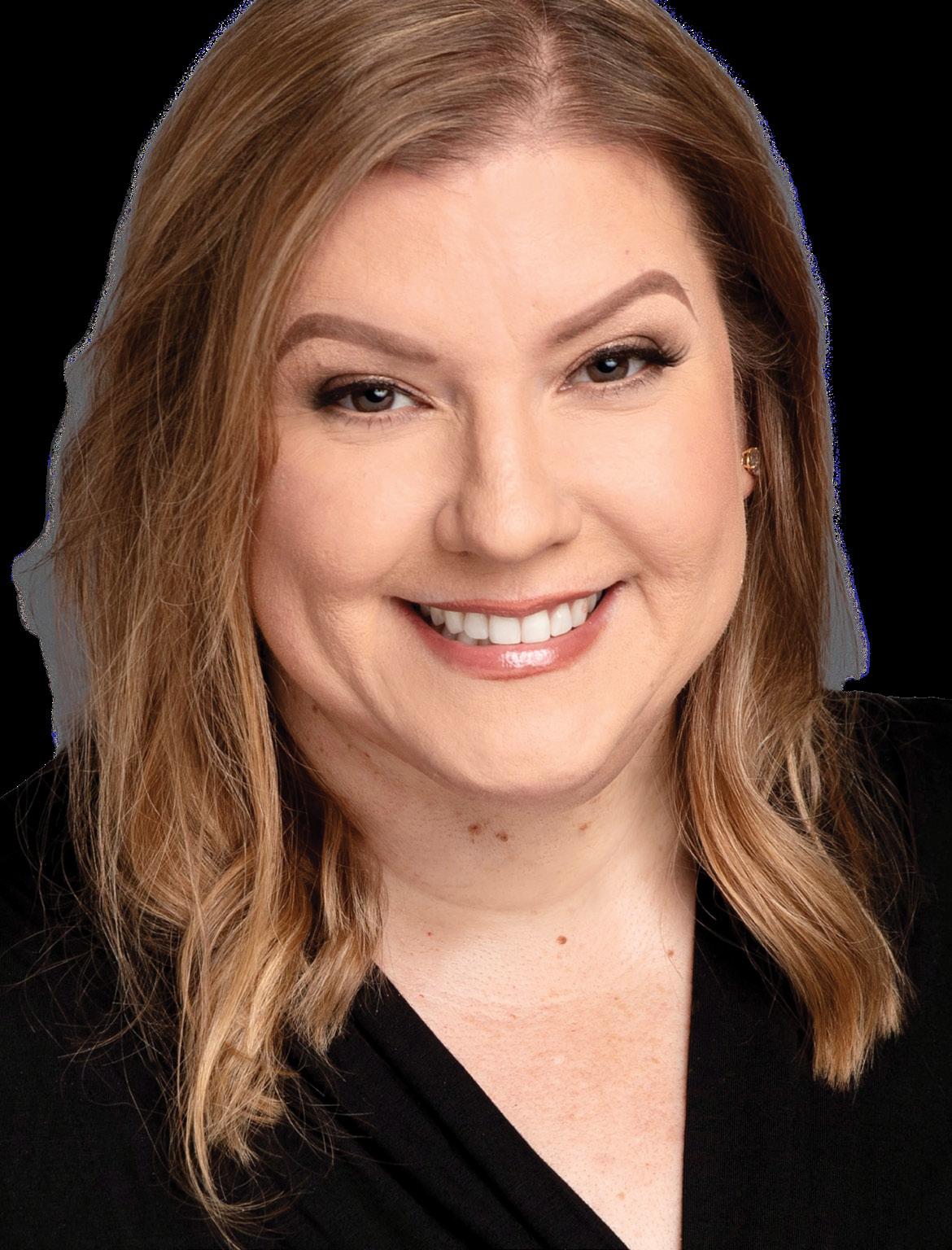
NATIONAL MORTGAGE PROFESSIONAL MAGAZINE | MARCH 2024 | 67
 Jennifer Kennelly
Senior Director, Investor Services MORTGAGE CAPITAL TRADING
Jennifer Kennelly
Senior Director, Investor Services MORTGAGE CAPITAL TRADING
Were there specific challenges you faced early in your career, and how did you overcome them?
Early in my career, I was presented with an option to move abroad, which I knew would help me get ahead and differentiate my experience from others, but I was incredibly nervous to…disrupt my life. After much deliberation, I decided to go for it, and that one change helped me gain confidence, focus, and knowledge. After that experience, my fear of trying something new greatly diminished and allowed me to take chances working on new projects, in a new department or at a new company. Taking that step taught me to think strategically about the longterm goals and objectives in addition to the short-term ones.

What advice would you give to women aspiring to leadership roles in mortgage lending?

I highly recommend that you learn all aspects of the business. The mortgage industry has many functions like originations, compliance, credit, QC, servicing administration, operations, secondary markets, capital markets, accounting, legal, sales, technology, etc. Learning how these business areas work together and understanding the critical components of each will help you to become a person others seek out. As you learn about each, it can help you understand better what part of the business you are drawn towards. Try to meet people in various roles and ask many questions to broaden your knowledge. It’s a win/win...you meet interesting people, and you learn something new.
Do you have a personal philosophy or mantra that has guided you throughout your career in mortgage lending?
“I am the architect of my life; I build its foundation and choose its contents.” I believe people who are positive, grateful, value relationships, and view each day as a gift can succeed at life.
“Try to meet people in various roles and ask many questions to broaden your knowledge. It’s a win/win.”
68 | NATIONAL MORTGAGE PROFESSIONAL MAGAZINE | MARCH 2024
Veronica Khandelwal
VP, Housing Finance Authority Relations
DOWN PAYMENT RESOURCE
The following is from the nomination for Veronica Khandelwal.
How does this woman stands out as a significant contributor to the mortgage industry. What differentiates her?
As affordability declines, industry trailblazers like Veronica Khandelwal are working hard to let homebuyers nationwide know about the more than 2,200 assistance programs available to help.
Down Payment Resource (DPR) tapped Khandelwal to manage its Housing Finance Authority (HFA) relationships in August 2021, and she has since been promoted twice for her exemplary leadership and contribution to DPR’s growth. In the past year, Khandelwal has helped hire, train and manage DPR and HFA experts dedicated to taking the industry-first affordable lending platform to the next level, nearly doubling the size of the team.
Khandelwal combines her passion for affordable lending and nearly three decades of industry experience to spearhead enhancing DPR’s unique DPA data sets. Her contributions have helped lenders become experts of affordable homeownership.
In 2022, Khandelwal increased the number of data fields collected from 185 to 230 and supported 200,000 revisions to DPR’s comprehensive data.
How is this nominee impacting the industry or the people around her? What about this woman makes her influential?
Khandelwal’s passion for helping historically underserved homebuyers is only matched by her passion for helping lenders uplift buyers with programs designed to help with the upfront costs of a mortgage loan — one of the most significant financial barriers to homeownership.
She helps trade organizations and other partners access DPR technology and then trains them to wield it effectively for their markets.
Khandelwal contributes to the MBA’s CONVERGENCE Memphis and Columbus initiatives.
We think that at a time when many buyers are being priced out of the market, professionals like Khandelwal are making a big difference, and we’re very proud to nominate her.
Khandelwal’s passion for helping historically underserved homebuyers is only matched by her passion for helping lenders uplift buyers.


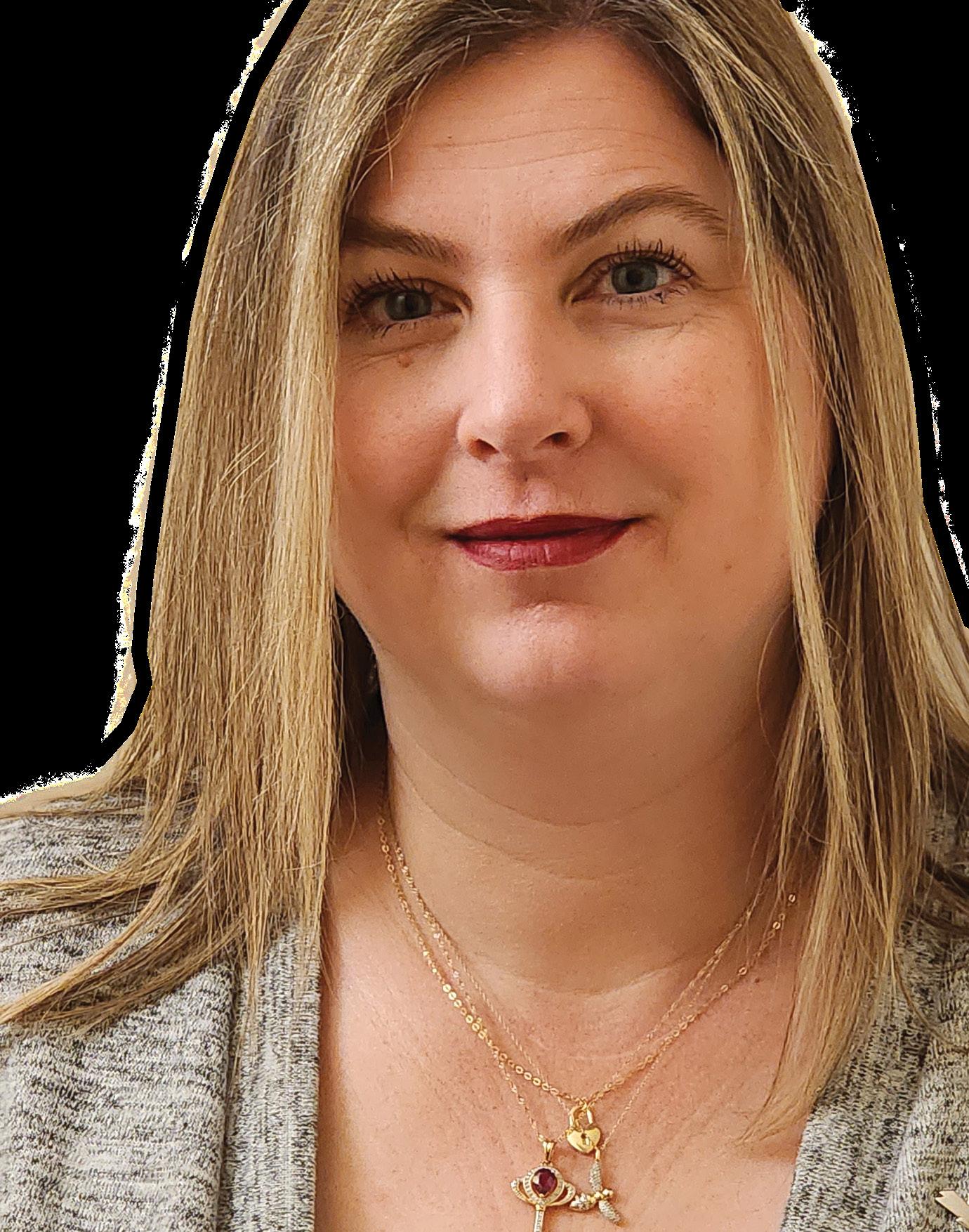
NATIONAL MORTGAGE PROFESSIONAL MAGAZINE | MARCH 2024 | 69
 Mae Mackey
Sr. Vice President - Production Management SUN WEST MORTGAGE COMPANY
Mae Mackey
Sr. Vice President - Production Management SUN WEST MORTGAGE COMPANY
Whatdo you see as the biggest challenges facing the industry today, especially for women professionals?
In today’s mortgage lending industry, some major challenges are the challenges women face to reach higher leadership positions. Even though progress has been made, there aren’t enough women in top jobs. Breaking through stereotypes and barriers to get into executive roles remains tough. Secondly, balancing work and personal life is a big challenge. The mortgage industry often demands long hours, travel, and strict deadlines, making it hard for women to juggle work and family. Creating more flexible work arrangements and supportive environments can help. Additionally, there’s a persistent problem with pay gaps between men and women doing similar jobs, which affects financial stability and morale. Ensuring fair pay and recognition is essential for a more equitable workplace. Lastly, there’s a need for a more inclusive work culture. The industry should value diverse perspectives and remove biases. Programs supporting women’s growth, like mentorship and leadership training, can help create a more level playing field.

Do you have a personal philosophy or mantra that has guided you throughout your career?
Behind every loan is a real family who deserves my best every time! I firmly believe that if we always remember the people we are helping are often making the biggest financial decision of their lives, then we will happily embrace every challenge and willingly learn and use new innovations like Angel AI to be successful. My goal is to turn borrower concerns or uncertainties into confidence and hope; finding solutions that work for them is imperative. This philosophy shapes my leadership style as well. Encouraging my team to approach problems with a proactive and positive attitude fosters a resilient workforce. It’s this mindset that propels me forward and resonates with clients and team members.
“Encouraging my team to approach problems with a proactive and positive attitude fosters a resilient workforce.”
70 | NATIONAL MORTGAGE PROFESSIONAL MAGAZINE | MARCH 2024
Gladys Marcelin
Sales Manager
CALCON MUTUAL MORTGAGE
The following is from the nomination for Gladys Marcelin.
How does this woman stands out as a significant contributor to the mortgage industry. What differentiates her?
Gladys is a trailblazing mortgage professional driven by her creativity, extensive knowledge, and desire to help others. She actively participates in the betterment of the mortgage industry as a member of the Mortgage Bankers Association of Georgia. She is a Diamond member with over $50M in production for 2022 and continues to lead a top team in her company. She is also a Chairman’s Club member, which is the highest level of production within her company.
How is this nominee impacting the industry or the people around her? What about this woman makes her influential?
Glady is from the beautiful island of Haiti and is well known in the Caribbean and local community. She turns first-time homebuyers into homeowners! She is well known in her community by real estate agents and consumers alike. She is heavily involved in her community and has enabled many minority families to build wealth from homeownership.
Her perspective is that clients are more than just clients. It is a relationship because she works closely with them. It’s hardly ever a one-time transaction. She becomes their mortgage professional for life.

Her perspective is that clients are more than just clients. It is a relationship because she works closely with them.

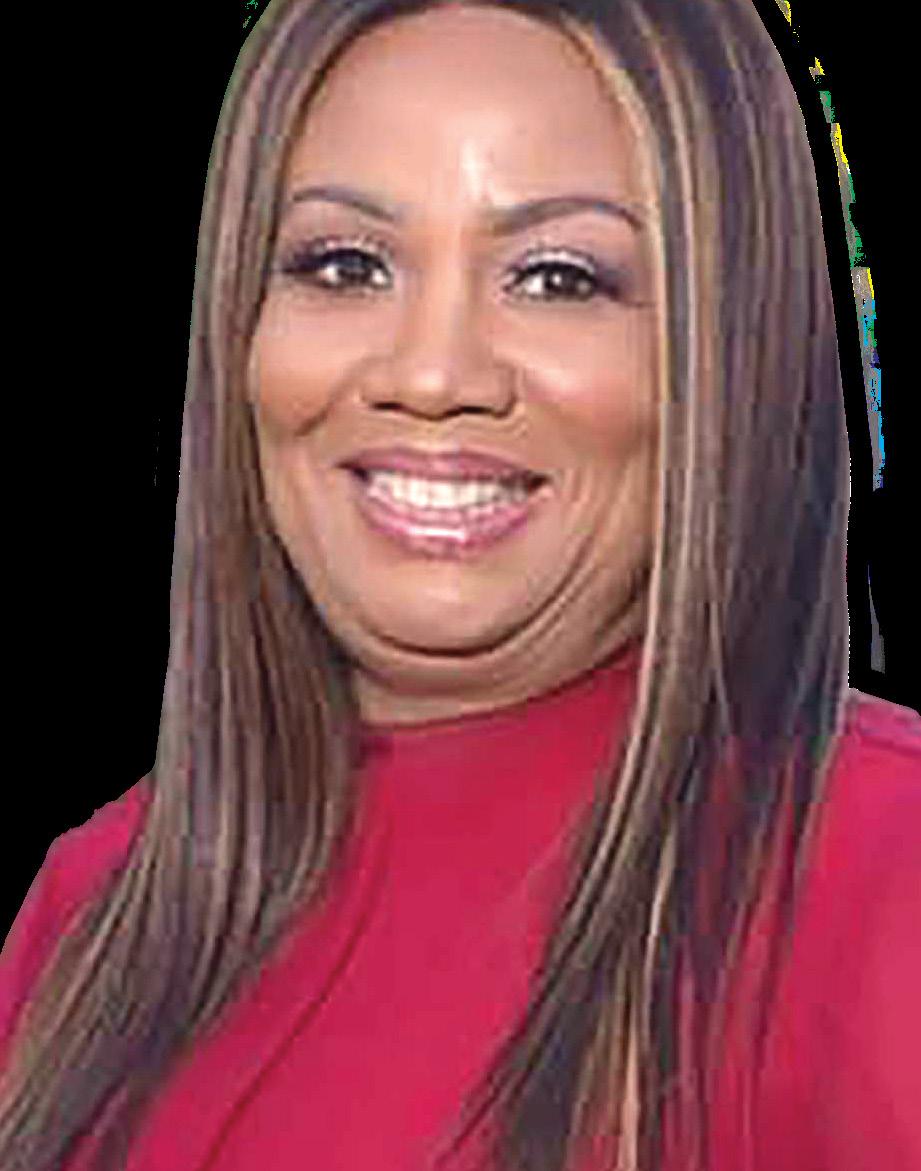
NATIONAL MORTGAGE PROFESSIONAL MAGAZINE | MARCH 2024 | 71
 Candice McNaught
SVP of National Sales SUPREME LENDING
Candice McNaught
SVP of National Sales SUPREME LENDING
Were there specific challenges you faced early in your career, and how did you overcome them?
Establishing credibility and gaining the trust of colleagues and supervisors is crucial. Early-career professionals may face skepticism or may need time to prove their capabilities. I started in the mortgage business at a young age and surrounded myself by veterans of the industry, and learned from the absolute best.
What are the biggest challenges facing the industry today, especially for women professionals?

While navigating the last couple of years has brought new challenges, in my experience, women are no longer struggling in mortgage. Women are actually outpacing men in the market and are more desirable for companies to recruit. At Supreme Lending, our women employees are making a tremendous impact in the company and moving up the ladder — from operations and support staff to originators across the country.
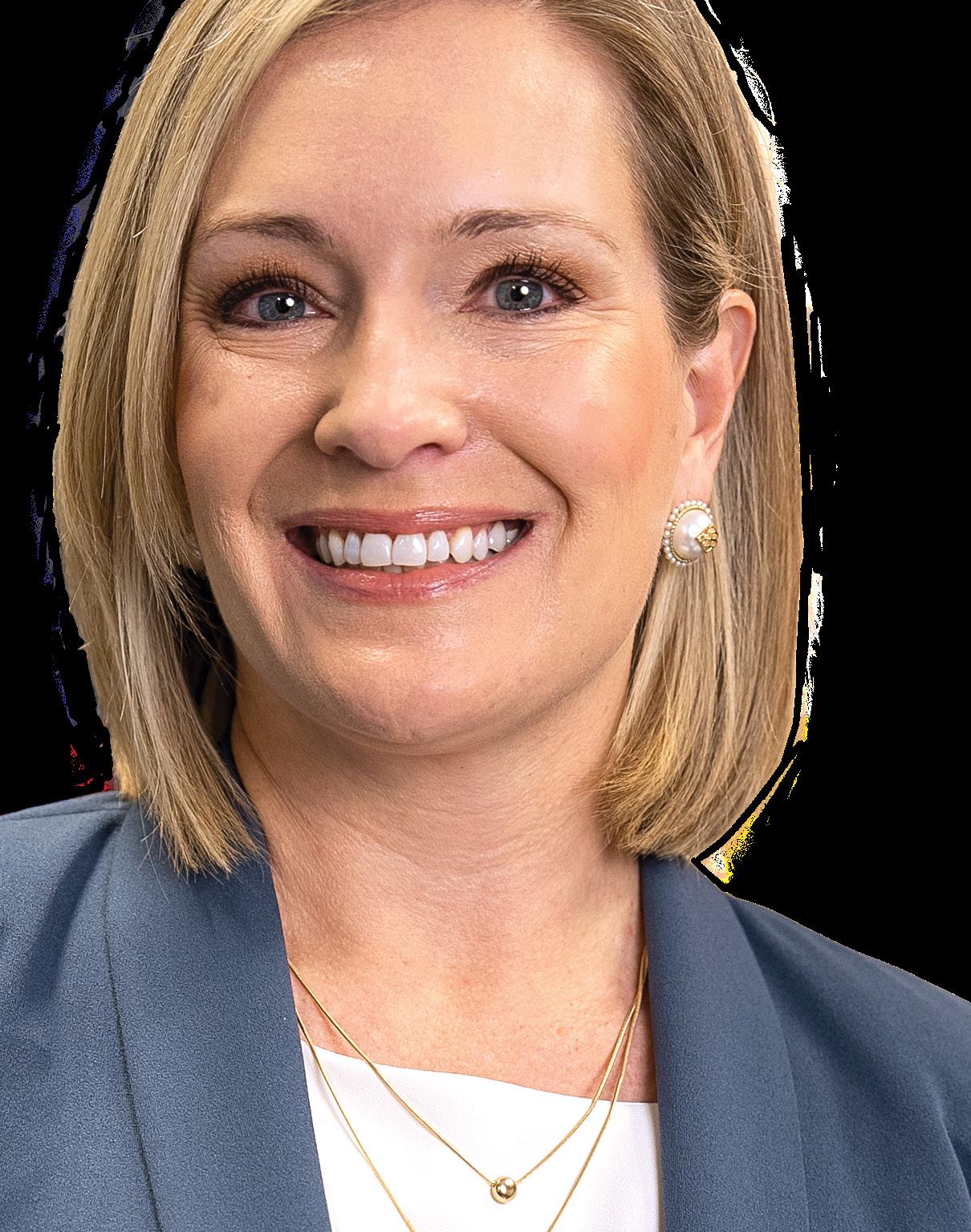
Given the evolving nature of the mortgage lending industry, how do you stay adaptable and resilient in the face of change? Can you share an experience where you had to navigate a significant change or challenge in your career?
Having perseverance, drive, and leadership is key. As a branch manager during the COVID-19 pandemic and booming market, I was challenged with growing my team to meet the high demand of the mortgage industry. To overcome this, I focused on personalized professional development and placing team members in the right roles by identifying their strengths and providing tools and guidance for success. I implemented an internship program that resulted in creating full-time jobs and built a steadfast team that averaged $330 million in annual loan production.
Do you have a personal philosophy or mantra that has guided you throughout your career in mortgage lending?
Nothing Changes If Nothing Changes.
“Women are actually outpacing men in the market and are more desirable for companies to recruit.”
72 | NATIONAL MORTGAGE PROFESSIONAL MAGAZINE | MARCH 2024
Christy Mindell
EVP Marketing
CHAMPIONS FUNDING
What advice would you give to women aspiring to leadership roles in mortgage lending?
Get comfortable with rejection. When I talk to others seeking leadership roles, I tell them rejection is not an insurmountable roadblock. It’s just a re-direction.
Effective leadership, especially for women, hinges on being a confident subject matter expert. To propel yourself forward, get in the weeds and learn all you can about a topic. Find those who are willing to share their expertise, and do as much independent research as you can. Understanding your audience and tailoring your message accordingly is critical as well.
Confidence is a key factor. There’s a lot of talk about “fake it ‘til you make it,” which has value, but I think you can complement that with a dedication to the pursuit of knowledge. When you’re equipped, it’s a lot easier to go in with no fear.
What do you see as the biggest challenges facing the industry today, especially for women professionals?
A prominent industry challenge is the underutilization of talent. There’s so much potential in front of us, but companies fail to recognize and cultivate that. Industry turnovers have become commonplace, but I wonder why a company would let that talent go. A more innovative approach would have companies creating new roles and opportunities to retain and maximize employee potential. Employees who don’t see a culture celebrating advancement don’t push themselves to their full potential. The limited growth opportunities foster stagnation and resentment.
Addressing a specific concern for women professionals, I see a polarization between those with strong voices and those who are hesitant to speak up. Fostering an environment that encourages and recognizes team members’ strengths can contribute to the overall success of a company. This is why I feel it’s crucial for companies to prioritize internal leadership potential.
“Fostering an environment that encourages and recognizes team members’ strengths can contribute to the overall success of a company.”



NATIONAL MORTGAGE PROFESSIONAL MAGAZINE | MARCH 2024 | 73
 Joni Pilgrim CEO
Joni Pilgrim CEO
NATIONWIDE APPRAISAL NETWORK (NAN)
Whatadvice would you give to women aspiring to leadership roles in mortgage lending?
Network and get involved. Get out there and talk to the people who are advocating for a better industry. Get involved in initiatives that are important to you. Volunteer your time and meet women in all facets of the industry and listen to their stories. There is so much to learn from one another, and the women you meet today will be the leaders of the industry tomorrow. I grew up in this industry and many of my colleagues started in this industry the same time I did, and we are all in leadership roles now. We rely on each other for feedback, information, and referrals. Getting involved early on has been a game-changer for me. Exposure to new ways of thinking and ideas is paramount to growth.

Do you have a personal philosophy or mantra that has guided you throughout your career in mortgage lending?

If you ask my team, it’s “sharpest in the room.” This comes from my days behind the booth at the industry trade shows. I would bring a steamer with me and steam our backdrop and our tablecloth and have everything look nice and neat. For me, it was all about that first impression. I also think that the way you present yourself and your company speaks volumes about how you treat your customers and how seriously you take their business. I also use the mantra of “Delivery + 1%,” which really means that we can all provide service levels that meet expectations, but when we go that 1% extra and create a wow moment, that’s when we create customers for life. People remember how you make them feel. That 1% is where you get that done!
“Exposure to new ways of thinking and ideas is paramount to growth.”
74 | NATIONAL MORTGAGE PROFESSIONAL MAGAZINE | MARCH 2024
Kelly Rogers Vice President/Area Leader
FAIRWAY INDEPENDENT MORTGAGE CORP.
Were there specific challenges you faced early in your career, and how did you overcome them?
I returned to the mortgage business in 2010, after spending eight years as a stay-at-home mom. I was starting over as a single mom with four daughters, who had been on welfare. We didn’t have anything. I celebrated my 40th birthday, wondering how I was going to do this. I had nothing but a die-hard work ethic, more faith than a mountain, and a whole lot of love for my girls. I look back on those long days, getting up before everyone, racing home when there were school open houses, team meetings, and piano recitals, feeling like a failure.
Slowly, it started to pay off. I kept working, calling, writing the ‘thank you’ notes, building relationships, and investing in the people around me. I look back on those days and remember that woman. I am grateful for every difficult moment, every relationship, and every opportunity.
Do you have a personal philosophy or mantra that has guided you throughout your career?
I spend a minimum of an hour a day reading. When someone suggests a book, I want to know why and then will generally buy it and add it to my current stack. I keep a list of podcasts that I am listening to, from Craig Groeschel to Tom Ferry, Mel Robbins to Jay Shetty, and countless others. Reading, listening, and learning are a way of life. They are the constant voice I have reminding me how little I know and how much I have to learn.
Our industry and our lives are not stagnant. By embracing the mindset of growth, I live committed to learning. I am always collaborating with others, testing new theories, asking questions, and fine-tuning the systems we use.

“I am always collaborating with others, testing new theories, asking questions, and fine-tuning the systems we use.”


NATIONAL MORTGAGE PROFESSIONAL MAGAZINE | MARCH 2024 | 75
 Sofia Rossato President and General Manager FLOIFY
Sofia Rossato President and General Manager FLOIFY
Were there specific challenges you faced early in your career, and how did you overcome them?
Navigating the job market in the mid-’90s, post-graduation, was a real challenge. With a liberal arts degree, a $40K student loan at an 8% interest rate, and between two recessions, I was in a tough spot. I foresaw the need for a strategic pivot. In my junior year, I chose to take an unpaid internship at a local financial institution, supplementing my income with night and weekend jobs. This decision opened the door to my first job at a fintech startup in New York City, an unconventional but exciting path into banking. I owe a lot to those founders who took a chance on me.

Once I was in, the big challenge was wrapping my head around financial services and technology on the fly. It felt like slow progress, and I often felt alone. To overcome this, my friend Andrea and I would dedicate nights and weekends to teaching ourselves database and IVR system programming. That persistence paid off and I was eventually promoted to managing large-scale technology projects for the largest online banks in the world.

The key takeaways: put yourself in front of the path of opportunities, act the part before you get the part, build your trusted network, and grind until you conquer your skill.
Do you have a personal philosophy or mantra that has guided you throughout your career in mortgage lending?
For years, my mantra was “DFQ” (Don’t F***ing Quit). It was a nod to resilience. My mantra has since evolved because there are times when the best course of action is to change direction. My new mantra is “Do Your Best, Let Go of the Rest.” I find that life is a lot more enjoyable this way.
“Act the part before you get the part, build your trusted network, and grind until you conquer your skill.”
76 | NATIONAL MORTGAGE PROFESSIONAL MAGAZINE | MARCH 2024
Stacy Speas
Senior Vice President, Operations
CORNERSTONE SERVICING
What do you see as the biggest challenges facing the industry today, especially for women professionals?
As in any traditionally male-dominated industry, overcoming gender bias and our own internal dialogues about gender roles can be a challenge.
Find your niche and focus on making a positive difference. Immerse yourself in areas you feel truly passionate about. Keep in mind the mortgage industry is ever evolving, so there are always opportunities to learn new trends, strategies, and technologies. When you specialize in an area that truly resonates with your skills and interests, you not only become an expert, but you’re also able to demonstrate the unique value you bring to your role.
Given the evolving nature of the mortgage lending industry, how do you stay adaptable and resilient in the face of change? Can you share an experience where you had to navigate a significant change or challenge in your career?
Early in my career, I was passed up for a promotion due to taking maternity leave. I handled it as gracefully as I could, but I also recognized it as an opportunity to redirect my career. Ultimately, I found a new path to advancement.
It’s equally important to take proactive steps to set yourself up for new opportunities if a chapter of your career ends unexpectedly. After being laid off due to a merger, I resolved to become a CPA, knowing more opportunities would be available to me. This decision paid off significantly, as I expanded my qualifications and demonstrated my commitment to continuous learning.
Do you have a personal philosophy or mantra that has guided you throughout your career in mortgage lending?
All work is work in progress. Very little is final. There’s always room for growth and improvement. Never stop improving. The entire mortgage industry is constantly evolving.
“It’s important to take proactive steps to set yourself up for new opportunities if a chapter of your career ends unexpectedly.”



NATIONAL MORTGAGE PROFESSIONAL MAGAZINE | MARCH 2024 | 77

Maria Subashi
VP, Post Closing UNITED WHOLESALE MORTGAGE
Were there specific challenges you faced early in your career, and how did you overcome them?
Early in my career, I realized I didn’t have all the answers. Embracing this, I discovered the power of asking questions — even if they seemed basic. I learned that seeking expert guidance, leveraging available tools, and cultivating a supportive network were crucial steps toward expertise and professional growth. This approach … laid the foundation for success in the complex world of mortgage lending.

What advice would you give to women aspiring to leadership roles in mortgage lending?
For women aspiring to reach leadership roles in lending, especially those from underrepresented backgrounds, it’s important to seize every opportunity and go beyond what is expected in your role. As VP of Post Closing and a Hispanic woman, I’ve learned how to exceed expectations, demonstrate continuous excellence and proactively seek ways to grow. It’s not just about aspiring to leadership; it’s about boldly stepping into those opportunities and showcasing the unique value you bring to the table.
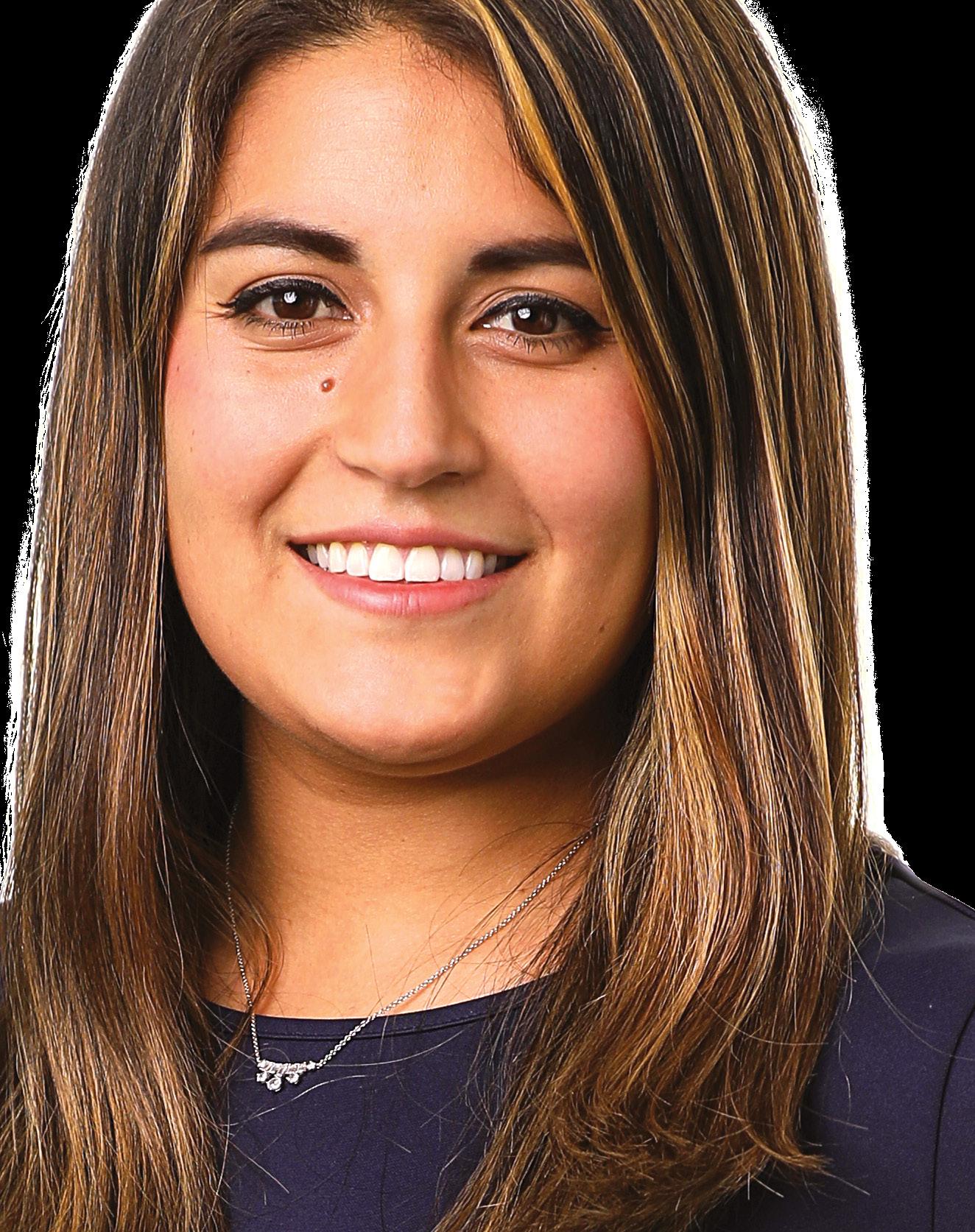
Given the evolving nature of the mortgage lending industry, how do you stay adaptable and resilient in the face of change?
Can you share an experience where you had to navigate a significant change or challenge in your career?
I strive to stay attuned to industry trends, anticipate future challenges and foster an environment of collaboration. For example, at United Wholesale Mortgage we pride ourselves on being leaders not only in the mortgage industry but also in technology, client service, and everything we do. Maintaining a positive and proactive mindset has been instrumental in my ability to help foster a culture of agility and forward thinking, ensuring UWM maintains its position as the number one lender in America and continues to stay at the forefront of the industry.
“Maintaining a positive and proactive mindset has been instrumental in my ability to help foster a culture of agility and forward thinking.”
78 | NATIONAL MORTGAGE PROFESSIONAL MAGAZINE | MARCH 2024





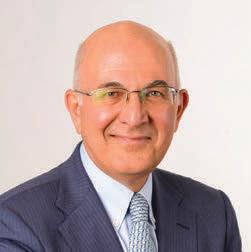

on being honored as one of Mortgage Women Magazine's 2024 Women of Inspiration EVP MARKETING 2024 MORTGAGE LENDING Champions Funding Congratulat es Congratulat es Contact our experienced wholesale lenders today: NO add-ons to pricing based on property type, credit score, LTV or transaction type. TRANSPARENT PRICING. EXPERT SUPPORT. Wholesale Loan Features: Up to 90%1 CLTV for loans up to $3.5 million Fixed-rate loans, ARMs and HELOCs available No seasoning period or limits for cash-outs2 Available to LLCs and Revocable Trusts FICO ® score only required for PMI lo an s Only on e appraisal report regardless of loan size 1. 1–2 family and condo purchases and rate and term refinances – primary residences. | 2. On primary residences. (LTVs apply). | Terms and conditions subject to change without notice Loans subject to credit approval. | © 2024 Ridgewood Savings Bank. All rights reserved. JOSEPH NOVIELLO (718)240-4780 jnoviello@ridgewoodbank.com NMLS ID# 625762 BIJAN FARASSAT (917)731-4870 bfarassat@ridgewoodbank.com NMLS ID# 646654 Learn more at ridgewoodbank.com NATIONAL MORTGAGE PROFESSIONAL MAGAZINE | MARCH 2024 | 79
Newfi Wholesale
DSCR, Bank Statement, 1099, Asset Depletion, Buydowns, Full Doc Non-QM
Quontic Bank
MI, MN, MT, NV, NH, NJ, NM, NC, OH, OK, OR, PA, RI, SC, TN, TX, UT, WA, WI, loanstreamwholesale.com
AL, AK, AZ, AR, CA, CO, CT, DC, DE, FL, GA, HI, ID, IL, IN, IA, KS, KY, LA, ME, MD, MI, MN, MS, MO, MT, NE, NV, NH, NJ, NM, NC, ND, OH, OK, OR, PA, RI, SC, SD, TN, TX, UT, WA, WV, WI, WY
Quontic specializes in non-traditional borrowers. All 50 U.S. States
newfiwholesale.com
quonticwholesale.com

Open and operate your brokerage with confidence. Starting a business doesn’t have to be daunting. Build-A-Broker is a halfday bootcamp designed to help you establish the solid foundation needed to launch your business, or streamline and strengthen your existing one. WWW.BUILDABROKER.COM SPECIAL ADVERTISING SECTION: NON-QM LENDER DIRECTORY COMPANY AREA OF FOCUS STATES LICENSCED WEBSITE Acra Lending Non-QM / Jumbo AL, AZ, AR, CA, CO, CT, DC, DE, FL, GA, ID, IL, IN, KS, KY, LA, ME, MD, MI, MN, MT, NE, NV, NH, NJ, NC, OK, OR, PA, SC, TN, TX, UT, VA, VT, WA, WI, WY acralending.com Champions Funding Mission Driven NonQM + CDFI Wholesale Lender AZ, CA, CO, CT, DC, FL, GA, HI, IL, IA, MD, MI, NJ, NC, OR, PA, SC, TN, TX, UT, VA, WA champstpo.com First National Bank of America Non-QM Lending All 50 U.S. States fnba.com/wholesale LoanStream Mortgage Home Loans AZ, CA, CO, CT, DC, DE, FL, GA, HI, ID, IL, IN, KY, LA, ME, MD, MA,
80 | NATIONAL MORTGAGE PROFESSIONAL MAGAZINE | MARCH 2024
loanstreamwholesale.com Newfi
newfiwholesale.com
SPECIAL ADVERTISING SECTION: WHOLESALE LENDER DIRECTORY COMPANY SPECIALTY/NICHE STATES LICENSCED WEBSITE
Mortgage Non-QM AZ, AR, CA, CO, CT, DE, DC, FL, GA, ID,
IN,
MI, NV, NJ,
WA
National Bank of America Non-QM All 50 U.S. States fnba.com/mortgage-brokers
Mortgage Home Loans AZ, AR, CA, CO,
ACC
IL,
KS, MD,
NC, OK, OR, PA, SC, TN, TX, UT, VA,
ACCMortgage.com First
LoanStream
CT, DC, DE, FL, GA, HI, ID, IL, IN, KS, KY, LA, ME, MD, MA, MI, MN, MT, NC, ND, NV, NJ, NJ, NM, NC, OH, OK, OR, PA, RI, SC, TN, TX, UT, VA, WA, WI
Wholesale DSCR,
Statement,
Depletion,
Non-QM AL,
Bank
1099, Asset
Buydowns, Full Doc
AK, AZ, AR, CA, CO, CT, DC, DE, FL, GA, HI, ID, IL, IN, IA, KS, KY, LA, ME, MD, MI, MN, MS, MO, MT, NE, NV, NH, NJ, NM, NC, ND, OH, OK, OR, PA, RI, SC, SD, TN, TX, UT, WA, WV, WI, WY
SPECIAL ADVERTISING SECTION: WHOLESALE LENDER DIRECTORY SPECIAL ADVERTISING SECTION: ORIGINATOR TECH DIRECTORY COMPANY AREA OF FOCUS WEBSITE LendingPad Loan Origination System lendingpad.com wemlo Loan Processing wemlo.io Zero 1 Solution LLC Software 1smtg.com SPECIAL ADVERTISING SECTION: AMC DIRECTORY COMPANY AREA OF FOCUS WEBSITE ACT Appraisal, Inc. ACT Appraisal is a nationwide AMC focusing on residential appraisals actappraisal.com Class Valuation AMC classvaluation.com PCV Murcor Nationwide Real Estate Valuations Management — Appraisal Management Company pcvmurcor.com SingleSource Property Solutions LLC Appraisals, BPOs, AVMs, Hybrid Valuations, and Value Reconciliations singlesourceproperty.com NATIONAL MORTGAGE PROFESSIONAL MAGAZINE | MARCH 2024 | 81

Who Needs Champagne When You Have Cholula?

Nick Roberson is a long-time mortgage industry veteran and a board member of the California Association of Mortgage Professionals. He’s a forthcoming and giving guy, who shares his … unique … perspective on work and life on his Facebook account. Here are some of Nick’s FB thoughts this month:
The waitress just brought over a bottle of Cholula and told me she remembered I requested it yesterday. I told her I loved Cholula and was going to marry her someday. She laughed and told me to be careful and said too much of her (Cholula) would be the death of me. I told her not to worry, I liked a spicy relationship. She told me that I had come to the right place. Then she chuckled and walked away. The guy next to me leaned over and said he was so confused. He asked me if the waitress and I were talking about the hot sauce or her. I smiled and said yes. Then, I put my headphones on. I’m pretty sure he is still looking at me.
• • •
“I began to realize how important it was to be an enthusiast in life … if you are interested in something, no matter what it is, go at it at full speed ahead. Embrace it with both arms, hug it, love it, and above all, become passionate about it. Lukewarm is no good. Hot is no good either. White hot and passionate is the only thing to be.” — Roald Dahl
• • •
When a cougar gets so old she needs a hearing aid, she becomes a Def Leppard.
• • •
I ran to Costco during lunch today, and as I was leaving the parking lot, this lady started road raging on me. She pulled up next to me at the stoplight and yelled out of her window, “I’m going to make your life a living hell!” I yelled back, “Thanks, but I’m not looking for a relationship right now!”
• • •
My daughter is too funny. I heard a ruckus and, upon investigation, found Savannah getting the garbage ready to take out. I said, “Aww, thank you for taking the trash out!” Savannah looked at me and replied, “Don’t give me too much credit for this. I am doing it for selfish reasons. I have things
to throw away, and I lost the trash can Jenga game. So, I am taking out the trash.” Apparently, she has lost some of her trash can Jenga skills she once had when she lived here. I was fairly certain one day she would become an engineer or one of those artists that creates art out of random trash. Her ability to overfill the trash bin was legendary.
•

The first business self-help book I ever purchased. The lessons I learned still serve me well.
•
I am standing in line at the grocery store. The lady in front of me has a cart full of random alcohol and a box of Junior Mints. The cashier rang her up, and now the lady is rummaging through her purse scanning one credit card after another, looking for the one card that still has cash available on it. I’m pretty sure I just watched her scan her work I.D. card. I feel like I’m at a casino in Vegas, watching someone frantically playing the slots looking for a winner. •
My goal is to be that old person that everyone is afraid to take out in public.
•
SNOWBALL
~ Shel Silverstein
I made myself a snowball, As perfect as could be, I thought I’d keep it as a pet, And let it sleep with me. I made it some pajamas, And a pillow for its head, Then last night it ran away, But first — it wet the bed! n
To see more by Nick, just go to www.facebook.com/nickroberson.
• •
• •
• •
• •
NICK ROBERSON FACEBOOK THOUGHTS
Nick Roberson
82 | NATIONAL MORTGAGE PROFESSIONAL MAGAZINE | MARCH 2024
FLAUNT YOUR NETWORKING SKILLS


Seeking Socially Savvy Mortgage Leaders
NOMINATE TODAY ambizmedia.com/recognition/nmp-most-connect-mortgage-pros Get recognized for your connections! Nominate yourself or another networked individual today. Submission Deadline: March 29, 2024
big is your network? Social media continues to grow in its importance in connecting with your peers and clients. Help us celebrate the mortgage professionals who have demonstrated success in growing their social networks with NMP Magazine’s Most Connected Mortgage Professionals. Honorees will be showcased in the July 2024 issue of NMP Magazine.
How


























 BY SAM HARRIS III AND BJ HAMILTON-HARRIS, SPECIAL TO NATIONAL MORTGAGE PROFESSIONAL MAGAZINE
BY SAM HARRIS III AND BJ HAMILTON-HARRIS, SPECIAL TO NATIONAL MORTGAGE PROFESSIONAL MAGAZINE






























































 BY ERICA DRZEWIECKI, ASSOCIATE EDITOR, NATIONAL MORTGAGE PROFESSIONAL MAGAZINE
BY ERICA DRZEWIECKI, ASSOCIATE EDITOR, NATIONAL MORTGAGE PROFESSIONAL MAGAZINE




































 BY KATIE JENSEN, STAFF WRITER, NATIONAL MORTGAGE PROFESSIONAL MAGAZINE
BY KATIE JENSEN, STAFF WRITER, NATIONAL MORTGAGE PROFESSIONAL MAGAZINE













 Corrina Carter
CEO and President CMS MORTGAGE SOLUTIONS INC.
Corrina Carter
CEO and President CMS MORTGAGE SOLUTIONS INC.














































